RaisingARIZONAKids your partner on the parenting path
CREATIVE PARTY IDEAS & TIPS! FALL FUN
Soup Recipes
Pumpkin Patches
Family Tradition
Plus: EDUCATION
• What to Do if Your Child is Struggling in School
• Balancing Family Time with After School Activities
• Sleep Tips for School-Aged Children
SPECIAL NEEDS
• Does Your Child Need Speech Therapy?

• Understanding Dyslexia
• Play Places for Kids & more!
FALL 2023: Sept • Oct • Nov
We chose BASIS for our Kindergartner
At BASIS Charter Schools, we give our kindergartners the strongest start possible. Students engage in dynamic, hands-on lessons that encourage them to explore, question, and discover the world around them.
Find out why families are choosing BASIS Kindergarten


“My daughter loves her teachers and comes home from school excited to tell me about what she did that day! I feel confident that BASIS is giving her a great education in a safe and nurturing environment.”
Grades K–12
Limited Seats Available for Fall 2023
• Full-day and half-day options
• Co-teaching model
• Accelerated curriculum
• Enrichment courses
• Early Kinder available
» Learn more and apply:
enrollbasis.com/kinder-az
CONTENTS
26
FEATURES
30 Education
• What Do I Do When Traditional School Does Not Work For My Child?
• Musical Instrument Museum Offers Music Exploration and Learning for Families
• 4 Tips for Balancing Family Time with After School Activities
• Close the Distance: What to do if you’re unhappy with your child’s teacher
46 Special Needs
• Being a Mom to a Child with Cerebral Palsy
• Raising for Rett: Picazzo’s Healthy Italian Kitchen Fundraises for a Personal Cause
• Is My Child Dyslexic?
• Embracing the Three Levels of Autism Spectrum
• Does My Child Need Speech Therapy?
• Tips for Taking Your Child With Special Needs to a Party
50
• Making Good Friends at School
• What To Do If Your Child Is Struggling In School
• Parents as Pillars of Education: Reinforcing Children's Learning at Home
• Finding the Balance Between Academics and Extracurriculars
• Sleep Tips for School-Aged Children
DEPARTMENTS
2 Dialogue: The Magic of Fall
4 Books:
• Take Me Out to the Library
• Book Picks for Moms and Dads
6 Parenting
• More Than a Mom
• Navigating Solid Food Introduction
• Praise Versus Encouragement
12 Dad Talk
• The Tables Have Turned
• 7 Tips for Making Dentist Visits Less Stressful
• Hunkapi Farms’ Programs Support Children with Special Needs
• Certified Autism Centers in Mesa

• Special Needs Solutions
• Lily’s Pad: A Hyper Clean Play Place for Immunocompromised Children
• Jordan’s Corner: Indoor Inclusive Play
64 Creative Party Ideas & Tips
• How to Throw a Birthday Party that Won’t Break the Bank
70 Fall Fun
• Fall Soups
• Pumpkin Patches & Fall Fun in Arizona
• Party Etiquette
• Out of the Box Party Ideas
• I is for Invisible
• Sharing the Load
• Dad Together
• Daddy Boot Camps
18 Relationships
• Mastering Your Mindset After Divorce
• Turn Relationship Goals into Mini-Habits
• Dates Unlike Others: ScottsdaleBased Bachelor Couple Creates Date - Planning App
26 Health/Safety
• Pediatrician’s Back-To-School Checklist

• 10 Fall Traditions to Start with Your Family
• Cooking Safety
Fall 2023: Sept • Oct • Nov
Sept• Oct • Nov FALL 2023 1 RaisingARIZONAKids.com
The Magic of Fall
I’M LISTENING TO the buzz of the hummingbirds floating around the feeders and watching our toddler run around the yard as I work from the patio table. It’s a beautiful afternoon, but there’s a distinct feeling in the air; the season is changing. Late summer weather can be unpredictable up north. You have warm days, cool evenings, chilly mornings, and lots of rain…nearly every day. Before you know it, fall has arrived and you’re preparing for Halloween, Thanksgiving, and the holidays. Another summer gone and it feels like it flew by in a flash. With so many ‘things to do’ on our summer wish list, it feels like we didn’t do enough with our four boys. Yet, after glancing through the summer photos I snapped I realized we:
• Experienced four different lakes for fishing, rope swinging, and picnicking
• Had many lazy days catching lizards at our ‘secret’ creek spot
• Went fishing and had a picnic at the Lower Log Campground
• Caught huge crawdads at the East Fork Black River
• Spent countless poolside days with Grandma watching the kids jump in and out
• Roadtripped to Safford twice to visit Papa and all the cousins
• Drove to New Mexico twice to visit Nana, ride quads, and visit the llama, Tony.
• Had outdoor movie nights with lots of treats & popcorn
• Made s’mores around the fire
• Our 4-year-old learned to confidently swim
• Welcomed home our new puppy, Teddy!
Suddenly, our summer seemed quite busy, and I couldn’t help but smile because we made the best memories—like the summers I had as a kid.
Now, with school back in session and days getting shorter (and colder up here in the mountains), I’m ready for a slower-paced season (a mom can wish!). Luckily, in this issue we have a great back-to-school checklist, sleep tips for students, and tips for balancing school and extracurriculars. In addition, we have topics that address reinforcing learning at home, and
what to do if traditional school isn’t working for your child. We have even included learning about the Musical Instrument Museum.
This issue is also helpful for navigating life with special needs. You’ll learn the signs of a speech problem, and how to know if your child is dyslexic, as well as embracing the three levels of autism spectrum. We’ve even included tips for making a dental appointment less stressful, and taking your child with special needs to a party.
If you’re celebrating a birthday this fall like we are (the big 5!) you’ll appreciate some of our out-of-the-box party ideas, party etiquette, & tips for hosting a party on a budget. Don’t forget to check out our list of party places at raisingarizonakids.com
For the first time ever, Raising Arizona Kids is also including a special section just for dads! Labeled ‘Dad Talk’, there are tips for sharing the load with your partner, raising a child with disabilities, and resources available for dads in Arizona. If you're expecting a new baby, you’ll love our ‘Daddy Boot Camps’ round up!
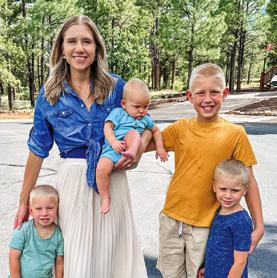

Summer was loads of fun — but I’m ready for pumpkin patches, sweater weather, and everything else traditionally autumn. I hope all the resources Raising Arizona Kid s has to offer (in print and online!) help carry you through this beautiful fall season with your own family.
Kate Reed, Publisher
Do you have a topic you would love us to write about? Email publisher@ rakmagazine.com
FALL 2023: SEPT • OCT • NOV
VOL 34: NO 3
PUBLISHER Kate Reed
EDITOR

Monique Seleen
CONTRIBUTORS
Karen Aurit • Michael Aurit • Scarlett Bendixen
Curt Bobo • SueAnn Brown • Edward Casillas
Diana Diaz-Harrison • Rachel Galvez
Dawn Garza • David Gordon • Melanie Isaacs
Larry Kerby • Nikki Kontz • Katie Lee
Chod McClintock • Rosalind Prather
Trent Reed • Cuyler Romeo
Terra Schaad • Heather Schneider • Ben Smith
Mary Smith • Neil Tift • Amanda Urrea • Mia Vega Dr. Darcey Winterland
City of Scottsdale Fire Department Maricopa County Library District
ART DIRECTOR
Michèlle-Renée Adams
COVER PHOTOGRAPHY
Allen Patrou Photography
MARKETING CONSULTANTS
Tina Gerami-Bynum • Shari Greene
Raising Arizona Kids magazine (ISSN 1051-4295) was created to connect Valley families to local resources and share real-life stories about the challenges and joys of raising children. Copy right © 2023 by Raising Arizona Kids , Inc. All rights reserved. Reproduction in whole or part without written permission is prohibited. Content guidelines are available at raisingarizonakids.com
@RAKmagazine on Twitter; RaisingArizonaKids on Facebook, Instagram and Linkedin; RAKmagazine Pinterest and Youtube.

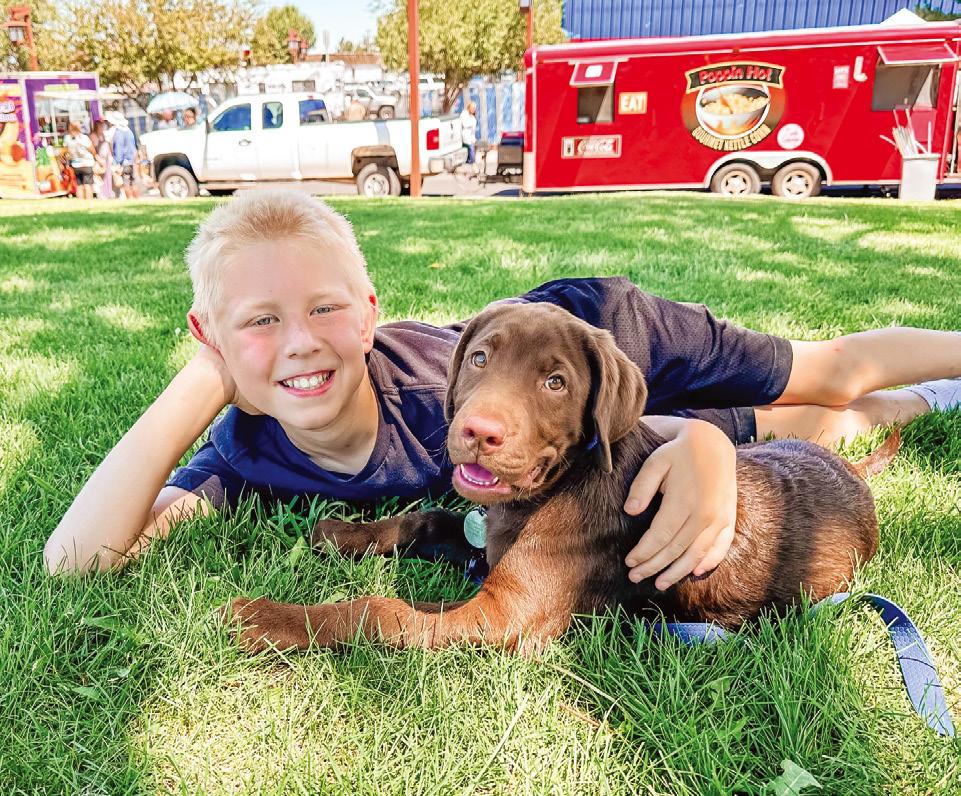
CONTACT US
editorial@RAKmagazine.com
familytime@RAKmagazine.com advertising@RAKmagazine.com subscriptions@RAKmagazine.com
932 South Hunters Run, Show Low, AZ 85901 480–991–KIDS (5437) • raisingarizonakids.com
IN PARTNERSHIP WITH
DIALOGUE
2 FALL 2023 Sept • Oct • Nov
THE RIPPLE EFFECT: SMALL STEPS TO SAVE WATER, BIG IMPACT FOR THE FUTURE.


By

changing small habits, you and your family can significantly impact your water consumption and conserve Arizona water for future generations. Every drop counts, and together, we can create a wave of change to secure a sustainable future.
Explore the Water — Use It Wisely website for 100+ water-saving tips, teacher resources, kids’ games, and more. Join the movement now for a sustainable water future! WaterUseItWisely.com
Books: SPORTS

TAKE ME OUT TO THE…. L i br ar y !
By Maricopa County Library District
JUMP START your Fall reading list with these sports-themed reading recommendations from librarians across Maricopa County Library District! These books are sure to be a SLAM DUNK! Looking for more? Check out all your library has to offer at mcldaz.org.

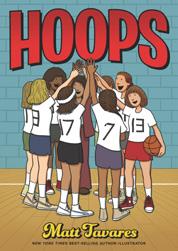


0-3 YEARS OLD
Dino-Hockey by Lisa Wheeler, illustrated by Barry Gott

The Meat-Eaters take on the Veggiesaurs in a battle for the Dino Hockey League championship cup! Will penalties cost one team the match?
WHY YOU’LL LOVE IT: “If you’re a hockey fan anxious for the season to begin again, this is a must read! This fast-paced rhyming book was so fun to read and had me laughing throughout.”

–Caroline, Southeast Regional Library
Let’s Go Puddling by Emma Perry & Claire Alexander
Simple text tells the story of a rainy day and how some young friends embrace it as they play in the puddles.

WHY YOU’LL LOVE IT: “Play is a precursor to sports and a great way for kids to learn cooperation and how to enjoy time together.”
–Janelle Yoder, Litchfield Park Library
4-6 YEARS OLD
Mo Jackson series by David A. Adler
Mo is a little boy with a big passion for sports! He tries different sports where he practices, plays, and learns the rules.
WHY YOU’LL LOVE IT: “Through the books, kids explore various sports and learn the basics, allowing them to assimilate the sport before playing it. The book series is funny, motivational, and encouraging. There are seven books in the series, and it is for a level 2 reader.”
–Maggie, Ed Robson Library
She’s Got This by Laurie Hernandez & Nina Mata

Zoe is inspired to become a gymnast when she realizes that gymnastics is just like flying. After her first fall at practice, she questions whether she wants to continue.
WHY YOU’LL LOVE IT: “Zoe has a great support system from her family who encourage her to keep reaching for her goals. Author Laurie Hernandez reminds readers that ‘falling is how you learn.’”
–Lexis, Southeast Regional Library
1ST- 3RD GRADE
Jump In! by Shadra Strickland
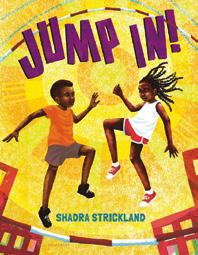
It’s a sunny spring day, and the tic-tac tictac sound of jump ropes hitting the ground floats on the wind. Who will jump in on this double dutch fun?
WHY YOU’LL LOVE IT: “If you’re looking for a fun ‘get outside’ type of story, Jump In! made me want to race outside and play! The repetition of ‘jump in!’ highlights big moments in the story, and a surprise double dutcher added a fun twist!”
–Caroline, Southeast Regional Library
My Encyclopedia of Very Important Sports
From playground games to water sports to international events, this book gives a great overview of the sports your budding athlete already knows, as well as many you might not have thought to explore.

WHY YOU’LL LOVE IT: ”Two-page spreads with infographics and photos make it easy to jump into for beginning readers or to read together with an adult.”
–Janelle Yoder, Litchfield Park Library
4 FALL 2023 Sept • Oct • Nov RaisingARIZONAKids.com
4TH- 6TH GRADE
Hoops by Matt Tavares
Hoops is a historical sports graphic novel inspired by a true story about women’s basketball. This middle school novel takes place in 1976. A newly formed girls’ basketball team needs more resources, including uniforms, equal access to the high school gym, and buses to away games.
WHY YOU’LL LOVE IT: “The book is quickly paced and full of energetic images making it very appealing to young readers. Hoops helps readers understand women’s ongoing fight for equality in sports and all fields and encourages girls to follow any interests or career paths.”
–Maggie, Ed Robson Library
Ghost: Track series book 1 by Jason Reynolds
After Castle “Ghost” Reynolds challenges and beats a sprinter at track practice, the coach offers him a position on the team, but only if he can stay out of trouble. With the support of adults around him, he is able to channel his trauma and anger into a sport that, in turn, teaches him the value of persistence and teamwork.
WHY YOU’LL LOVE IT: “Kids will relate to Ghost as Reynolds deftly captures the middle schoolers’ mind while creating a window into the life of someone with struggles they may not have. The book creates an opportunity for an open discussion between you and your child about bullying, domestic violence, and theft.”
–Jennifer, Library Administration
TEENS
Michigan vs The Boys by Carrie Allen
When the girl’s hockey team gets cut, Michigan has to make the difficult decision to either abandon the sport she loves, or try out for the boys’ team. Despite her unwelcoming team, Michigan proves again and again that she deserves her spot.
WHY YOU’LL LOVE IT: “This book is a fast-paced read and Michigan is an inspiring main character. There is a great overall message about learning to stand up for yourself and speaking out when things are not right.”
–Lexis, Southeast Regional Library
Undefeated: Jim Thorpe and the Carlisle Indian School
Football Team by Steve Sheinkin
Jim Thorpe was a super athlete, Olympic gold medalist, and Native American. Pop Warner was an indomitable coach, football mastermind, and Ivy League grad. Before these men became legends, they met in 1907 at the Carlisle Indian School in Pennsylvania, where they forged one of the winningest teams in the history of America’s favorite sport, while facing overwhelming obstacles both on and off the field.
WHY YOU’LL LOVE IT: “This nonfiction title explores Native American history, American football, and the talents of Jim Thorpe in a compulsively readable style with short chapters and archival photos. Whether you are interested in sports, history, or biographies, this book will captivate you from the first play!”
–Lindsey, Library Administration
Book Pick for Moms
and Dads:
Cha os to Calm
By Monique Seleen
MY HUSBAND AND I both love to read, but typically go for totally different genres! I love a good rom-com book, while he enjoys getting lost in a fantasy world.
However, we’ve recently been picking self-help books on subjects that apply to both of us such as parenting advice, health and wellness tips, or marriage and relationship topics.
Usually we’ll listen to a chapter individually (we love audiobooks since it’s something we can do while we’re driving or taking our son for a walk), and then discuss what we read during our weekly date night.
Want to try it out? Here’s a recent book we loved:
Chaos to Calm: 5 Ways Busy Parents Can Break Free from Overwhelm by Jenna Hermans
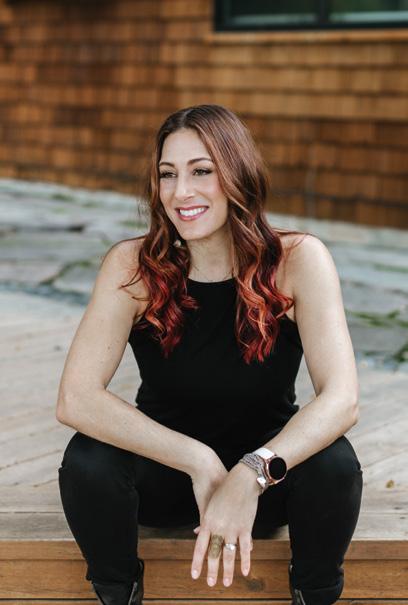
WHAT IT’S ABOUT: Chaos to Calm is a guide that will help you create more time and less stress, so you can spend your days appreciating your family and living with intention and joy. Chapters discuss Efficiency, Habits, Communication, Community, and Self-Care, and include how-tos and simple small tasks that can help you get things done without losing your cool.
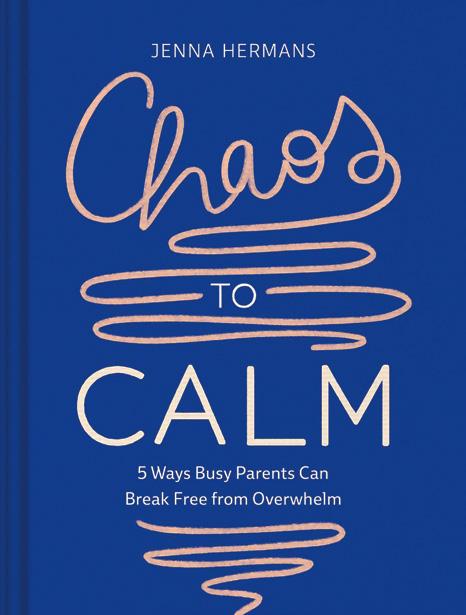
WHY YOU SHOULD READ IT: The book offers practical and realistic advice, easy strategies to implement, and will leave you feeling empowered to create a calmer life – even as busy parents! It prompted us to have really intentional discussions and find ways to support each other, so we can each feel fulfilled, like we’re sharing the load, and making time for ourselves, our family, and each other.
Available at simonandschuster.net/books/Chaos-toCalm/Jenna-Hermans
ANTON VIERIETIN
Books: PARENTING Sept• Oct • Nov FALL 2023 5 RaisingARIZONAKids.com
MORE THAN A MOM How to Get Your Identity Back Post-Parenthood
 By Rosalind Prather
By Rosalind Prather
AS ONE OF MY FAVORITE Taylor Swift lyrics says, “Have you heard? I can reclaim the land.” While motherhood is not the subject matter of her song, I hear that powerful call to arms as a nod to the slow and steady way that many of us sacrifice wholly, and in doing so, lose ourselves inside of motherhood.
I tell my own daughters frequently, “You are responsible for your own happiness. Don’t ever let that be up to someone else.” As is so often the case in parenthood, I find that I need to take my own advice.
And so, if you—like many of us—hit a season where you miss sparkling, I am sharing a few tips I’ve learned along the way on how to “still make the whole place, including your own heart, shimmer.”
Five Tips on Reclaiming your Identity
1. Maintain non-kid hobbies, activities and your own sense of purpose. This is especially true for stay-at-home moms who do not have the luxury of getting away to an office. Nurture your passions regularly. It is important to achieve balance and nurture your whole self; physically, spiritually and emotionally.

2. Be vulnerable and open up to friends about all aspects of your life. In doing so, your conversations will have so much more depth and meaning. These conversations need not always be about the kids. In fact, make sure they are not. Share about your marriage, your personal joys and struggles, your in-laws, your boss.
3. Remember you do not have to lose yourself when you become a mom. You just become a deeper, richer, more diverse version of you. Children, partners and families bring us so much joy. It is true. But, remember that true contentment must come from within.
4. Do not make it all about the kids all the time. Do not only go to the restaurants where THEY like to eat. Do not only listen to their music in the car. Do not let them interrupt your conversations or demand that you entertain them all day. It is not healthy for them to be entitled to everything they want at the snap of a finger anyway.
5. Take care of other important relationships. Prioritize your spouse and regular date nights with them. Doing that consistently is not only a great investment in
your marriage, it is also a great model for your children of the time, energy and dedication it takes to maintain a healthy partnership.
While no psychologist, parenting expert or partner can pinpoint exactly when it happens, almost every mother feels a loss of identity somewhere along the journey. One day she realizes that everything is different. She is different.

And while this may be an unavoidable, if painful, component of the transition, one critical thing to remember is exactly that: it is a transition between chapters. Yes, you will be their mother for the rest of your life. But that cannot and will not be your primary identity forever. One day they will spread their wings, and adjusting to an empty nest will be easier if you insist on holding on to a piece of yourself along the way.
Rosalind Prather is a thirdgeneration small business owner and momtrepreneur in Tucson, AZ. She is the Cofounder of Trusting Connections Nanny Agency and Timeless Play. She is the proud mother of two girls. She is married to Bryan, her cowboy and true soulmate and considers family life and motherhood her greatest joy.

Parenting: MOMS
ISTOCK 6 FALL 2023 Sept • Oct • Nov RaisingARIZONAKids.com
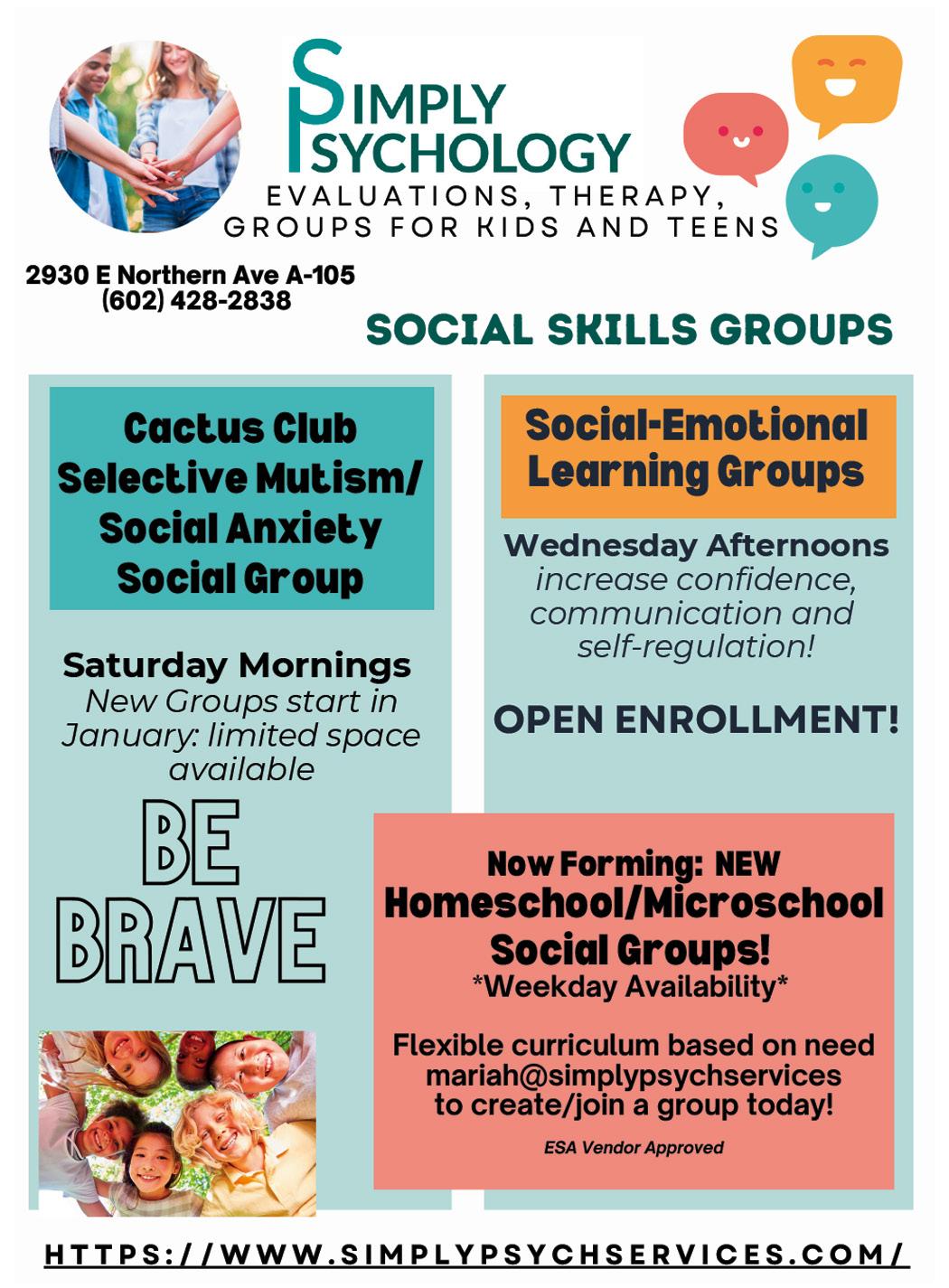
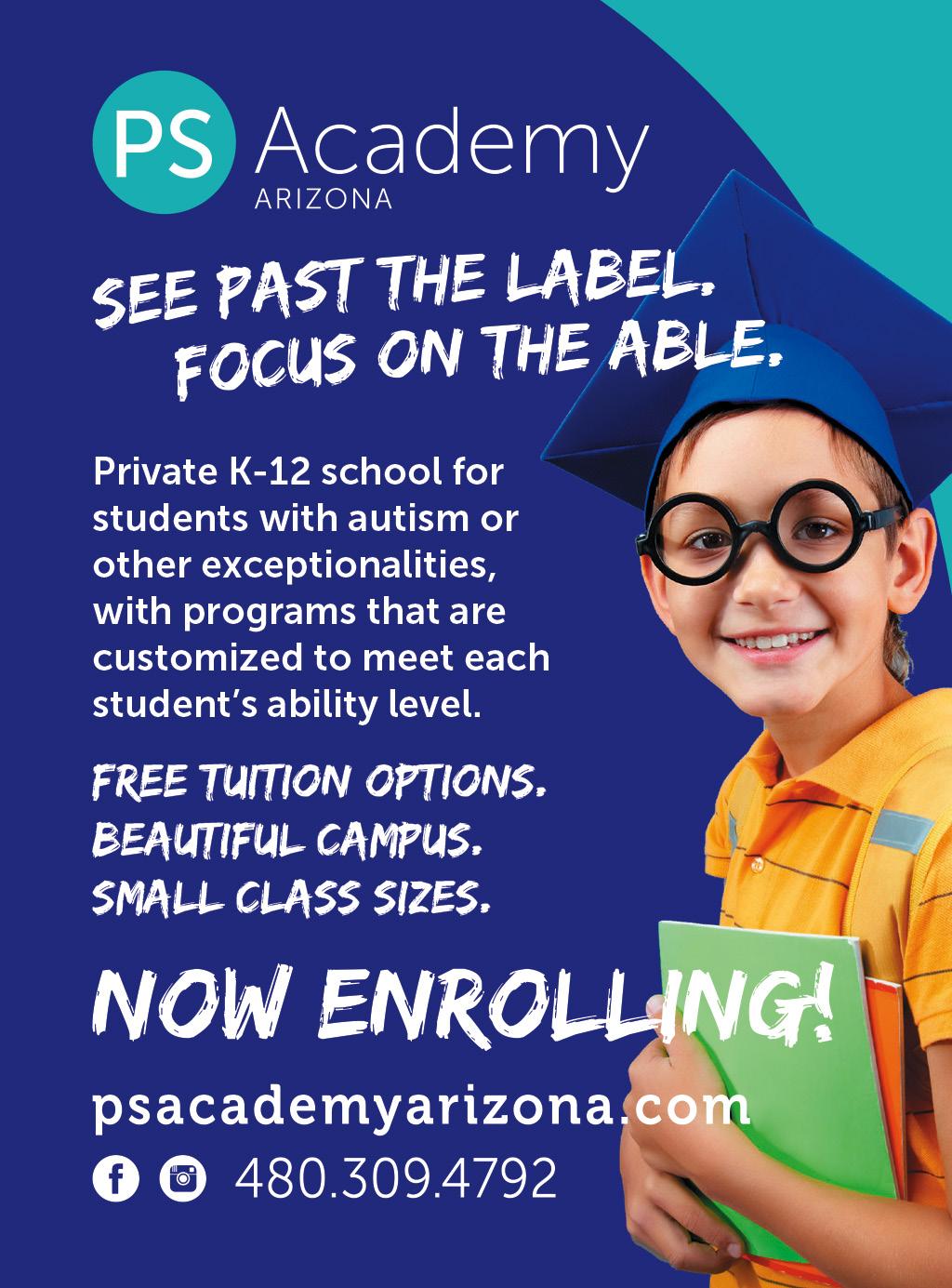


RAISINGARIZONAKIDS.com/schools Looking for a SCHOOL or Need EDUCATIONAL SUPPORT ? Preschools, Private schools, Charter schools, Public School Districts, Online Learning Programs, Special Needs Schools and Sources for Education Support. Plus, Educational articles! Sept• Oct • Nov FALL 2023 7 RaisingARIZONAKids.com
Navigating SOLID FOOD Introduction
A Parent’s Guide to Overcoming Feeding Anxiety
By Cuyler Romeo, MOT, OTR/L, SCFES, IBCLC
INTRODUCING SOLID FOODS to your baby can be an exciting but sometimes challenging milestone. You may have concerns about when to start, how to approach it, and what signs to look for to ensure a successful transition. Know that you are not alone in seeking support as you navigate the introduction of solid foods.
Timing and Readiness:
The Dietary Guidelines for Americans and the American Academy of Pediatrics recommends introducing foods other than breast milk or infant formula around 6 months of age and avoiding introduction before 4 months. Look for these signs of developmental readiness in your child:
• Sitting up independently or with support.
• Having control over their head and neck.
• Opening their mouth when food is offered.
• Swallowing food instead of pushing it out.
• Bringing objects to their mouth.
• Attempting to grasp small objects or food.
• Transferring food from the front of their mouth to the back of their tongue for swallowing.
Approaches to Feeding: When it comes to feeding babies, there are several approaches: baby-led weaning, spoonfeeding and combo feeding to name a few. There’s no one-size-fits-all approach to this milestone in a baby’s development. The key
lies in being responsive to your baby’s cues and respecting their pace. Here are a few different methods you can consider trying:
Baby-Led Weaning:
• Baby-led weaning allows babies to self-feed with family foods. It promotes exploration of various textures and flavors.
Spoon-Feeding/ Stages and Purees:
• Spoon feeding is a traditional approach to introducing solids, where parents or caregivers feed their baby with a spoon, offering pureed or mashed foods. Gradually progress to thicker textures as your baby becomes more comfortable with swallowing.
The key is to listen to your baby, be patient, and offer a positive and supportive feeding environment.
Signs of Successful Mealtimes:

Keep an eye out for these positive indicators as you navigate the world of solid food introduction:
• Your baby watches, touches, and tastes food.
• Your baby shows interest in sitting at the table during mealtimes.
• Your baby can sit happily for short periods during mealtime.
• Your baby has a safe and enjoyable way to eat.
• Your baby continues to grow according to their own growth curve.
What if Your Baby Shows No Interest:
If your baby shows no interest in food up to 9 months of age, continue involving them in mealtimes, allowing exploration of safe foods from your plate, and offering tasty liquids and smooth purees. If there is still no interest beyond 9 months, establish a consistent mealtime schedule, provide preferred foods at family mealtimes, and model enjoyment of safe foods. Remember, mealtime skills develop at different paces for each child.
The journey of introducing solid foods to your baby can have its ups and downs, but with the right support and understanding, you and your baby can enjoy mealtimes together. Trust your instincts, seek guidance from trusted medical professionals, and remember that every child progresses at their own pace.

If something does not seem right, trust your intuition. When a child isn’t eating or drinking the quantity or the variety they need to grow and be healthy, it’s not just because they are being “fussy.” There is usually an underlying reason. Talk to your pediatrician about pediatric feeding disorder (PFD) and check out feedingmatters. org for more information.

Parenting: MEAL TIME
Cuyler Romeo is Director of Strategic Initiatives at Feeding Matters and a clinician at Banner-University Medical Center’s NICU
8 FALL 2023 Sept • Oct • Nov RaisingARIZONAKids.com
NATALIA DERIABINA


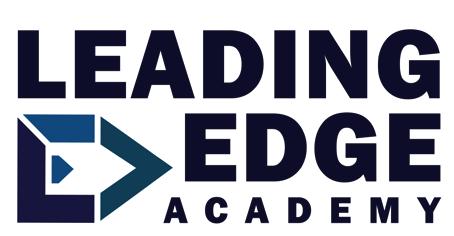
PRAISE versus ENCOURAGEMENT
By Larry Kerby
HAVE YOU EVER FOUND yourself praising your child’s efforts in a game or a dance recital, only to be met with denial or discomfort? As parents, it is disheartening when our well-intentioned praise doesn’t seem to resonate with our children. The truth is that traditional praise, though well-meaning, might not always align with their values and can lead to rejection of the compliments we offer. So, what can we do to foster a more positive connection with our children? The answer lies in the magic of encouragement.
The Pitfalls of Praise
Praise is often expressed in general terms like “great job” or “you’re awesome,” which conveys our feelings and judgments about a specific action or accomplishment. However, this form of praise can sometimes fall short of making a genuine impact on our children. They might not believe the praise, feel uncomfortable, or even perceive it as manipulation, especially when it does not
resonate with their own value system.
The Power of Encouragement
Instead of relying on generic praise, let us explore the concept of noticing and acknowledging, or in other words: encouragement. Encouragement is specific, non-judgmental, and focuses on acknowledging efforts and progress rather than simply applauding the outcomes. By using encouragement, we create a nurturing environment where our children feel genuinely seen and appreciated.

Examples of Encouragement
• “You did it!” – Acknowledge the effort put into completing a task, regardless of the outcome.
• “You put your plate away!” – Recognize small acts of responsibility and independence.
• “You and your brother are really getting along together!” – Highlights positive
interactions and relationships.
• “You worked really hard on that.”
-Recognize the effort invested in a project, regardless of the result.
To gain a deeper understanding into these principles in action, let’s imagine we are playing basketball, and you believe you lack basketball talent. Suppose you manage to make a three-pointer, and I respond by praising you, saying, “you are good at basketball,” or “you are amazing.” What would be your initial reaction? Your brain might instinctively reject it, thinking, “no, I am not. You don’t know what a good basketball player looks like.”
Now, consider the same scenario, but this time, after you make the three-pointer, I choose to encourage you by saying, “You made that shot!” How does your brain respond now? It’s likely that you will break into a smile and think, “Yes, I did make that shot, and it was awesome!” By using encouragement instead of praise, we enable a positive and empowering
Parenting: ENCOURAGEMENT
10 FALL 2023 Sept • Oct • Nov RaisingARIZONAKids.com
internal dialogue, fostering a genuine sense of accomplishment and self-worth. We dramatically up the odds of positive self-talk.
I vividly recall an incident involving a child who consistently misbehaved during lunchtime in the cafeteria. On that particular day, I was on location modeling some of the principles I'd previously taught in a staff training. The child was being loud and disruptive, but instead of lecturing him I focused on the positive behavior of the two kids sitting next to him. I acknowledged them for the respectful and quiet nature in which they were eating lunch. Surprisingly, the misbehaving child asked me if he was being respectful and quiet. While walking away, I responded by saying, “not yet” but I'd returned to check on him later.
Remarkably, in response to my feedback, he promptly sat still on the bench and started to exhibit more quiet and respectful behaviors. I quickly returned and noticed and acknowledged him for his efforts in being respectful and quiet. I didn't tell him what a “good job” he was doing but I merely noticed and acknowledged his improved behavior. Not to my surprise, his behavior continued to improve as I passed by several more times during the lunch period, each
time noticing and acknowledging his positive actions.
As the lunch period drew to a close, the child's teacher arrived to gather the class to return to the classroom. The misbehaving child, now transformed by positive interactions of noticing and acknowledging turned to the paraprofessional urging her to share with his teacher how well he had behaved during lunch. Indeed she did.
This powerful experience reminded me of the effectiveness of noticing and acknowledging positive behavior rather than resorting to conventional praise. Again, by doing so, we create a space for children to recognize their own achievements fostering genuine selfaffirmation and desire to improve further.
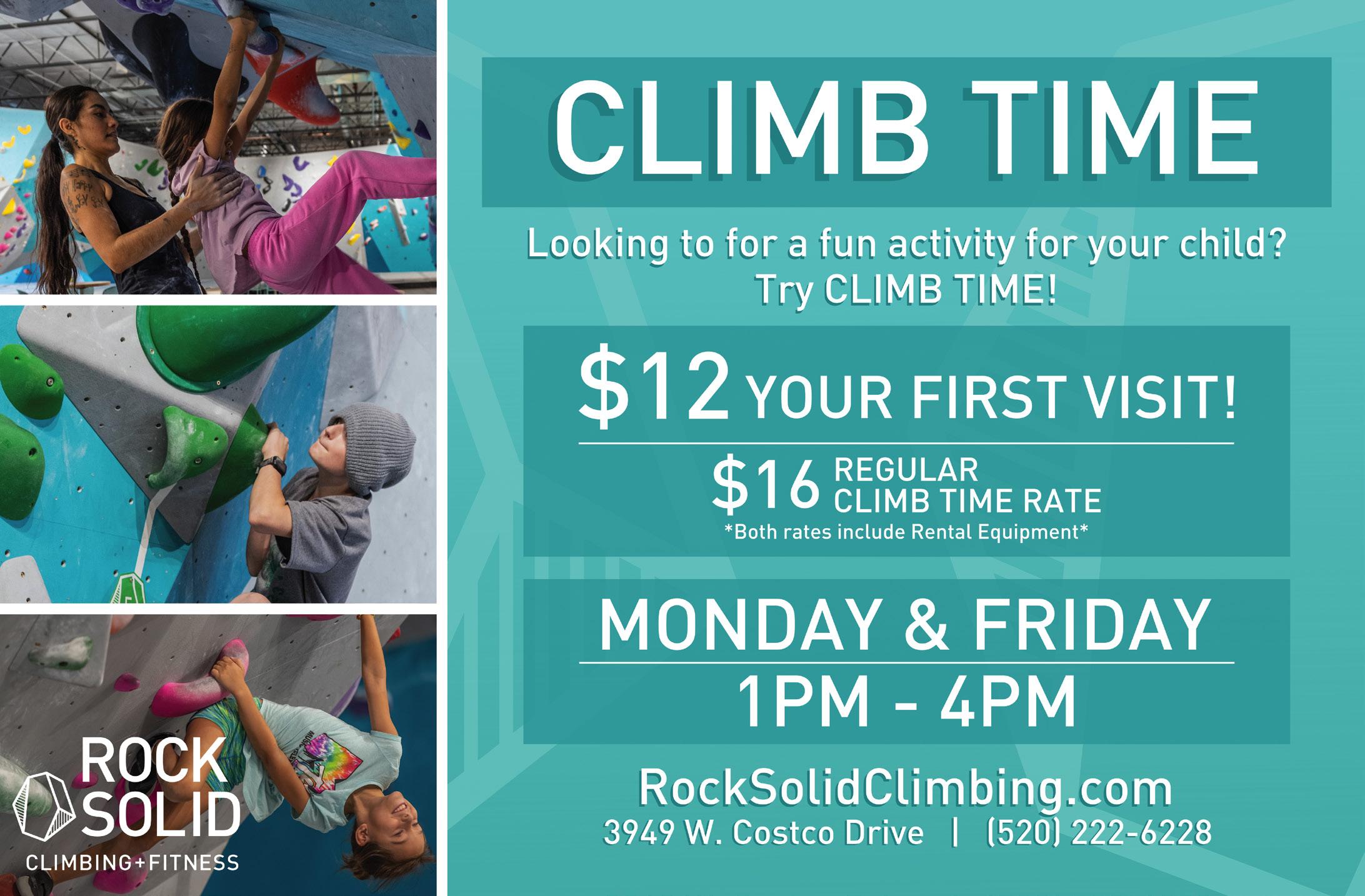
The Impact of What we Focus on
We can imagine how a marriage might suffer if one partner constantly focuses on the other’s flaws. During one of my workshops I asked, “if your spouse only focused on your flaws, how long would that marriage last?” The sweet mother in the front yelled, “thirteen years.” Her answer broke my heart, but at the same time was a cruel reminder and wakeup call for me to be intentional on
what I want to focus on in my relationships. Similarly, what we focus on with our children greatly influences our parent-child relationship. Parents who concentrate on their children’s successes and strengths and consistently notice and acknowledge them, tend to show up more positively and happily and foster a stronger bond with their kids.
Our parenting approach can significantly impact our children’s self-perception and emotional wellbeing. By replacing generic praise with thoughtful and specific encouragement, we create a positive environment where our children can truly believe in their accomplishments. So, let’s celebrate their efforts, focus on their strengths, and nurture stronger bonds that will last a lifetime. Together, we can empower our children to thrive and become the best version of themselves.
Larry Kerby is the author of the “Emotional Ownerships” seminar series which helps parents lower their emotional reactivity. He is raising three amazing kids with his best friend and wife, Kami.

PHOTO DJO Sept• Oct • Nov FALL 2023 11 RaisingARIZONAKids.com
Dad Talk
THE TABLES HAVE TURNED
By Trent Reed
OUR BEDROOM is just barely lit with the rising sun, yet my 2-year-old is already wide awake and whispering in my ear, “I want to go!” – one of the only phrases we can clearly understand from him. He’s our wild child. Always ready for the next adventure.
I rub my eyes and check the clock. 5:30 a.m. I sigh. My 4-year-old is sprawled across our bed, and I wonder when he came in (and where did his pajamas go?). At first, I’m frustrated that I can’t sleep in, but those big blue eyes are full of excitement for another day, and I can’t help but smile. My wife and the baby are still sleeping, so I leave them be. I know she was up a few times last night.
I quietly move to the living room to start our morning checklist: start an episode of Bluey, take the dogs out, get the toddler dressed, start breakfast, water the plants, empty the dishwasher…I’m sure I’m forgetting something. With four boys at home, there is always something to be done.
I haven’t quite figured out a great routine yet. Not like my wife did. I’m not sure how she managed the household and working from home while I was also working (and traveling), but she did it effortlessly (with a few rants and tears, of course).

A few weeks ago, we made the decision for me to leave my full-time job to be a stay-athome-dad, and it might be more stressful than working. Although, I’m sure my wife would disagree. The lack of quality (and affordable) childcare made it an easy decision in the end, and my wife can focus more on Raising Arizona Kids (while I focus on raising our Arizona kids).
Embarrassingly, this is the first time I’ve had to take on more responsibilities at home,
 Trent Reed of Show Low with his youngest son, Hawkins days after his birth in February 2023.
Photo by Katelyn McKenzie Photography.
Trent Reed of Show Low with his youngest son, Hawkins days after his birth in February 2023.
Photo by Katelyn McKenzie Photography.
12 FALL 2023 Sept • Oct • Nov RaisingARIZONAKids.com
Let's celebrate the many roles that fathers play in their children's lives through this collection of personal reflections and resources just for dads.
so the first few weeks I was asking questions that made my wife’s eyes roll. But now, I’m an expert at diaper creams, milk warming, vacuuming, and story time. I’m still not allowed to do the laundry (you forget the detergent ONE time…), but I’m a lot better at checking the dryer to fold clothes.
With school back in session, I’m getting used to packing lunch boxes and being the on-call parent if a kid gets sick, needs to be picked up, or needs a parent to attend an IEP meeting.
According to the Pew Research Center there were 2.1 million stay-at-home-dads in 2021 (up 8% since 1989). But, when strangers (and the occasional family and friends) find out I quit my job so my wife could work, they’re shocked. But I guess I understand why – I could have never envisioned this being my life. And man, I totally understand why my wife was always so stressed and overwhelmed. Small children are not for the weak (but they are a ton of fun!).
Fathers play an important part in their child’s life, and in this section we want to have some “Dad Talk.” You’ll find personal pieces from dads about the different roles fathers play in their children's lives. One dad shares what it's like to raise children with disabilities, another offers thoughts on the portrayal of dads in society, and you'll find insight from one dad about the importance of sharing in parental, household, and family responsibilities.
I’m still settling into this role and learning the ropes (it’s sort of my first rodeo, you know), but I’m embracing this unique chance to spend time with my kids. I know I’ll never get these years back.
When I joke that I don’t have a job, my wife reminds me, “no…you have the most important job.” And that makes it all worth it.
Trent is a father to four boys ranging from 6 months to 10 years old. He's a newly turned stay-at-home-dad but helps his wife, Kate, with some of the behind the scenes work for Raising Arizona Kids (and is heading up this Dad Talk section!). He loves fishing, gardening , and he's become quite the chef in his spare time.
I is for Invisible
By Neil Tift
FOR MY DAUGHTER Hannah’s second Christmas, my wife and I ordered a tape of children’s music that had her name woven into each of the six songs. She was excited when she opened her gift and immediately wanted to listen to her new tape.
The first tune was the Alphabet Song, sung by a woman with a beautiful rich voice. She started with “A is for apple, B is for baby” and sang “H is for Hannah” and so on. But, as I listened, I found the song to be annoyingly incomplete. The artist sang “G is for Grandma” and went on to “M is for Mommy.” That was appealing. But she also sang “D is for ducky,” “F is for froggie,” on to “P is for puppy.”
I felt compelled to rewind the tape to listen again, hoping that I had just failed to hear some very important words. But she sang the same words that I heard the first time.
There was no “D is for daddy,” no “F is for father” nor any “P is for poppa.” And I wondered aloud. Why is there no male presence included in any of the 26 letters of my daughter’s alphabet? Why do American publishers think it should be the norm to exclude any male representation in the family portrait? Why are fathers so often invisible in the world of our children?
What has happened in the U.S, that the children’s entertainment industry has decided that fathers, that men, are no longer important
to include in our world view?
This could be a reflection of our government assistance programs that provide billions of federal dollars to fund Maternal and Child Health, Women’s Infants and Children (WIC) and Healthy Mothers, Healthy Babies programs. These are obviously essential resources for mothers and children who clearly benefit from these services. We must continue funding them to the fullest extent to help our wives, sisters, mothers and daughters. But what about the fathers? Where are they in our family service delivery system?
Or is this merely a reflection of the media’s portrayal of contemporary fathers as the doofus dad we see in so many TV shows, movies and commercials?
I definitely don’t want my daughter growing up in a world where fathers are so invisible. No one should.
Neil Tift is the Outreach Coordinator and Court Navigator for Native American Fatherhood and Families Association (NAFFA)

– an Arizona based non-profit organization that provides programs to strengthen families through responsible fatherhood and motherhood. Neil is a birth father of one, an adoptive father of two, a grandfather of fourteen and foster father of many.
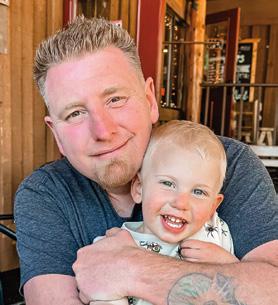
Dad Talk: FATHERS
Sept• Oct • Nov FALL 2023 13 RaisingARIZONAKids.com
Sharing the LOAD
By Chod McClintock
THE LANDSCAPE OF MODERN families has been changing for many years and traditional gender roles have been undergoing significant transformations. Gone are the days when dads were viewed mostly as breadwinners with minimal involvement in parental, household, and family responsibilities.
Today, dads play an essential role in nurturing their kids, keeping up on chores, and supporting their partners in more ways than just financially. Single dads often have a keener understanding of what it takes to maintain a household when the job is exclusively on them. Perhaps coupled fathers need to better understand the importance of sharing the load of parental, household, and family responsibilities.
For single dads, raising kids and maintaining a household can be a challenging and rewarding experience. Many single fathers have stepped up to be both the provider and nurturer in their children’s lives, which comes with all the myriad of details like doing the dishes, washing clothes, scheduling doctor’s appointments, bathing, helping with homework, meal prepping and cooking, shopping, day care, and school
events. Single dads understand that balancing work, parenting, and a personal life can be overwhelming.
On the other hand, dads in coupled relationships have the advantage of a built-in support system with their partners. In these family units, it is essential that fathers recognize the value of equal distribution of responsibilities, or sharing the load of parenting, household, and family needs. Coupled dads could benefit from the single dad’s experience and take a mental note when the dishwasher needs loading, kids' clothes need folding, the toilet cleaned, the homework checked, the bedding washed, or the dog walked.

To maintain a balanced and harmonious family and avoid resentment within their relationship, coupled dads should work on staying conscious of simple yet productive efforts that can support moms who may feel like they’re doing the bulk of the work to keep a house running effectively.
Mothers can often bear the emotional load of balancing life, work, managing the household and caring for children. By sharing the load of responsibilities, dads can create a more supportive environment and strengthen

the bond between parents. Communication is the key for both parents. When dads initiate and maintain a better balance of childcare duties, household chores, or simply tuning in and actively listening to a mother’s need for support, it can make a world of difference to the family’s overall sense of well-being, as well as modeling more dynamic awareness for the children around communication and cooperation.
Coupled dads can take a cue from the single dads out there that perhaps the simplest acts of support around these subtle yet everyday elements of keeping a family functioning in a healthy inclusive manner, might just be the difference between doing it alone or having the support of a loving life partner.
Chod McClintock is a dad to a 7 year old daughter and serves as the Fatherhood Support Facilitator with parentaid. org. where he teaches Fathering Skills courses and hosts a weekly Dads Support group. Chod is a father’s rights advocate and recently co-presented at the annual national Child Abuse Prevention conference.
Dad Talk: RESPONSIBILITIES
14 FALL 2023 Sept • Oct • Nov RaisingARIZONAKids.com
DAD TOGETHER Fathers Raising Kids with Disabilities
By Edward Casillas
YOU SET YOUR alarm for 5:00 a.m., an extra hour early to ensure you have time to navigate the unplannable. Your morning is filled with meal preparation and medication scheduling as you squeeze in last-minute requests from your boss. You wake your child as late as possible, ensuring they get every minute of sleep they need to embrace the day — simultaneously praying they get up on the right side of the bed. Luckily, they roll over, open their eyes and smile.
They say “fatherhood isn’t for the faint of heart” — and they’re right. It can be one of the most physically, mentally and emotionally demanding jobs in the world, and when raising a child with a disability, it requires an extra level of patience. But you’ll find it’s the most rewarding profession the world can offer you.
They also say, “it takes a village,” and while men in general are less apt to speak up when they need help, it doesn’t mean they need it any less. But where do you go when you feel like you’re on this journey alone?

Well, first off, you’re not. The Exceptional Student Services (ESS) Special Education Advisory Panel (SEAP) found over 12% of Arizona K-12 parents have a child with a disability and this doesn’t account for those schooling at home or not yet of school-age years. Secondly, other dads want to talk and share . . . with you. That’s why the Arizona Family Involvement Center created the “Dad Together” program. It’s a place for dads, dadsto-be and father figures to share frustrations, joys and achievements without judgment.
Among its many offerings, the “Dad Together” program helps fathers:
• Connect with other dads
• Develop coping mechanisms
• Manage child behavior lovingly
• Resolve conflict safely
• Learn conflict-resolution strategies
• Create teamwork and healthy co-parenting habits
Plus, it’s completely free. The group is open to dads with kids of all abilities — you can attend in person or virtually.
Connecting with a fellow dad who’s been through challenges themselves can provide a sense of relief and reassurance you may not have experienced before. Whether your child is facing a new diagnosis, or you have been on this journey for years, we are here for you. And, if you’ve figured out how to navigate this journey more smoothly than others, congrats, I’d like to invite you to join me as we are
hiring experienced fathers to join our ranks. We’re building a village of fathers, strong fathers, because that’s what you do when you have the most important job in the world.
To connect, go to the FamilyInvolvementCenter.org
Edward Casillas serves as the Program and Services Development Manager at the Family Involvement Center. He’s also involved as a parent leader with the Alliance Parent Partnership Council, member of the DCS Parent Advisory Collaborative and is active with the Birth Parent National Network. Edward aims to help struggling families succeed and keep families strong and thriving.
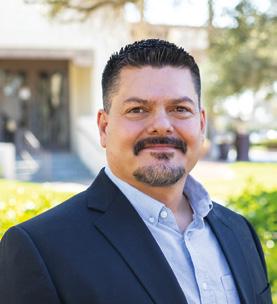
POINT
HALF
Dad Talk: SPECIAL NEEDS
YUROLAITS ALBERT
Sept• Oct • Nov FALL 2023 15 RaisingARIZONAKids.com
DADDY BOOT CAMPS
By RAK Staff
FOUNDED IN 1990, the non-profit Boot Camp for New Dads has graduated more than 325,000 men, making it by far the nation’s largest program for new fathers, and is now offered in 44 states, on U.S. military bases, Canada and the U.K. This 3 hour course gives expectant fathers the opportunity to learn the ropes of fatherhood from veteran dads. The class covers caring for the baby, helping mom and dealing with the emotions, fears, and challenges of becoming a new dad. This is a unique father-to-father, community-based workshop that inspires and equips men of different economic levels, ages and cultures to become confidently engaged with their infants, support their partner, and personally navigate their transformation into dads.

Here are locations offering Boot Camp for New Dads across Arizona:
Chandler Regional Medical Center
1955 W. Frye Rd., Chandler, Arizona 85224 480-728-5414 • dignityhealth.org/arizona/locations/chandlerregional
Mercy Gilbert Medical Center
1760 E. Pecos Rd., Gilbert, Arizona 85296 480-728-5414 • dignityhealth.org/arizona/locations/mercygilbert
Northern Arizona Healthcare (NAH Education and Training Center)
1000 N. Humphreys St., Flagstaff, Arizona 86001
Contact: Autumn Argent 928-773-2309 • nahealth.com
Parent Aid
2580 E. 22nd St., Tucson, AZ 85713
Contact: Allan Stockellburg 520-798-3304 • parentaid.org
St. Joseph Hospital
350 W. Thomas Rd., Phoenix, Arizona 85013 602-406-3050 • dignityhealth.org/arizona/locations/stjosephs
MICHELLE GIBSON Dad Talk: PARENTING
16 FALL 2023 Sept • Oct • Nov RaisingARIZONAKids.com





Save $$$ on Sewer Repair with Trenchless Pipe Lining Rehabilitate Old, Worn and Damaged Pipes with: • NO Digging • NO Tearing out Walls • NO Property Destruction NEED SEWER PIPE REPLACEMENT? GET A QUOTE OR BOOK US ONLINE! 520.500.7228 • service@azdrainmedics.com CALLDRAINMEDICS.com Small Family Owned Business, Proudly Serving Tucson and Surrounding Areas! LICENSED • BONDED • INSURED LIKE NEW! $500 OFF QUALIFIED JOBS! Newborn Care Specialist and New Parent Educator Free Consultation Call. Text,CallorVisitOnlinetoBookToday! 623-703-0414 • newbornnestingco.com In Home New Parent Education A comprehensive program that will provide you with the knowledge and skills you need to confidently navigate the early stages of parenthood. In-Home Overnight & Daytime Care Overnight care for your newborn. Includes feeding, diapering and sleep conditioning. This will allow you to get the rest you need, knowing that your baby is in safe and capable hands. Care is provided 3-7 nights per week with 8-10 hours shifts. A POSTPARTUM DOULA can help with light household chores like dishes and laundry so that you can focus on resting and bonding with your new baby. A REAL BONUS! Sept• Oct • Nov FALL 2023 17 RaisingARIZONAKids.com
COURAGEOUS CO-PARENTING
Mastering Your Mindset After Divorce

 By Michael Aurit, JD, MDR
By Michael Aurit, JD, MDR
DIVORCE ITSELF doesn’t cause longterm harm to children. Research shows that it is the conflict between parents during and after divorce that causes lasting psychological harm. And the number one factor that impacts the level of conflict or presence of peace within your co-parenting relationship is each parent’s mindset. It influences everything Your mindset is a combination of your beliefs, thoughts, emotions, assumptions, and attitudes that shape how you think, feel, and act. Every word you choose, every decision you make, and every challenge you navigate is motivated by your mindset.
with your co-parent directly and genuinely about what you want and why, especially when you disagree ?
Choosing a positive focus regardless of your past experiences is one of the most courageous things you can do in your life—as a parent and a human being. It’s a never-ending practice and growth opportunity with endless benefits.
With this mindset, you have the best chance at a peaceful relationship with your co-parent. And, if your co-parent has a negative mindset and engages in uncooperative behavior beyond your control, your mindset will, at least, allow you to find peace within yourself.
Ultimately, when you choose a courageous co-parenting mindset , you and your children have the opportunity to reach your highest level of health and happiness possible.
Thank goodness your mindset is a choice! And you can change it at any time. It’s a matter of what you choose to focus on.
Will you choose to focus on what you don’t want from your co-parent—what they’ve done wrong, their past mistakes, and their negative qualities? Will you discuss these with your friends and family or zing your co-parent with them to prove a point? Will these be the stories you tell your children? Or, will you choose to focus on what you want for your children— what you want for your own life and how you want to internalize your co-parenting relationship? Will you acknowledge the positive things about your co-parent? Will you communicate
Courageous Co-Parenting is Raising Arizona Kids’s column for separating or divorced parents to learn conflict resolution skills, strategies, and attitudes for healthy co-parenting. These concepts apply to all parents. Please feel free to share the column with your co-parent.
Michael Aurit, JD, MDR, is the Co-Founder of The Aurit Center for Divorce Mediation in Scottsdale, and an Adjunct Professor at The Straus Institute for Dispute Resolution at Pepperdine University School of Law and Arizona State University’s Sandra Day O’Connor School of Law. Michael is married to Karen Aurit, and they live in Phoenix with their two daughters. To learn more, visit auritmediation.com

M-IMAGE PHOTOGRAPHY
Relationships: CO-PARENTING 18 FALL 2023 Sept • Oct • Nov RaisingARIZONAKids.com
INSPIRING PASSION FOR
At Madison School District, your child will be immersed in future-focused learning with opportunities for inquiry and discovery through a variety of signature programs:

• Visual & Performing Arts
• International Baccalaureate®
• REACH - Profoundly Gifted
• STEAM
• Spanish Immersion
• Traditional Academy

Learn more about enrollment at


madisonaz.org/enrollment

Sept• Oct • Nov FALL 2023 19 RaisingARIZONAKids.com
HEALTHY LOVE HABITS
Turn Relationship Goals into Mini-Habits
By Karen Aurit, LAMFT
TOO OFTEN in our relationships, we focus our attention on what we don’t want.
For example, “I don’t want to feel so unappreciated,” or, “I don’t want to go another week without any intimacy.”
Believe it or not, when we focus on what we don’t want, we get (wait for it…) more of what we don’t want! As the famous saying goes, “What we focus on expands.”
You can begin by asking yourself about what you really want within your relationship. Is it affection?
Acknowledgment? Romance? Connection?
Now, let’s turn what you don’t want into what you do want .
• “I don’t want to feel unappreciated” becomes “I want to feel appreciated.”
• “I don’t want to be ignored” becomes “I want to be acknowledged.”
• “I don’t want to feel lonely” becomes “I want to find ways to connect.”
Chances are that your partner may have similar desires and goals. Approaching

desires in a simple and positive way can dramatically improve your relationship! The key is to turn your desires and relationship goals into daily mini-habits that create a renewed sense of intimacy and love, help you and your partner to know each other better, and support you both as you grow together. Here are a few minihabits to get you started:
• Appreciation-a-day: Each evening, before dinner, share one thing that you genuinely appreciate about each other.
• Favorite-of-the-day: As you begin your day, take turns asking each other,“ What is your favorite (fill in the blank?).”
• 5-minute book club: Agree to spend 5 minutes reading the same book (or listening to the same podcast) and have a short convo before bed.
• Romantic-kiss-a-day: Look into your partner’s eyes and share a romantic kiss… at least once every day!
Expressing what you do want and using daily mini-habits may seem insignificant,
but they add up – and they are a lot of fun! Choose mini-habits that nourish your souls, and you can make your relationship goals a reality!
Healthy Love Habits is Raising Arizona Kids’s relationship column for learning simple habits to create the healthy and loving connection you desire and deserve.
Karen
Aurit,
LAMFT, is Director
and
Co-Founder of The Aurit Center for Divorce Mediation in Scottsdale.
Karen is a Licensed Associate Marriage and Family Therapist who specializes in mindfulness theory. She is also an Adjunct Professor at The Straus Institute for Dispute Resolution at Pepperdine University School of Law and Arizona State University’s Sandra Day O’Connor School of Law. Karen is married to Michael Aurit, and they live in Phoenix with their two daughters. To learn more, visit auritmediation.com
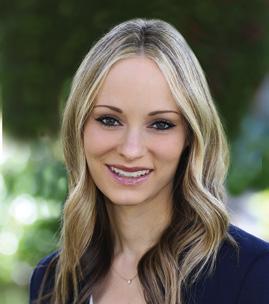
CLICKNIQUE Relationships: HABITS 20 FALL 2023 Sept • Oct • Nov RaisingARIZONAKids.com


Sept• Oct • Nov FALL 2023 21 RaisingARIZONAKids.com
DUO Dates Unlike Others
Scottsdale-Based Bachelor Couple Creates DatePlanning App

 By Monique Seleen
By Monique Seleen
IF YOU’RE FANS OF THE BACHELOR, you might already know a little bit about Arie and Lauren Luyendyk’s love story.
They met on the show back in 2017, and although Lauren was the runner-up and Arie originally proposed to someone else, he soon found himself regretting his decision and thinking about Lauren instead.
After breaking things off with the other woman, Arie ended up proposing on live television to Lauren, and the rest is history…
Now, married for over four years with three kids of their own (including a set of twins), the couple and their family split their time between Maui and Scottsdale.
In the midst of parenting and raising their three children, Arie and Lauren began working to create an app called DUO (Dates Unlike Others) which is now available to download.
The inspiration behind the app was born after Lauren and Arie said they were trying to be creative and intentional with the time they spent together as a couple.
“We got the idea during COVID when everyone was on lockdown, and we were trying to think of ways to entertain ourselves,” said Lauren. “We would do goat yoga, backyard movie nights, star-gazing, and s’mores-making, and people started asking us how we were coming up with these date ideas.”
Through DUO, other couples can now share in the excitement of trying out new things and being more creative with their date ideas, too.
The app, which is free to download, offers users the chance to swipe through hundreds of date ideas – referred to as date cards –specific to their area. In the Phoenix area, this includes things such as kayaking at Tempe Town Lake, visiting San Tan Flat, having a picnic at Papago Park, or going indoor go-karting at Octane Raceway.

With the premium option, you can opt for a surprise date. In this case, you set your budget, choose a time frame, and fill out a small questionnaire for the types of activities that interest you.
Then, a team of date-planning experts will do the rest—making any necessary reservations and planning the excursion—all which will remain a surprise to the both of you.
After the date is planned, you will get a text 24 hours before – giving you the address (you’re encouraged not to Google it), the time of when to show up, what to wear, and any other important details you might need.
Surprise dates typically consist of an activity followed by a meal—similar to what the couples do on the Bachelor.

Some examples of surprise dates planned by DUO have included trapeze excursions,
mountain repelling, and visiting a lunar exhibit, just to name a few.
“We’ve seen a lot of happy couples,” said Arie. “It’s unique and really seems to push people out of their comfort zone and learn something new about each other.”
The couple said they hope that the app not only helps take away the stress of planning a date, but will help couples strengthen their relationship.
“It comes from something that Arie always says which is to never stop dating when you’re married,” said Lauren. “Whenever we get in a place where we’re struggling, we recognize that we need time to ourselves and think it’s important to always date.”
As the app continues to grow, Lauren and Arie said they have plans to continue expanding. Currently, they are working on a group date feature where users will be able to connect with other couples with similar interests and attend things like festivals or concerts together.

“We wanted to do something together and give back that Bachelor dating experience that we had,” said Lauren. “So far it’s exceeded our expectations. It’s exciting and fun, and there’s nothing else like it.”
For more information on DUO or to plan your surprise date, visit datesonduo.com
Relationships: DATING 22 FALL 2023 Sept • Oct • Nov RaisingARIZONAKids.com





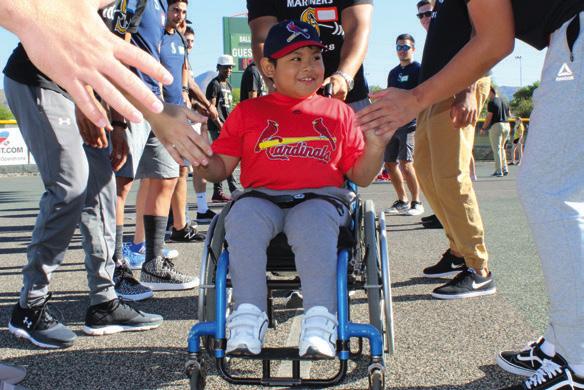



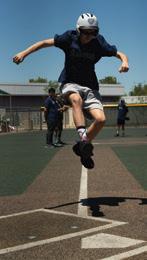




Volunteer. Donate. The Miracle League of Arizona is an adaptive baseball program for children and adults with special needs. We aim to remove any barriers and share the fun of baseball with everyone! 480-686-8137 www.MiracleLeagueAZ.com 11130 E Cholla St. Scottsdale, AZ 85259 Contact us! Give back to the community Work one-on-one with players Create lasting friendships Must be at least 10 years old Players Volunteers Ages 5-99 All skill and experience levels Teams are co-ed Personalized game jersey Participation is free! @MiracleLeagueAZ Sept• Oct • Nov FALL 2023 23 RaisingARIZONAKids.com
Play.

 By Dr. Darcey Winterland
By Dr. Darcey Winterland
THE SCHOOL YEAR is well underway for Arizona children and teens – and it’s a perfect time to check in on their physical and mental health to make sure they’re growing up healthy, happy and strong. As a pediatrician and mom, here are a few things to keep in mind this time of year:
Schedule a well-child visit. It’s important for kids to receive a medical check-up each year. At this appointment, your child’s pediatrician will review their medical history and complete a physical exam. It’s an ideal time to raise any concerns or questions you have as a parent, including any feelings of anxiety, depression or stress your child may be experiencing.
Make sure vaccines are current. Arizona public and private schools require children to receive certain vaccines. Your pediatrician
can make sure your kids are up to date and administer any needed vaccinations.
Prepare athletes for play. Sports physicals can be completed by your pediatrician and are often wrapped into the back-to-school exam. It’s important for your pediatrician to complete this – they know your child’s health history, and your family history as well. These are important factors in catching anything that may warrant a closer look.
Wear backpacks properly. Backpacks can be heavy, and if they’re not worn correctly, they may cause back, neck or shoulder pain. Choose a backpack that’s the right size for your child and has two wide, padded shoulder straps, a padded back and a waist strap. Your child should always use both shoulder straps, adjusted tightly enough to keep the load close to the back.
Bicycles, including e-bikes, are a popular way for kids to get to and from school and activities. Make sure your child wears a properly fitted helmet and follows the rules of the road, like coming to a full stop at stop signs and using proper hand signals.
Take a hard look at schedules. It can be challenging for kids to juggle school, homework, sports and other extracurriculars. Safeguard your child’s physical and mental well-being by ensuring their schedule includes plenty of downtime for rest, recovery and time with friends and family.


Evaluate new complaints. When kids complain of aches and pains, most parents treat the symptoms, like administering acetaminophen or implementing an earlier bedtime. Some aches are due to a mental health issue that’s leading to physical symptoms – and Tylenol doesn’t help. A child with new stomach problems might be stressed about a peer relationship, while a teen experiencing headaches or constant fatigue might be depressed or anxious. At this time of year, pediatricians treat a lot of kids and teens with physical problems that are rooted in mental health issues.

If you suspect your child’s aches and pains indicate a mental health concern, talk to your pediatrician about strategies to help children cope with stressors, recommendations for modifying food or sleep habits, and whether you should adjust your family’s routine or scale back on your child’s activities. You and your doctor may decide that meeting with a psychologist or counselor is the best next step.
If you are looking for a new pediatrician, Phoenix Children’s Pediatrics provides comprehensive primary, preventive and urgent care services at locations across the Valley and in Cottonwood. Learn more at phoenixchildrenspediatrics.org

Darcey Winterland, MD, credits her mother, who worked in oncology and preventive healthcare, as her inspiration. for being a doctor. She completed her medical degree at the University of Arizona College of Medicine in Tucson and her residency at Phoenix Children's.
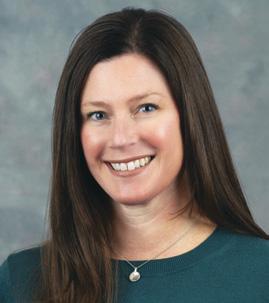
26 FALL 2023 Sept • Oct • Nov RaisingARIZONAKids.com
CHOREOGRAPH




Contact us today! 480.596.3543 XtremeGymnastics.com 14000 N. Hayden Rd. Scottsdale, AZ 85260 All Levels Welcome! From Beginner to Competitive • Boys & Girls Ages 3–12 • Risk FREE Trial for All Ages • Tumbling: Ages 8 –18 Flip into Fun with GYMNASTICS! Sept• Oct • Nov FALL 2023 27 RaisingARIZONAKids.com
Cooking Safety
By City of Scottsdale Fire Department

Cooking brings family and friends together, providing an outlet for creativity. However, cooking fires are the number one cause of home fires and home injuries.
According to the National Fire Protection Association, unattended cooking is the leading cause of cooking fires.
This year, as part of Fire Prevention Week beginning Sunday, October 8 – Saturday, October 14, 2023, the Arizona Fire and Burn Educators Association joins the NFPA and fire departments across the state to promote the campaign “Cooking Safety Starts with YOU.”
“A cooking fire can grow quickly,” says Tanja Tanner, AFBEA president. “Many homes have been damaged and people injured by fires that could easily have been prevented.”
By following a few safety tips, you can prevent these fires.
Cook with Caution
• Have a kid-free zone of at least three feet around the stove.
• Be on alert! If you are sleepy or have consumed alcohol don’t use the stove or stovetop.

• Stay in the kitchen while you are frying, boiling, grilling, or broiling food. If you leave the kitchen for even a short period of time, turn off the stove.

• If you are simmering, baking, or roasting food, check it regularly, remain in the home while food is cooking, and use a timer to remind you that you are cooking.
• Keep anything that can catch fire — oven mitts, wooden utensils, food packaging, towels or curtains — away from your stovetop.
If you have a small (grease) cooking fire and decide to fight the fire:
• For stovetop fires, smother the flames by sliding a lid over the pan and turning off the burner. Leave the pan covered until it is completely cooled.
• For an oven fire, turn off the heat and keep the door closed.
If you have any doubt about fighting a small fire…
• Just get out! When you leave, close the door behind you to help contain the fire.
• Call 9-1-1 or the local emergency number from outside the home.
To find out more about safety programs and activities in your area, please visit afbea.org or contact your fire department. For more general information about Fire Prevention Week and cooking safety, visit fpw.org. For fire safety fun for kids, visit sparky.org
City of Scottsdale Fire Department is a proud member of AFBEA. Established in 1987, Arizona Fire and Burn Education Association is a training and advocacy non-profit coalition dedicated to help fire and life safety educators meet the needs of their communities.

Safety: Sponsored Content 28 FALL 2023 Sept • Oct • Nov RaisingARIZONAKids.com
PROSTOCK STUDIO
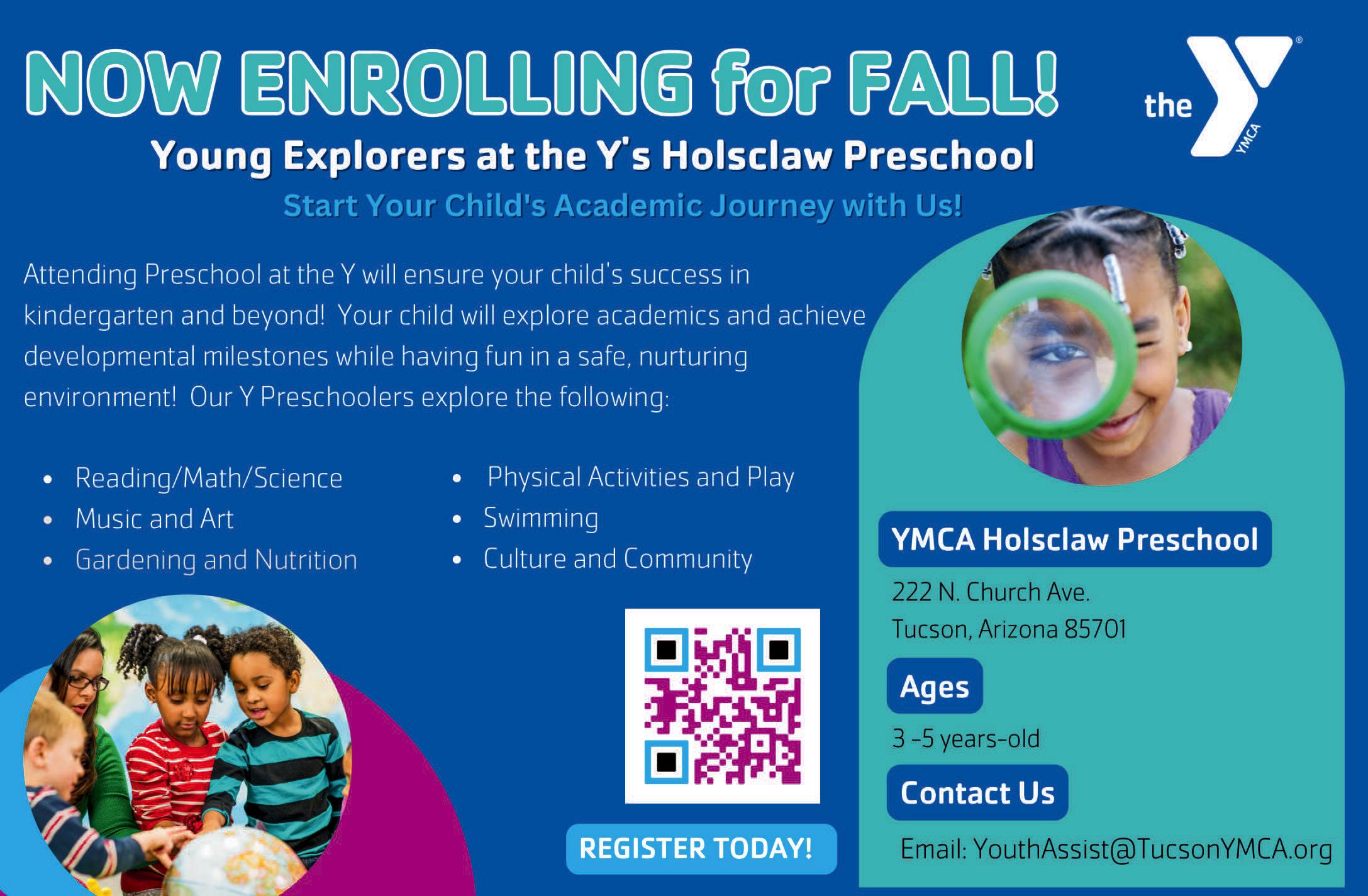
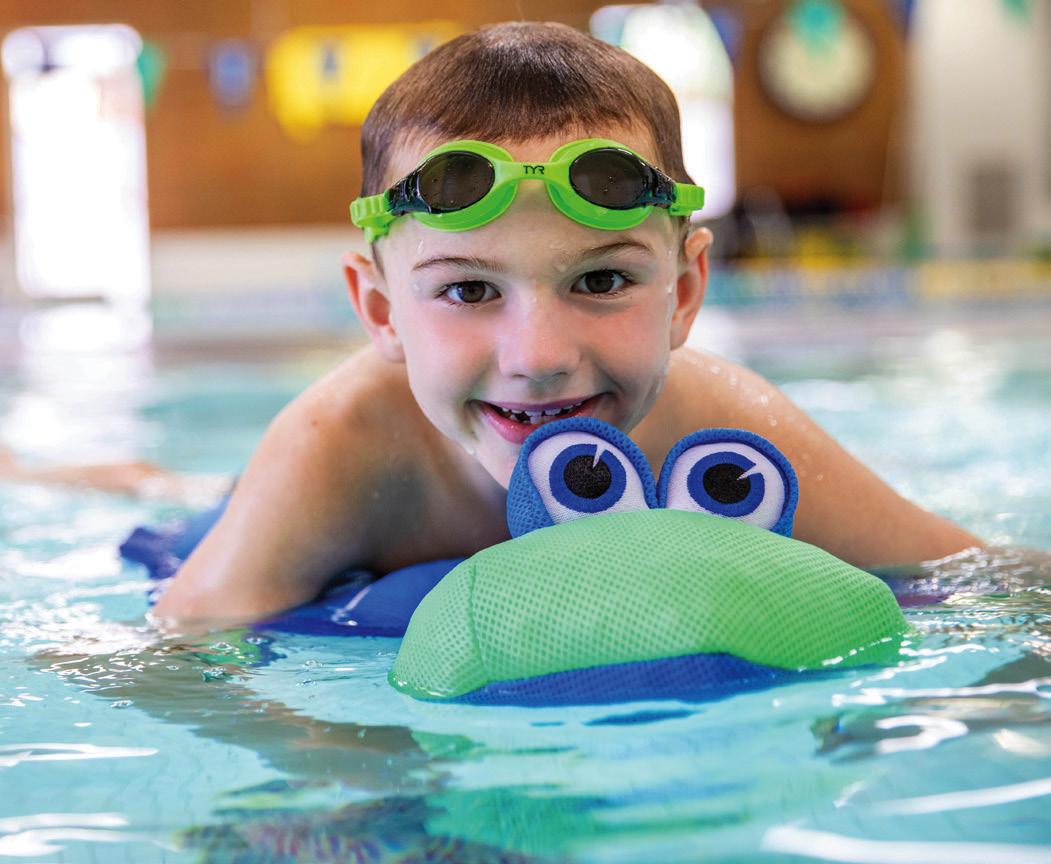




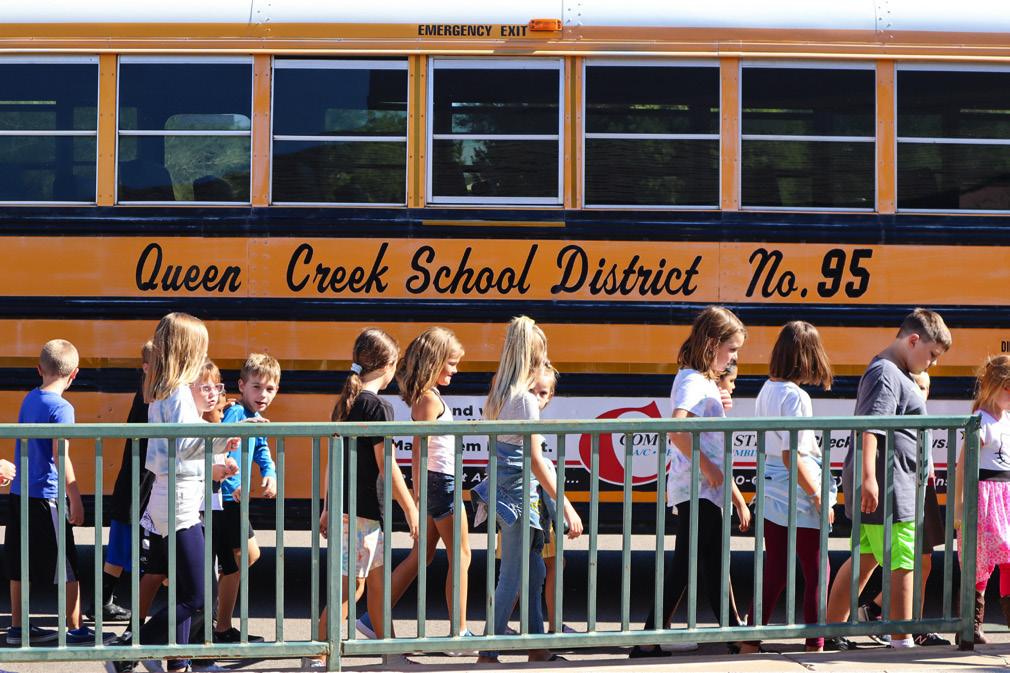


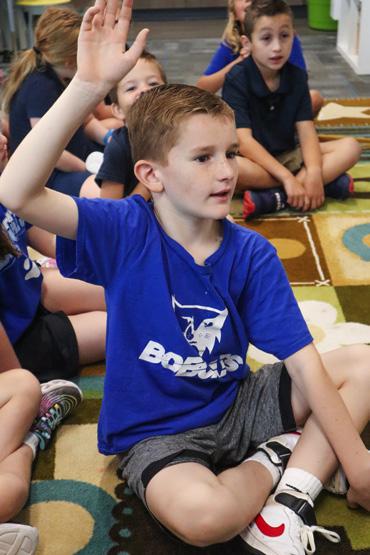



UNITED WE LEARN IN QUEEN CREEK UNIFIED SCHOOL DISTRICT A+ Awards of Excellence Schools
Enrichment Programs Certified Teachers Safe and Secure Campuses SCAN THE CODE OR VISIT QCUSD.ORG/NEIGHBORHOOD-SCHOOL Sept• Oct • Nov FALL 2023 29 RaisingARIZONAKids.com
Award-Winning
What do I do when Traditional School does not work for my child?
KaiPod Learning offers a path to personalizing a child’s education.
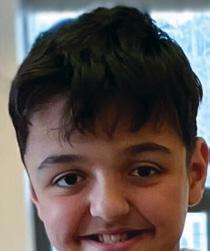
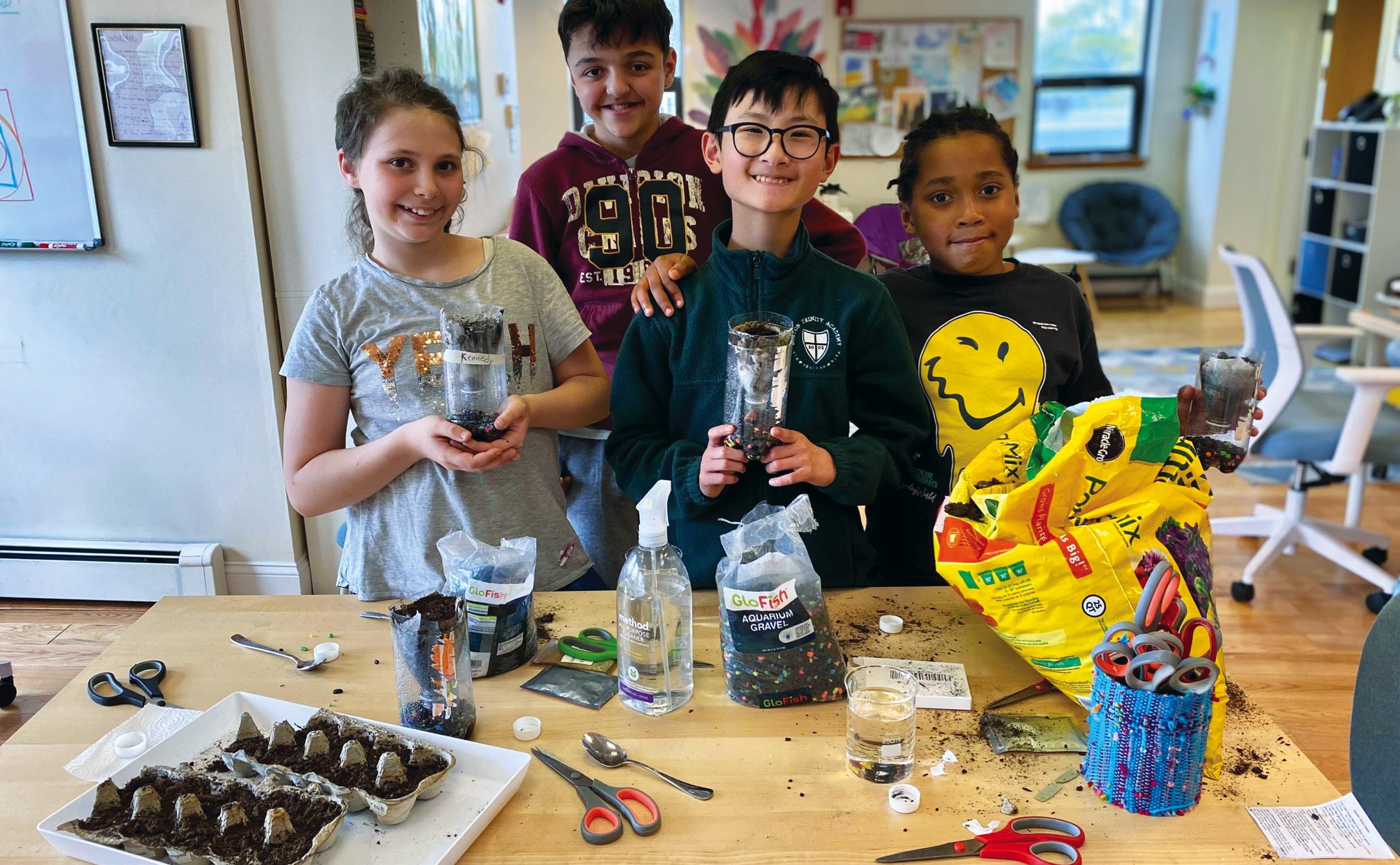

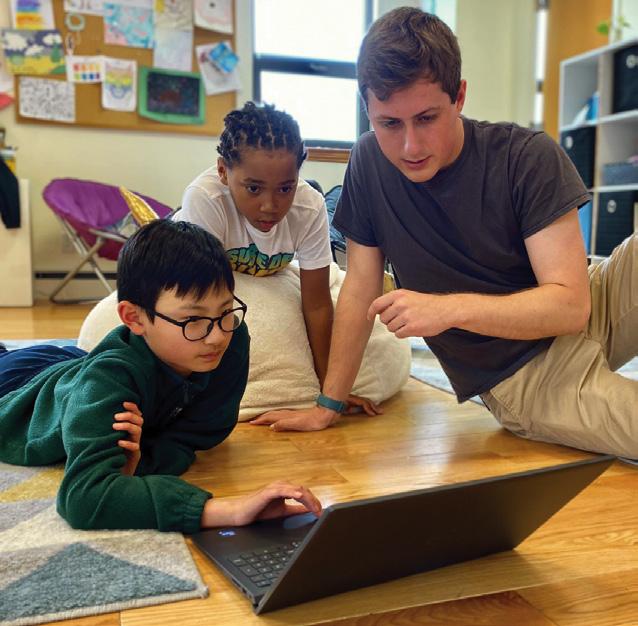
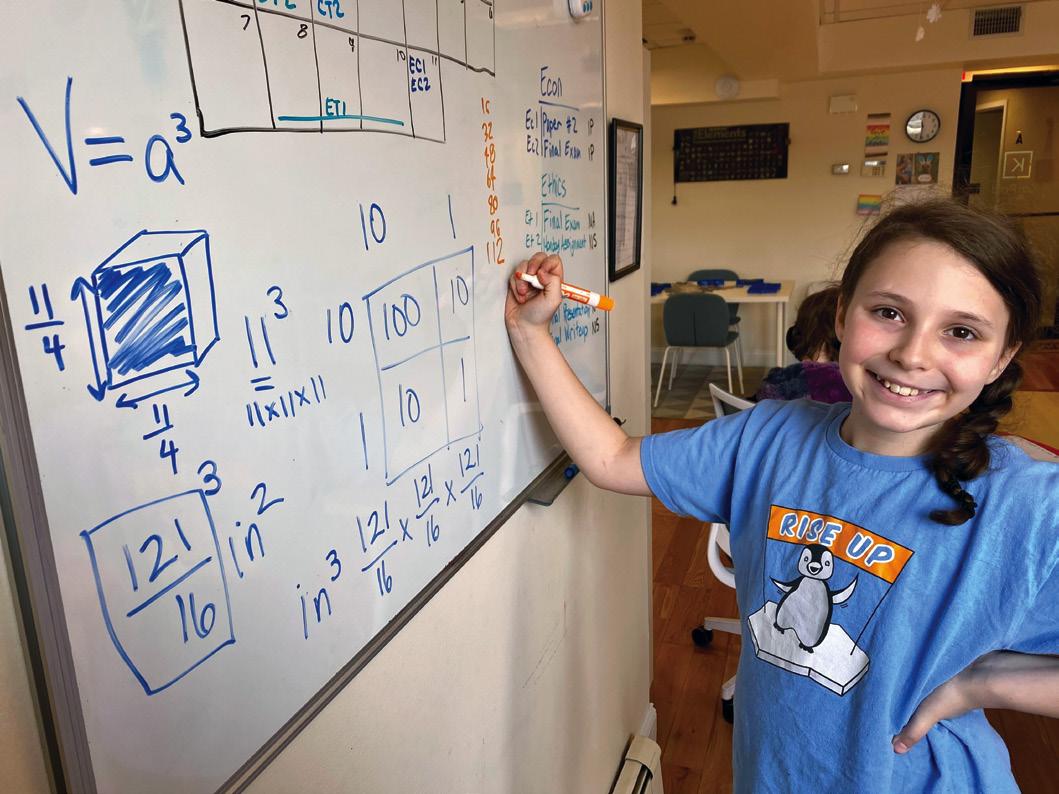
AS WORKING PARENTS, Meghan and her husband were unsure if homeschooling was the right choice, but they knew they needed a change. “We were at a loss, trying multiple approaches for our children, only to see them struggle,” said Meghan.
Ultimately, Meghan’s family smoothly transitioned to KaiPod Learning, and the unique approach to their children’s education has been a game-changer. KaiPods are small group in-person learning centers for 3rd - 12th-graders now available in Arizona. Parents can bring their own curriculum or work with KaiPod experts to find a curriculum (online, hybrid, homeschooled) that best suits their child’s
Education: SPONSORED CONTENT 30 FALL 2023 Sept • Oct • Nov RaisingARIZONAKids.com
needs. Learning Coaches at a KaiPod workspace support academic assignments and enrichment activities. Learning Coaches also build a child’s sense of belonging through cultivating community relationships, and provide parents with frequent updates to ensure each child is learning and thriving. All this is similar to or better than a private school, but for a fraction of the cost.
“At KaiPod, we know how important it is to tailor education to the uniqueness of every child. We also understand that customizing your child’s learning journey can be exciting, intimidating, and overwhelming,” said Amar Kumar, founder of KaiPod. “We built KaiPod to empower more families to customize their kids’ education and be a support system for them on their journey.”

Here are the critical questions KaiPod education experts suggest parents ask themselves when considering the best approach to learning for each child:
ACADEMIC QUESTIONS:
• How does your child learn best? Do they love reading? Are they accelerated learners, or do they struggle to keep up? What is their attention span? From traditional textbooks to project-based online options, there are many curriculum choices for your child.
• What are your child’s hobbies, interests, and passions? Children dive deep and learn without effort and reminders when the curriculum includes their interests.

• What learning environment does your child need? Is your child an independent learner who will naturally work through a class, or do they need an in-person or 1:1 component to be accountable? Each child is different, and there is no shortage of options to support your child.
SOCIAL-EMOTIONAL QUESTIONS:
• How important is socialization for your child’s well-being ? Reflect on the community your child will be a part of and how they can build meaningful relationships and friendships with their peers.
• What role do you want to play in your child’s education? Assess your ability to support their academic inquiries and consider whether you have a network to help them expand their circle of friends.
One in 10 families have already chosen alternative learning environments, and more are joining daily. The challenges of rigid classroom structures, large class sizes, and a one-size-fits-all curriculum can lead to disconnected and disinterested kids and even a decline in academic achievement.
“Well-intentioned conventional schooling is falling short of caring for each child’s academic or social/emotional needs,” comments Kumar. “School should be effective and engaging while building on a child’s passions.”
In Gilbert, Glendale, Scottsdale, and Surprise, children can join a KaiPod for a complimentary Demo Day to try out the daily schedule and meet new friends.
Meghan shares, “Our kids are genuinely excited to head to KaiPod each morning because it provides them with the academic, emotional, and growth opportunities they need. It has become a community where they can truly be themselves and thrive every day.”
Reach out now to kaipodlearning.com/arizona
•
A NEW WAY TO DO SCHOOL
Small Group Learning
1:1 Academic Support
•
•
Keep Your Curriculum
Daily Enrichments
ESA Eligible Limited space is available! kaipodlearning.com/arizona Sept• Oct • Nov FALL 2023 31 RaisingARIZONAKids.com
•
•
MUSICAL INSTRUMENT MUSEUM Offers Music Exploration and Learning for Kids and Families
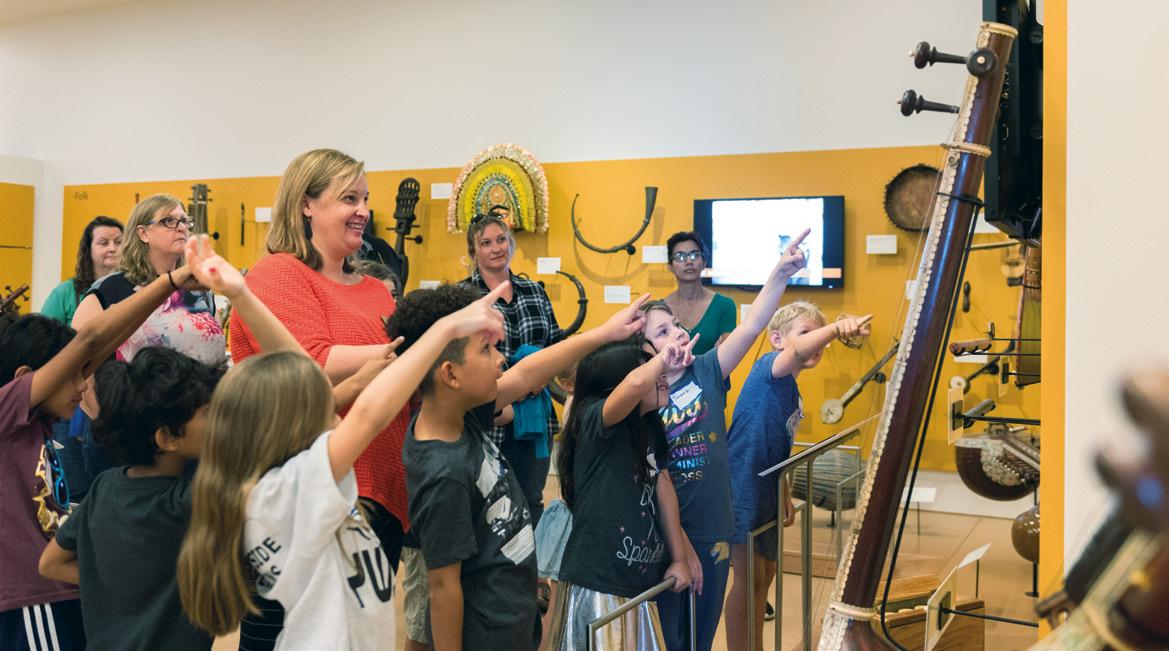 By Monique Seleen
By Monique Seleen
IF YOU HAVEN’T visited the Musical Instrument Museum, it’s time to add it to your list of things to do! Not only can you get up close with around 4,200 instruments from around the world, but through galleries you and your family will be immersed in a rich diversity and history of many world cultures.
Through its many exhibits, special events, and classes, MIM aims to show visitors that music is the language of the soul.
“As guests visit the museum, I hope they come away with a different understanding on how big the world is and how music is a part of our lives all over the world,” said Caitlin Martinac Gutierrez, Museum Educator at MIM.
In an effort to instill an appreciation for all things music at a young age, the Musical Instrument Museum offers a variety of programs designed specifically for kids.
MINI MUSIC MAKERS: Introduce your child (ages 0 to 5) to the world of music through singing, dancing, and playing instruments. In these classes, children and their caretakers will get to explore a new musical culture while focusing on their motor, pre-language, and musical skills through
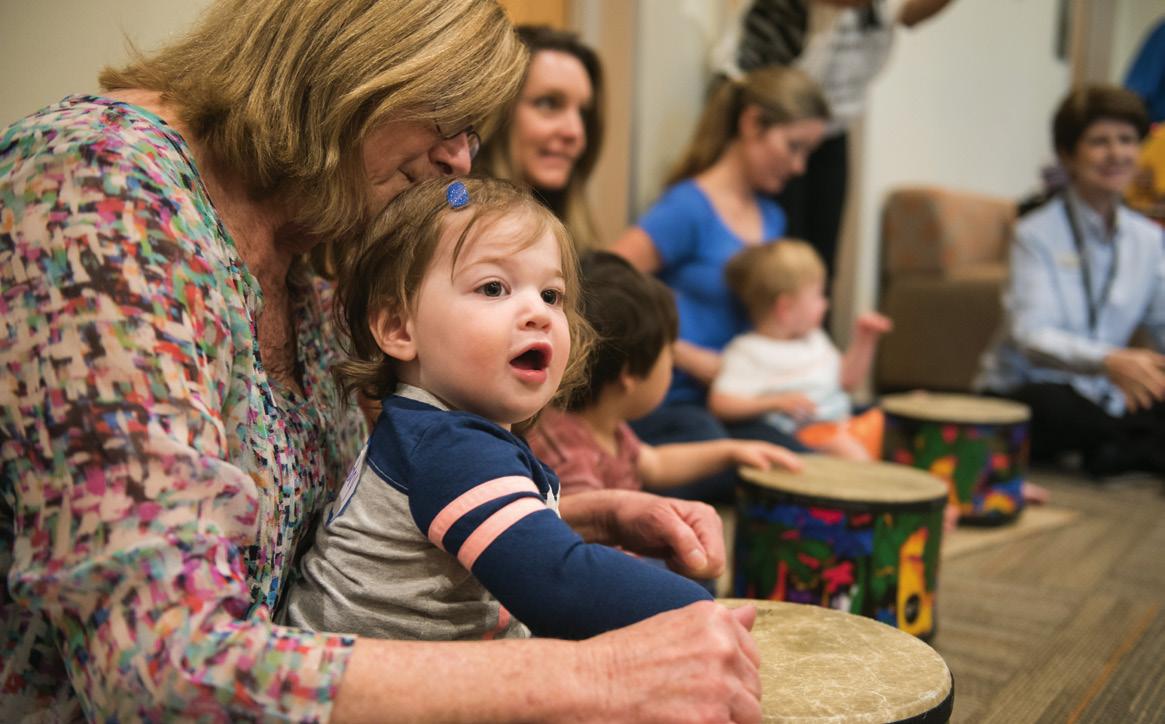
active participation in music making. Each class is structured around developmentally appropriate activities for the children to interact with and create their own music. Classes are $12 each or purchase 4 for $40.
MUSICAL ADVENTURES: In this class, Participants (ages 6 to 10) will discover new cultures by making music, creating musical instruments, and exploring MIM’s exhibits— with their own designated tour guide. Each class focuses on a different continent, giving kids a well-rounded overview of music from around the world and an opportunity to collect MIMkids passport stamps. Classes are $12 each or purchase 3 for $30.
JUNIOR MUSEUM GUIDES: Kids in grades 6 through 12 will not only have the chance to learn about cultures from around the world, participate in music making, and discover the wide world of music, but as Junior Guides they will get training on how to lead tours at the museum. Participants who complete all four classes will have the opportunity to lead group tours for upcoming events. $40 per class. Funding is available for those in need.
All of the kids’ programs at MIM are
designed with World Music Pedagogy in mind. The MIM education team is certified in World Music Pedagogy to navigate and engage classes of all ages in inclusive intercultural understanding through music. They do so through the integration of the five dimensions of World Music Pedagogy which include Attentive Listening, Enactive Listening, Engaged Listening, Creating World Music, and Integrating World Music.
In addition to their educational and hands-on programs for kids, the Musical Instrument Museum is a great place for families to visit together. With interactive galleries, you can come in and play with several instruments as you explore and appreciate the different sounds and pieces.
“We hope that families can get lost in the galleries, take time to really engage and listen, and find the joy in music together,” said Martinac Gutierrez.

For more information on the Musical Instrument Museum visit mim.org

Education: SPONSORED CONTENT
32 FALL 2023 Sept • Oct • Nov RaisingARIZONAKids.com
Left: Junior Museum Guides. Above: Mini Music Makers. Below: Musical Adventures.




THE THE BROTHERS BROTHERS OKEE DOKEE OKEE DOKEE SEP 29 | 6 PM 6 PM 480.350.2822 tempecenterforthearts.com Sept• Oct • Nov FALL 2023 33 RaisingARIZONAKids.com
4 Tips for BALANCING Family Time with After School Activities
By Nikki Kontz, LMSW
THE CAREFREE DAYS of summer are over – which means days packed with school, homework, sports, music lessons and a myriad of other after school activities. How do you balance the benefits of after school activities and clubs for your kids with the importance of having time to connect as a family?
There’s no denying extracurricular activities are important for children and their development. According to the Department of Education, these activities build self-esteem, resilience, teamwork, communication skills, relationships and a sense of belonging, all of which help improve academic achievement and reduce the risk of suicide in older children and teens.
How much is too much?
But too many activities can have an adverse effect on children and on your family life. If you notice one or more of these signs, it may be time to reevaluate which activities are worth keeping and which ones can be cut from your schedule.
• When a child begins complaining about going to certain activities
• If your child displays emotional outbursts or increased irritability
• When a child appears sleep deprived or shows signs of being constantly tired
• If a child is showing signs of being stressed – for instance, if they begin to fall behind in schoolwork or stop wanting to hang out with friends

The importance of family time
Family relationships are also critically important for children’s development. Strong family ties have been associated with lower levels of adolescent depression and delinquency and directly correlate to better academic performance, self-esteem, resilience and ability to control emotions.
Balancing family time with your child’s extracurriculars can be challenging no matter how many activities your child is participating in.
Try these four tips for finding the right balance.
1. Prioritize what matters: Encourage your child to choose the one or two activities that are most important to them and just say no to the rest.
2. Focus on family meals: As often as possible, put away your devices, ask about the best and worst parts of your children’s days and focus on really connecting for the 30 minutes it takes to eat dinner.
3. Talk to your kids about balance: Kids are never too young to learn the importance of balancing activities, school, family time and mental health. Ask your children how they are feeling about the activities they’re participating in, which activities they want to continue and which activities they may be ready to cut.
4. Sneak in quality time: Look for small ways to talk and connect with your children throughout the day. Cooking dinner together, helping each other with chores like dishes or picking up, walking the dog or running errands can all become quality time when you focus on being present and connecting with your child.
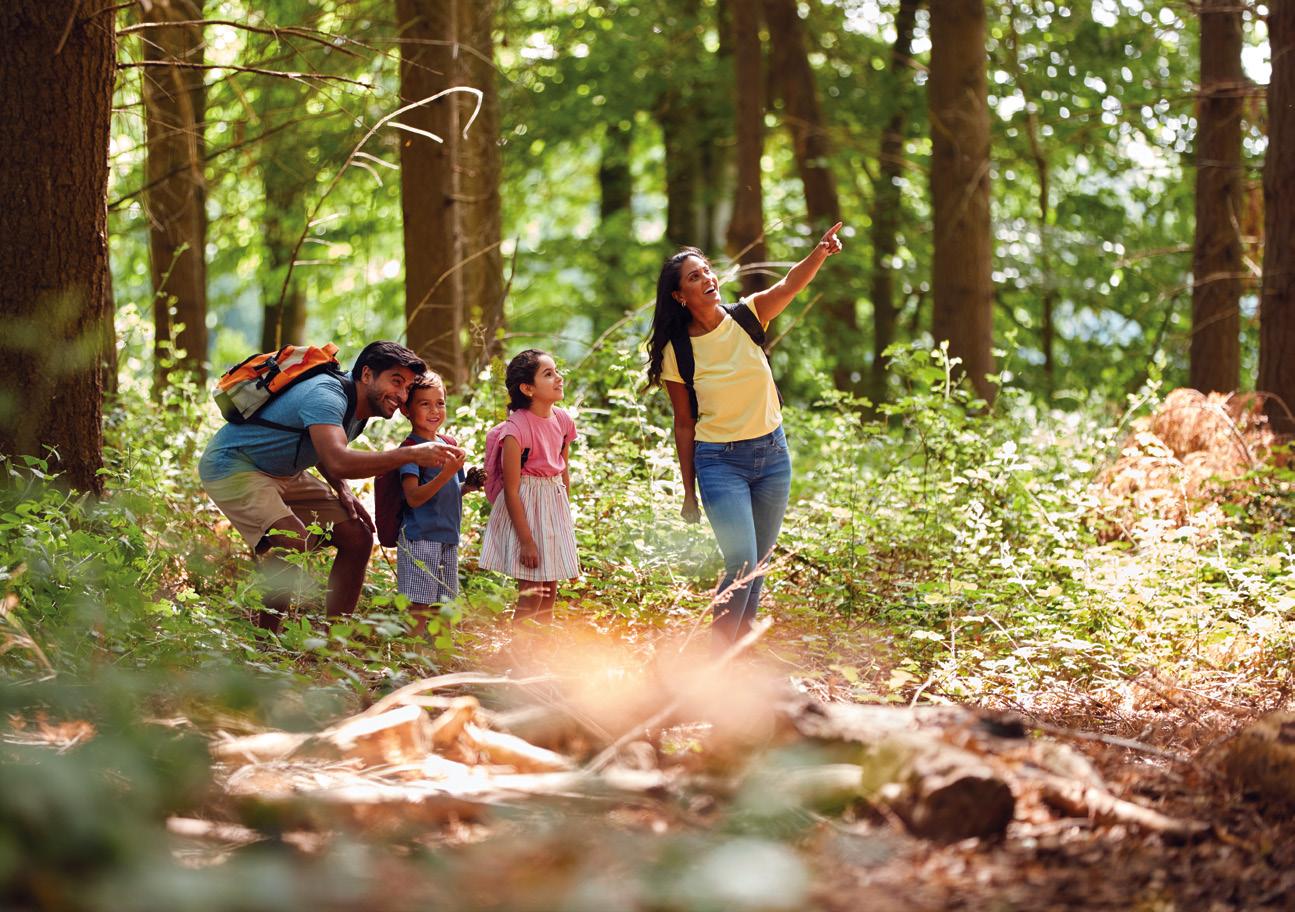
Remember, there’s no one-size-fits-all solution to balancing after-school activities with family time. Make adjustments as you go until you find the right cadence of school, activities and family time for your child and family.
If you know a tween or teen who is having thoughts of suicide or who is struggling with their mental health, encourage them to call Teen Lifeline 24 hours a day, 7 days a week and 3 6 5 days a year at 602-248TEEN (8 33 6) or 800-248-TEEN. Texting is available between noon and 9 p.m. on weekdays and from 3 p.m. to 9 p.m. on weekends at 602-248-8 33 6.
Nikki Kontz, LMSW, is the clinical director at Teen Lifeline, a Phoenix-based, nonprofit dedicated to preventing teen suicide through increasing connection and resilience among Arizona’s teens.
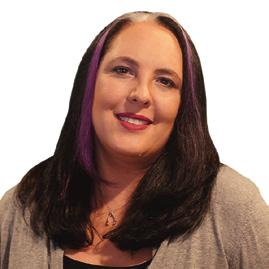
Education: FAMILY TIME
34 FALL 2023 Sept • Oct • Nov RaisingARIZONAKids.com
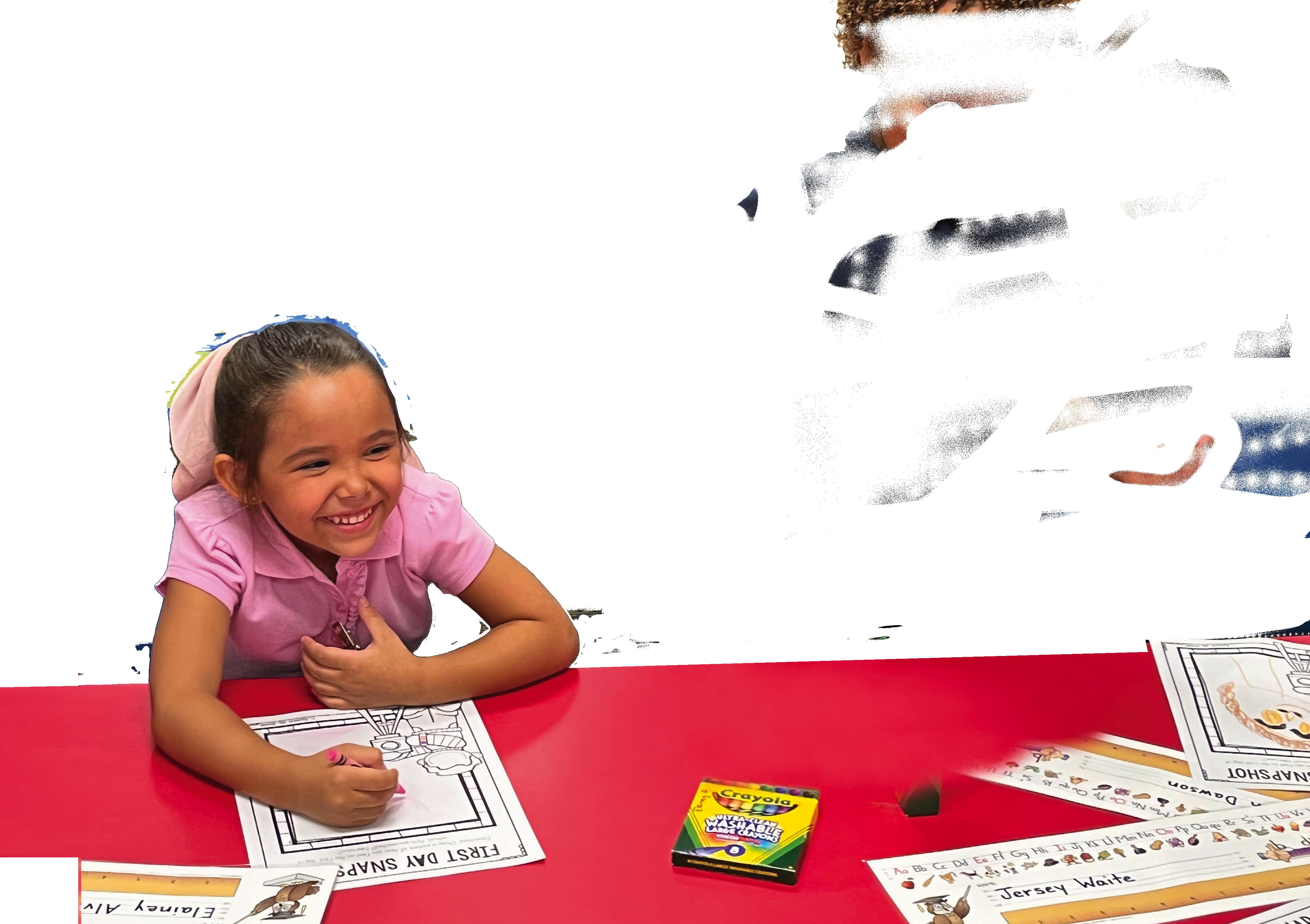
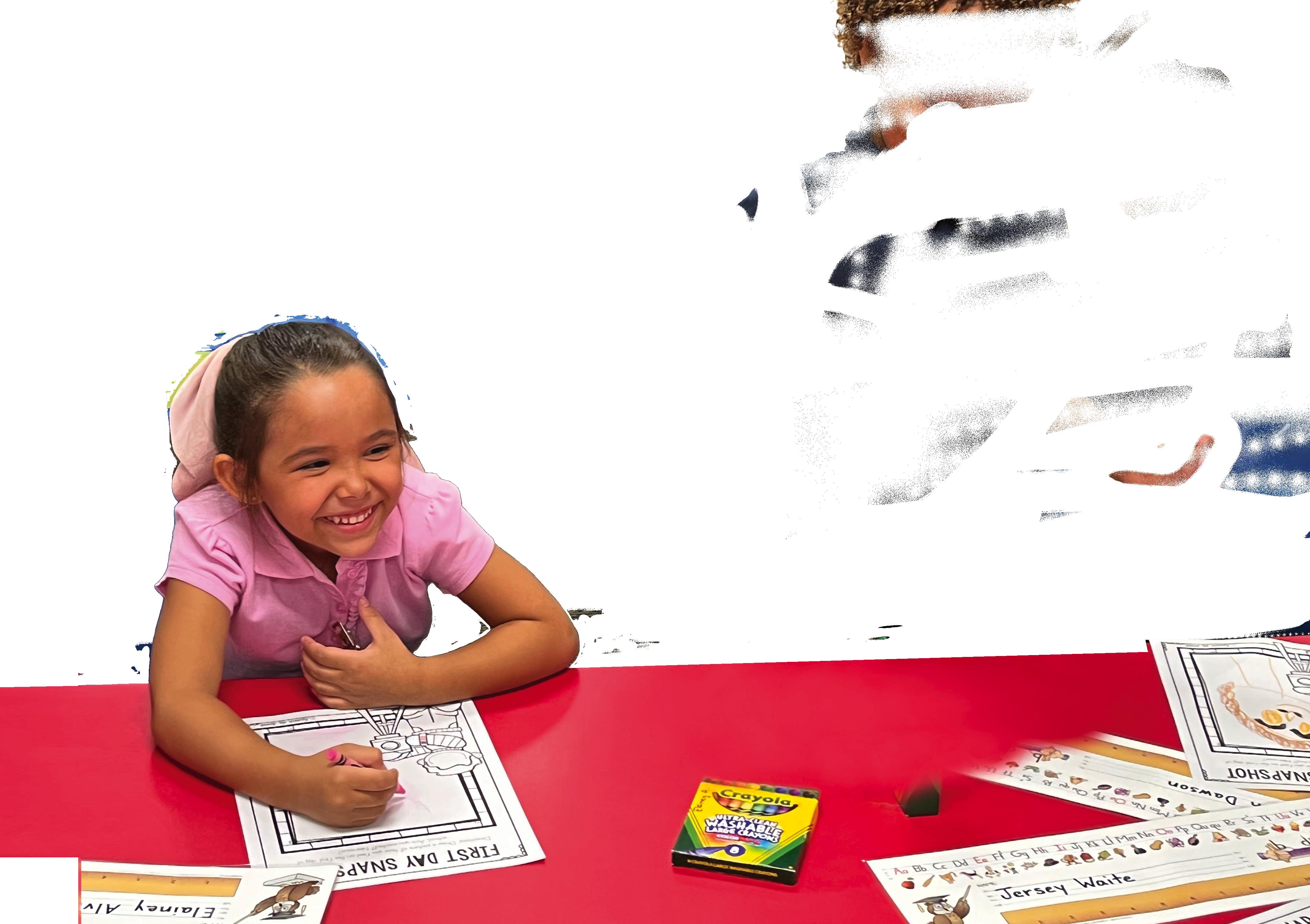




Online public school designed so students can thrive. At Arizona Virtual Academy, our teachers are dedicated to inspiring and empowering your child through an education experience tailored to meet their specific needs. Learn more at k12.com/AZVA
Sept• Oct • Nov FALL 2023 35 RaisingARIZONAKids.com
MONKEY BUSINESS IMAGES
Close the Distance What to do if you’re unhappy with your child’s teacher
By Curt Bobo
YOU WANT YOUR KIDS to feel safe, respected, heard, challenged, and understood while they’re at school. When you find that you or your child is unhappy with their teacher, you have to be proactive. Approaching the situation right away and with a solution-minded approach will help get the desired result.
One of the best things you can do to help close the distance between you and your child’s teacher and create positive change at your kid’s school is to call for an in-person meeting. This gets rid of the possible back and forth with emails and it allows you to form a relationship with the teacher and administrators.
There are several benefits to having an in-person meeting. This includes:
• Getting to be at the school and seeing how things are run.
• Communicating face to face.
• Getting a response in a timely fashion. Sometime emails can get misconstrued or go unanswered.
• Having follow through be prioritized simply because you cared enough to come in person.
• It not being the teacher’s word versus yours. Ask that a Team Lead and/or Administrator be in attendance this way they will hear your concern and hopefully act on it immediately.
• Putting faces to names helps close the distance and lets the school know that you want things to improve immediately.
To ensure the meeting runs smoothly, here are some additional things you can do:

• Copy Administration on any initial emails. This allows for everyone on the team to be on the same page and things have less of a chance of getting misconstrued at this point.
• Write down your questions/concerns. This will help you stay focused on what matters and hopefully alert the school to exactly what you want improved.
• Have your child advocate for themself. Depending on the nature of the concern, having your child at any meeting can help them advocate for themself and see firsthand the benefit of

having in-person interactions. Teaching your child to advocate for themself also increases their independence.
Building relationships should be paramount at any school. When the connection isn’t there, the likelihood of students addressing a concern/issue decreases dramatically. It just doesn’t feel good when your kid’s teacher doesn’t know your kid’s strengths, hobbies, goals, etc.
If things don’t improve immediately and you don’t feel your concern is being addressed, there are lots of different educational options and opportunities to pursue. There’s something out there for everyone.
Curt Bobo has worked in social work for the past 32 years and is the Director of Student Services at Gateway Academy. He has lived in Phoenix since 1997, is married to his wife Orla, and has one incredible son Donovan, and two rescued pitbulls – Hippo and Sophie. To learn more about Gateway Academy visit gatewayacademy.us
Education: RELATIONSHIPS
ISTOCK 36 FALL 2023 Sept • Oct • Nov RaisingARIZONAKids.com
Making GOOD FRIENDS at School
By Nikki Kontz
PARENTS KNOW HOW important it is for their children to develop trusted and healthy friendships in the ever-changing world of growing up. For many, peer pressure causes stress and can provoke unsafe behaviors.
But peer groups can also be safe havens for connection, positive behaviors and maturing responsibly. So, how do you teach your children about friendship – what makes a good friend and how can you be one?

The keys to developing healthy friendships outside the home begin inside your home.
School-aged Friendships
Did your parents ever tell you to “just work it out” when you had a conflict with a sibling or friend? That can work – sometimes – but it often helps to provide support or demonstrate role-modeling behaviors about healthy friendships.
Showing empathy, curiosity about others, cooperation, forgiveness and how to apologize will be attributes that your child can observe and mirror in school and on the playground.
Friendships provide the opportunity to learn about talking and listening. Children need to know that listening when a friend needs to share their emotions or feelings is an important part of a healthy relationship. And kids need to know that their true friends will listen to them, too.
Every relationship has its ups and downs. Teaching children to express themselves and resolve disagreements without “winning or losing a fight” is a life skill that brings stability and respect to all personal relationships, whether at home, at school or in their other activities.
Adolescent Friendships
The potentially negative aspect of peer pressure is a genuine concern for most parents. But peer influence can also be protective when healthy friendships are involved.
Teens develop social skills by hanging out with their friends. Meeting new people, fitting
into a group, getting teased, teasing back and sharing funny stories are all important parts of friendship. It’s a good idea to talk with your teenager to see if these behaviors are common within their peer groups.
It’s also important to talk with your teens about when to keep a friend’s confidence and when to tell an adult. No one wants to be a tattletale or get their friends in trouble. But when teens learn about or observe potentially dangerous thoughts or behaviors from a peer – such as thoughts of suicide, plans for school violence, self-harm or an alarming use of drugs or alcohol – it’s critical for them to tell an adult.
Sometimes interests and priorities change as children mature into adolescents, or friends change schools or move away. If your teen is facing a friendship void, encourage exploring extracurricular activities and joining sports teams, clubs, or church groups where they can make new and more like-minded friends.
Providing Support
Remember – children at different ages require different levels of support. You can help by finding out if your child is feeling vulnerable, left out or lonely, and by providing support when they need it.
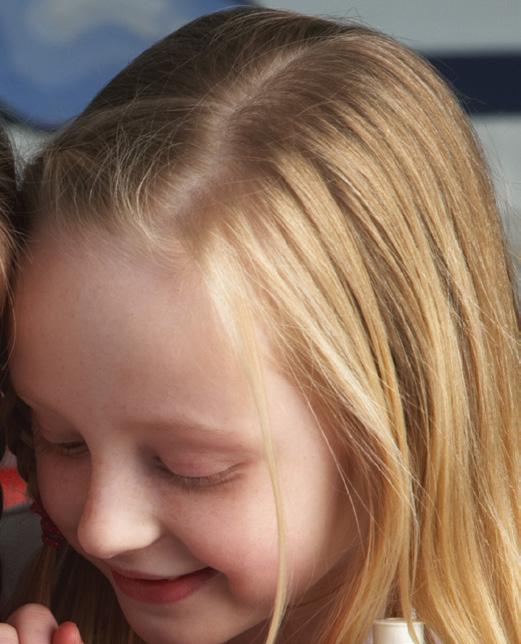
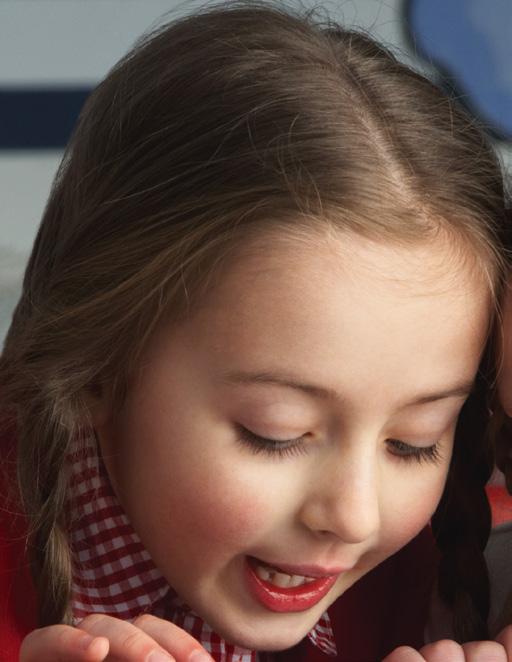
Tweens and teens of all ages who are struggling with anxiety, depression, thoughts of suicide or who just need to talk about their problems with a teen peer counselor who understands what they are going through are encouraged to call or text the 24 hours a day, 7 days a week and 365 days a year Teen Lifeline at 602-248-TEEN (8336) for free and confidential help. Trained teenage peer counselors answer phone lines between 3 p.m. and 9 p.m. every day of the year.
At all other times, calls are answered by specially trained crisis intervention specialists.
OMG IMAGES
Nikki Kontz is the clinical director of Teen Lifeline, a Phoenix-based, nonprofit dedicated to preventing teen suicide in Arizona. Contact her at 602-248-8337.
Sept• Oct • Nov FALL 2023 37 RaisingARIZONAKids.com
What To Do If Your Child Is STRUGGLING In School
 By Monique Seleen
By Monique Seleen
WITH THE SCHOOL YEAR underway, it’s never too early to start checking in with your child to see how they’re doing academically.
While it can be challenging to know what to do and how to intervene if you notice your child is struggling, Tucson tutor, Audrey Sher, owner of Mrs. Audrey’s Academic Achievement, offers some helpful tips for how to handle any academic hardships.
Audrey has been tutoring students in pre-K through high school for over 20 years offering in-person and virtual tutoring sessions for those struggling with course work, ADD/ADHD, test anxiety, and other learning challenges.
Questions to ask if you notice your child is struggling in school
Is it effort or ability? One of the first things Audrey says to look for is to see if a child is struggling due to effort or ability. If the child is old enough, she says to ask them to self-rate their effort on a 0-10 scale. Parents can also weigh in from their perspective.
Did it happen suddenly or has it been an on-going problem? Assess whether your child’s struggles in school have been recent or a longterm issue. “If it’s sudden, maybe something is going on emotionally,” said Audrey. “If it’s on-going, it’s important to not be judgmental. Every child can learn, we just need to meet them where they’re at and take it from there.”
Is it across the board or in a specific area?
Notice if your child might be struggling with math but excelling in reading, or vice versa. “Identifying the reason is the most important thing,” said Audrey. “We should be building on their strengths rather than focusing on weaknesses. I always try to figure out what they’re good at and see how we can use that to help.”
How to get your child the help they need
Utilize school resources: Your child’s school is full of educational professionals who can help. “Use every resource that is available to you at the school, those are usually free,” said Audrey. This may include after-school help, seeking guidance from a school psychologist, and speaking with your child’s teacher.
Find a good tutor: Audrey recommends hiring a private tutor versus sending your child to a tutoring center. “Some tutoring centers have specific programs that aren’t necessarily individualized,” she said. “Private tutors can figure out what is going on and can see when a student is exhausted, overwhelmed, or needs a break.”
Establish a study area at home: Find a good place at home where your child can work on school work—preferably not on the bed with headphones in. Instead, you want the space to be quiet, clean, distraction-free, and equipped with all the tools and supplies your child needs to be successful such as pens, paper, a laptop etc.
Dedicate time for studying: Even if your child doesn’t have any homework, Audrey says it’s a good idea to have a set schedule for when your child can focus on their academics. “Have a studying time. They can use this time to look over notes, review, or read. But have a schedule and stick to it.”
How to encourage your child to have a love for learning
Be a role model: “If you want your child to read for 15 minutes every day… ask yourself, are you reading?” said Audrey. “What you do is more important than what you say. Kids see your behavior.”
Tips for Finding a GOOD TUTOR
• Look for someone who tutors as a career not a side job
• Assess what the tutor’s experience is and what their skills are
• Ask how they tailor lessons individually for students
• Find someone who can rebuild your child’s academic confidence
Make learning fun: Audrey suggests keeping learning fun and exciting for kids by taking them to the library, museums, and even turning everyday errands such as grocery shopping or driving around into learning opportunities. “If you need 7 apples, count them out and tell your child ‘We have 4 so far, how many more do we need?’ As you’re driving or taking a walk, encourage reading by saying things like ‘What does that sign say? Oh it says stop.’”
Read, read, read: “It’s never too early to start reading to your child—starting when you’re pregnant,” says Audrey. “Take them to the library or bookstore and let them pick the books (guide them to age appropriate material). Read before bed and before naps. There’s no bad time to read.”
“Early intervention is key,” says Audrey. “Don’t wait. If you think there’s a problem, don’t think it’s going to resolve on its own.”
With help from the school, a tutor, and your own positive example, your child will be well on their way to academic success.
For more information on Mrs. Audrey’s Academic Achievement services visit mrsaudreytutors.com
Education: STUDY HABITS
38 FALL 2023 Sept • Oct • Nov RaisingARIZONAKids.com

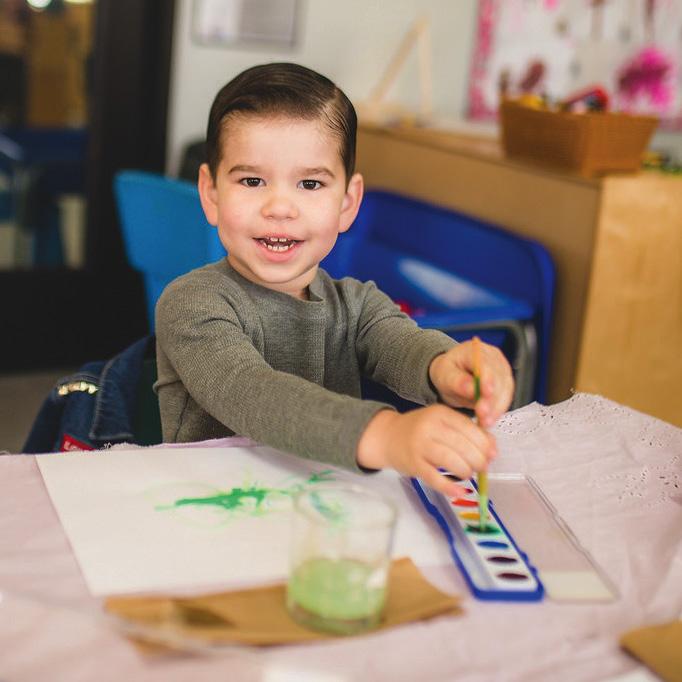


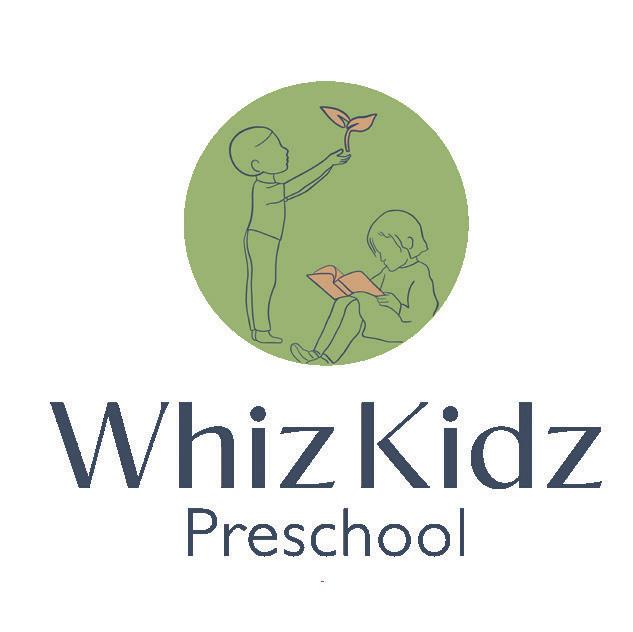


ZHONGHUI BAO Hands-On Learning Comprehensive Curriculum Daily Enrichment Programs Locations in Phoenix, Scottsdale, Mesa & Ahwatukee Scan the code to find a location near you » whizkidzpreschool.com Reaching new milestones through academics, play, experiences, and the ar ts. Midtown Phoenix Location ComingSeptember 2023! Sept• Oct • Nov FALL 2023 39 RaisingARIZONAKids.com
PARENTS AS PILLARS OF EDUCATION Reinforcing Children’s Learning at Home
By Ben Smith
EDUCATION IS NOT limited to the confines of a classroom; it begins at home and extends far beyond the walls of a traditional school environment. As the first and constant educators, you play a pivotal role in your child’s lifelong learning journey. You can also significantly shape your child’s attitudes toward education, personal growth, and learning.
Why You Should Play an Active Role in Your Child’s Learning
As a parent, you are instrumental in molding your child’s intellectual development, personal beliefs, self-esteem, and socio-emotional skills.
Studies have found a positive correlation between parental involvement in their child’s education and their academic success, including higher grades and test scores, better attendance, and improved behavior at home and school.

How to Reinforce Learning at Home
Given the importance of parents’ role, how can you effectively support and enhance your child’s learning at home? Here are some ways:
Create a Conducive Learning Environment. Establishing a quiet, comfortable, and well-lit study area in the home is crucial to bolster your child’s learning experience. This dedicated space, equipped with necessary learning resources such as books, stationery, and perhaps a computer, can create a clear boundary between play and study areas.
Encourage Reading Habits. Instilling a love for reading in children from an early age is a crucial responsibility that can have far-reaching
benefits for your child’s education. Reading not only enhances vocabulary and comprehension skills, but it also broadens a child’s perspective, opening a world of new ideas, cultures, and experiences that can stimulate their imagination and intellectual curiosity.
Apply Real-Life Context to Learning. You can make abstract subjects more tangible and relatable by providing practical examples of mathematical concepts while grocery shopping, discussing scientific phenomena observed in nature, or sharing historical anecdotes related to current events. By applying academic concepts to real-world situations, you can transform learning from a monotonous chore into an engaging and meaningful exploration.
Use Digital Learning Resources. In the digital age, there are numerous educational resources at your fingertips. You can leverage online tutorials, educational apps such as Gnosis IQ, and virtual libraries to provide additional instructional material, practice exercises, or in-depth study resources that align with your child’s school curriculum.
Facilitate Open Communication. Having regular discussions about school activities and the learning process can play a significant role in helping your child feel supported, understood, and motivated in
their academic pursuits. These conversations, which could range from casual chats about their school day to more in-depth discussions about specific subjects, provide an avenue for you to show interest and involvement in your child’s education.
Encourage and Support Hobbies. Letting your child engage in a hobby that they are passionate about can facilitate the development of problem-solving skills, innovative thinking, and resilience. It’s important to view your child’s hobbies not as distractions from academic work, but as complementary activities that can foster a well-rounded, confident, and intellectually curious learner.
The active involvement in your child’s learning journey is an invaluable asset that goes a long way in shaping their academic trajectory. By taking a hands-on approach to your child’s education, you are playing a crucial role that extends beyond the boundaries of traditional classrooms.
Ben Smith is the CEO and creator of Gnosis IQ, an artificial intelligence software that predicts students’ future performance and tracks students’ emotional status. For more information on Gnosis IQ, visit gnosis-iq.com

Education: SUPPORT
40 FALL 2023 Sept • Oct • Nov RaisingARIZONAKids.com



Discover the Blessings of Small Class Sizes in a Loving Christian Environment! Serving Grades K-5 for ‘23-24 at 2 Valley Locations located in Gilbert and Phoenix. GreatHeartsChristos.org | 602-819-4796
Finding the Balance Between ACADEMICS and EXTRACURRICULARS
By Mia Vega
FOR MANY FAMILIES, considering school options and your child’s particular interests – the late-night practices and traveling to-and-from games and performances – can create a fine line between supporting their interests and ensuring their academic performance remains high.
With so many school choices, what we’ve observed at Legacy Traditional Schools is that parents want their children to be taught using a well-rounded curriculum that emphasizes all areas of academic study– including the arts, physical education, and extensive athletics– as well as extracurricular activities.
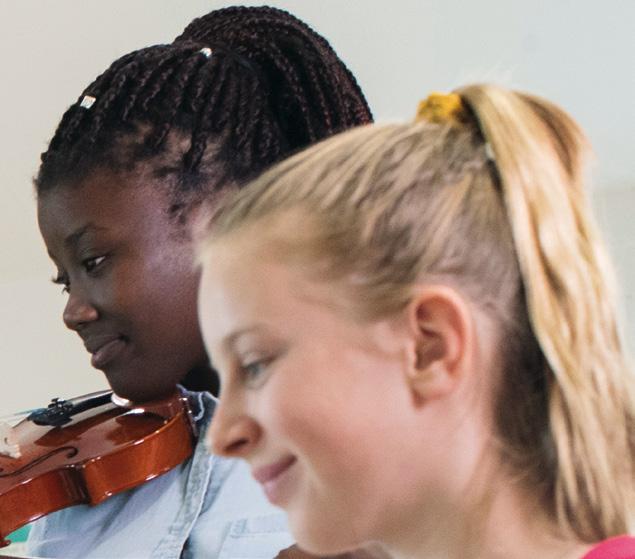
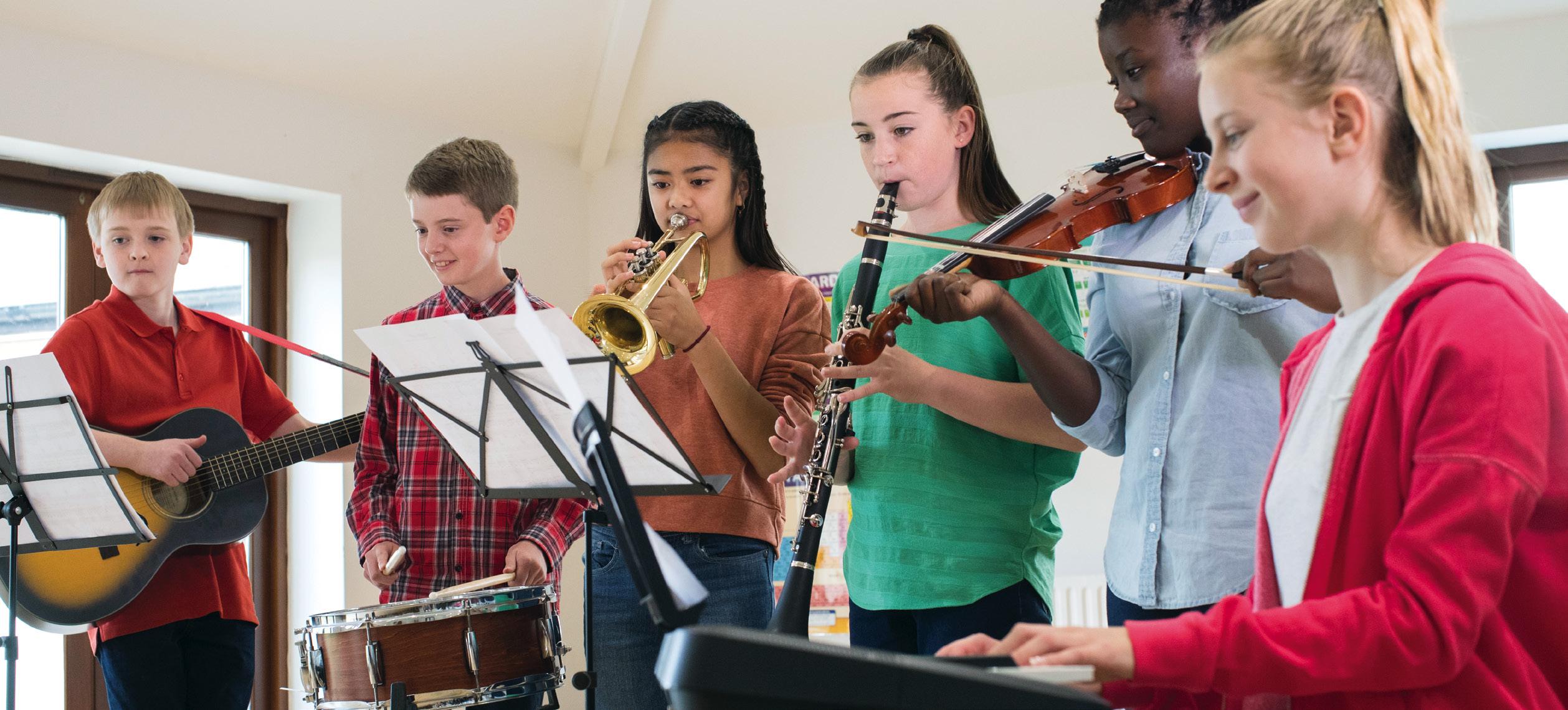
So, you may ask, what do other parents –who’ve grappled with this decision – have to say when it comes to the delicate balancing act between extracurriculars and academic focus? Read on to see their first-hand suggestions on juggling and balancing their child’s school, sports and other activities.
Academics should always be the priority. Become a proficient time manager and remember to remind and focus on “what’s
important right now” when it seems the world and your child’s activities are on tilt. What things can be rescheduled or entirely shed that will take the pressure off?
Volunteer to support. Any youth coach or teacher will tell you that they can’t do it alone! Offer to lend a hand at your child’s next practice or game with setting up drills, cones, or even refilling water. Don’t know the X’s and O’s very well? Don’t worry, posting team announcements and photos on the school website or Facebook group is a great way to keep you, and all of the parents knowledgeable and engaged.
Stay positive. Help your child to be their best by setting realistic expectations and vocally reinforcing the positive steps they are making toward their goal. Remember, confidence translates directly from the gridiron to the grade book.
Instill a strong sense of character. At Legacy Traditional Schools, we celebrate
demonstrations of passion and hard work. We know that parents want their children to be community-minded and to strive to make a difference in the world—that’s our goal, too.
Through sports, volunteerism and involvement in the school community, schools are the hub for children to learn responsibility, loyalty, and citizenship - whether on the theater stage, the playing field, or the classroom.
A quality education is about a complete experience, and when comparing schools, be sure to consider all of the opportunities available on-and-off campus to find the best school fit for your child’s success.
Mia Vega is the Superintendent of Legacy Traditional Schools in Arizona. Superintendent Vega is a proud Legacy parent and grandparent, with her daughter having been a Legacy alumna and her granddaughter currently enrolled at Legacy in Maricopa.
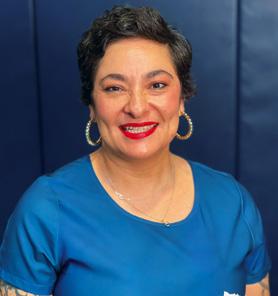
Education: BALANCE
DAISY-DAISY 42 FALL 2023 Sept • Oct • Nov RaisingARIZONAKids.com
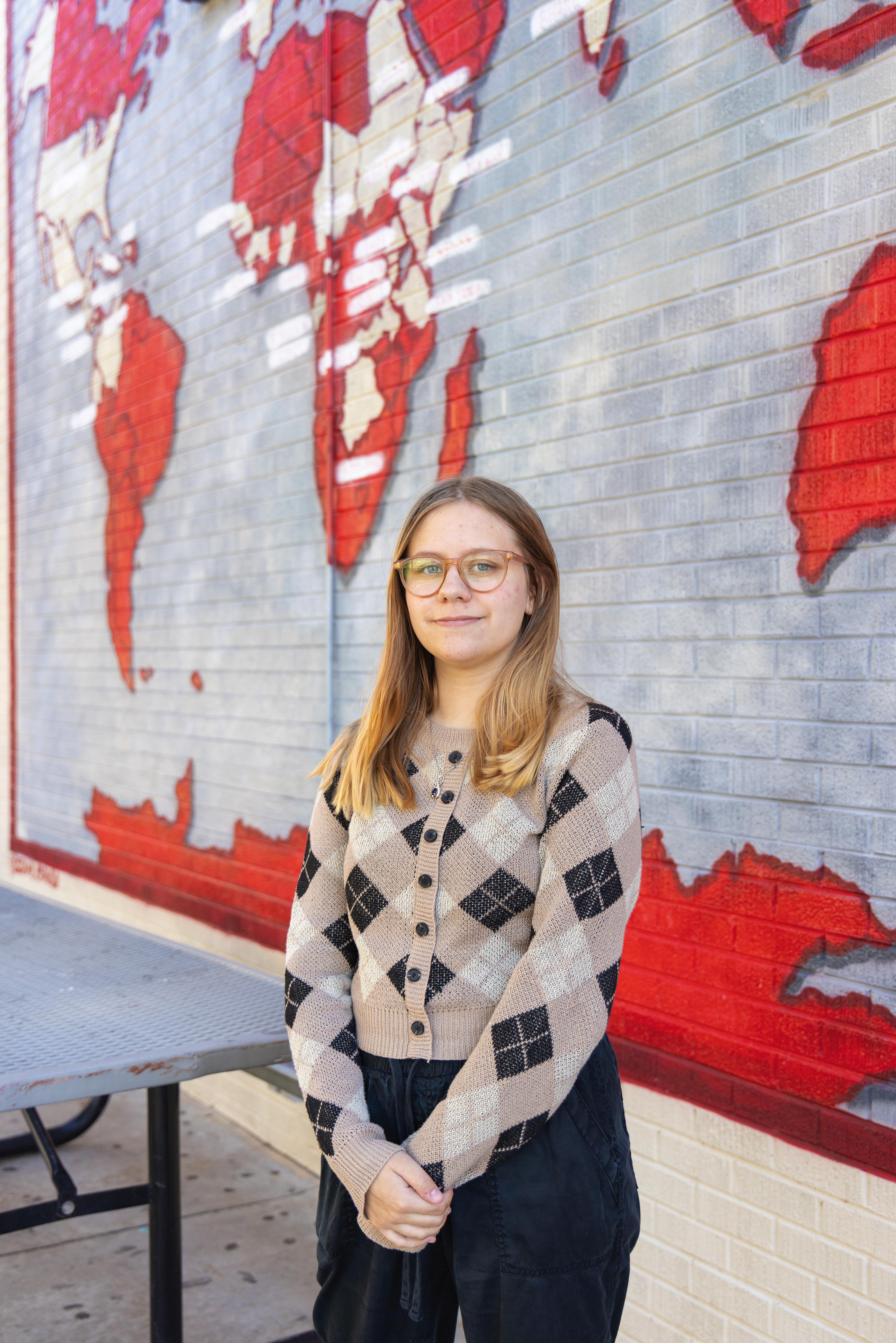

Teach. Lead. Care. Educate FOR STUDENTS WHO WANT TO GIVE BACK TO THEIR COMMUNITY NOW ACCEPTING NEW STUDENTS More info: 602.764.1050 Enroll Today! PXU.org/ PhoenixEducatorPreparatory Teach. Lead. Care. Educate Choose from one of five programs of study & start on your path to becoming a future educator. { Teaching Middle, or High School Counseling Teaching Elementary Social Work Psychology Learn More Enroll Phoenix Educator Preparatory is the high school where caring matters, students are in charge, and you can earn high school & college credit simultaneously.
SLEEP TIPS for School-Aged Children
By Monique Seleen;
WITH SCHOOL BACK in session, it might be time to take a good look at your child’s sleep schedule and bed time routine.
Not only can sleep affect a child’s overall mood and behavior, but it can significantly impact their success in school, too.
Tracy Spackman—Phoenix mom of five, certified Gentle Sleep Coach, and owner of Get Quiet Nights—has some tips on how to set your school-aged child up for a good night of rest and a great day at school.

Recommended Daily Sleep for Kids
“According to SleepFoundation.org the amount of sleep needed really varies by age,” said Spackman. “This is a good chart to get a starting place when trying to figure this out for your child.”
• 4 – 12 months: 12 – 16 hours (including naps)
• 1 – 2 years: 11 – 14 hours (including naps)
• 3 – 5 years: 10 – 13 hours (including naps)
• 6 – 12 years: 9 – 12 hours
• 13 – 18 years: 8 – 10 hours
• 18+ years: 7 or more hours
Bedtime Ranges
While bedtime can vary depending on what time the child needs to wake up and be at school, generally speaking, Spackman recommends the following bedtime guidelines:
• Elementary Age: 7 – 8 p.m. bedtime; needs 9-12 hours of sleep
• Middle School Age: 9 – 10 p.m. bedtime; needs 8-10 hours of sleep
• High School: 10 – 11 p.m. bedtime; needs 8-10 hours of sleep
Tips for Setting Up a Successful School-Night Bedtime Routine (for younger children)
• Have a conversion with your child about all the elements that go into preparing for bedtime. Brainstorm, make a plan, and set up the expectation.
• Start the routine early enough so that it doesn’t feel rushed.
• Do any necessary cleaning up (bath, hair, teeth).
• Take your child to bed, versus sending them. This is valuable time together.
• Read to your child a bedtime chapter or bedtime story which can have many benefits educationally and emotionally.
Limit Blue Light Exposure and Screens
“The blue in the light spectrum inhibits the production of melatonin in our bodies,” said Spackman. “We need melatonin to sleep so the blue light in screens can make falling asleep harder for many people.” Here are some ways Spackman says you can try to enforce screen rest and help a child get ready to fall asleep:
• Limit the last hour of the day before bedtime to go without screens.
• Keep screens out of bedrooms to reduce night time exposure to blue light.
• Swap the evening tech time for parent/child time. This will increase family attachment, improve relationships, and remove excess blue light.
Create an Ideal Sleep Environment
Ensuring your child’s room is set up as an optimal sleep
Education: SLEEP
44 FALL 2023 Sept • Oct • Nov RaisingARIZONAKids.com
Expert advice from Tracy Spackman
TETIANA SOARES
environment is a big key to helping them fall asleep. Here are some things Spackman suggests:
• Use a low pitch, constant white noise sound (or pink noise or brown noise) or fan.
• Cover up any power indicator lights with some thick tape or light blocking stickers to create a dark room.
• Use a night light in red or yellow (to remove the blue light) that is 4 watts or less for a child who might be afraid of the dark.
What To Do If Bedtime Interferes With Scheduled Activities
“One of the problems for families and rest is scheduling,” said Spackman. “Older siblings may have later activities that make it hard for parents to get younger children in bed in time to meet their sleep needs.” Here’s what you can do to help combat this:
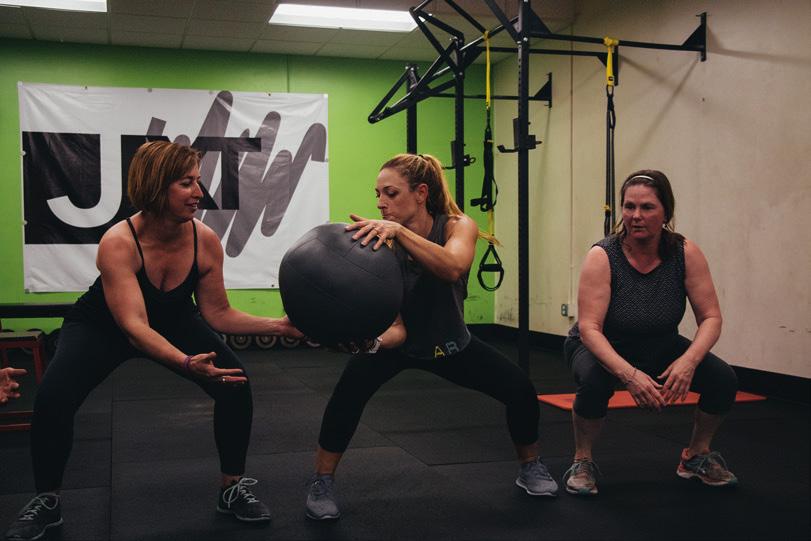
• Decide what’s more valuable to your family. Making a decision to avoid scheduled activities past a specific time (dictated by the needs of the younger siblings) may seem like you are making your older child miss out. But family oriented activities at home may be just as valuable if not more valuable to you in the long run when everyone is getting good sleep.
• Make friends with the parents of the other kids in the activities. See if you can make arrangements to carpool with another family so you can reduce the number of nights in a month the younger siblings need to be kept up late.
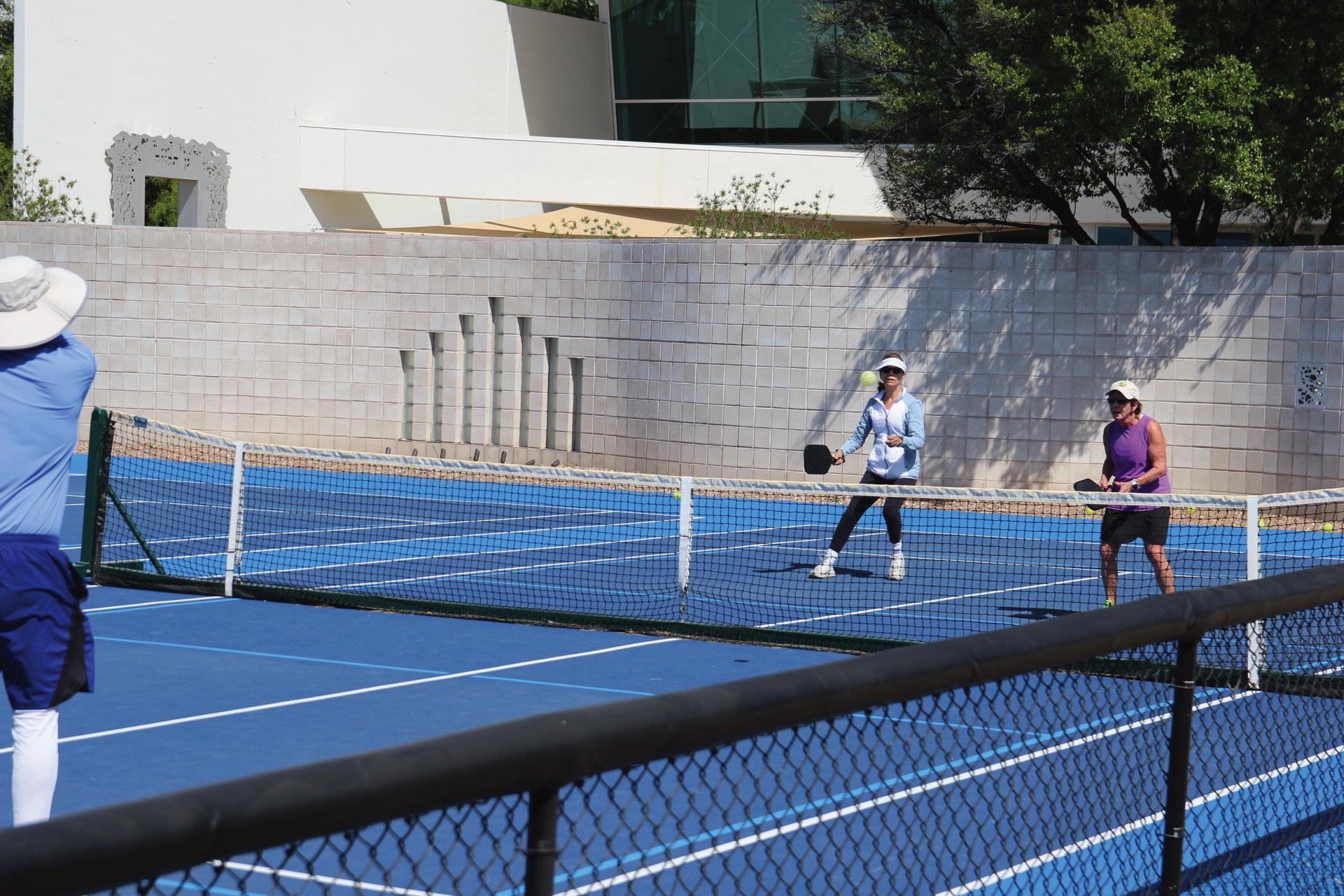
• Remember that kids can be resilient. It doesn’t need to be perfect all the time. Everyone has nights where they don’t get enough sleep. Just do the best you can and remember that your kids can be resilient when things don’t always go exactly according to schedule.
Tips for a Child Who Struggles to Wake Up Early

• Evaluate their bedtime. If you have a child who is cranky and doesn’t do well getting up in the morning, Spackman says it’s first a good idea to make sure they’re going to bed at the right time. “Do you have a happy and rested child until bedtime? Or do you have a frustrated and unhappy child in the afternoon or evening? Do you see a big burst of energy in the evening? Sometimes the overtired hormones of Cortisol and adrenaline look energetically silly (I call that a cortisol giggler) or it could look angry and frustrated.”

• Plan something for your child to look forward to in the morning. If bedtime isn’t the issue, Spackman advises to plan something in the morning your child can look forward to and talk about it the night before. This could be a delicious breakfast, a game that you play before school, or special time with you.
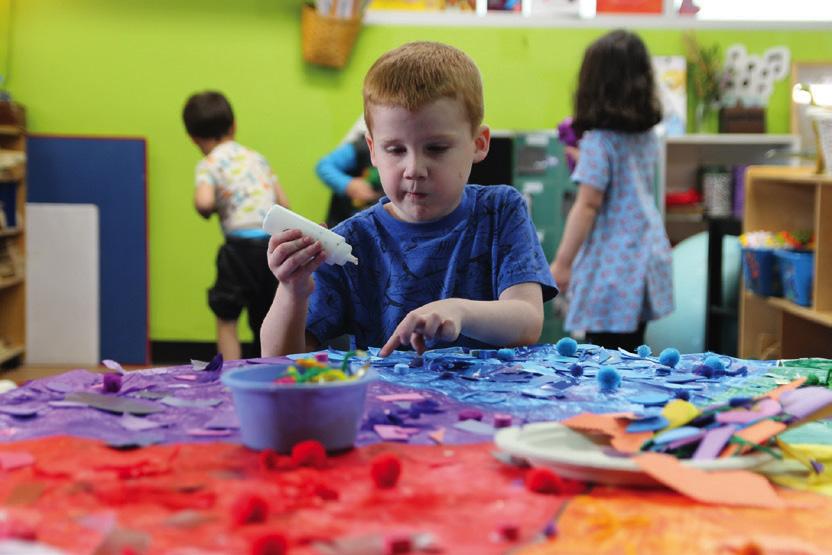
“Night time is a separation, and children already have a lot of separation when they start school, so making plans for the morning as part of the bedtime routine can bridge the separation of overnight, giving the child a valuable connection to look forward to and be worth getting out of bed for.”

While it might take some work up front, ensuring your child is well rested has plenty of benefits.
“The right amount of sleep is so important for developing bodies and brains, and when a child can get enough sleep, the parents have a better chance of getting enough sleep. Win-Win,” said Spackman.
You can find blog posts and opportunities to speak with Tracy Spackman at getquietnights.com
DISCOVER A WORLD OF POSSIBILITIES THROUGH LANGUAGE! FRENCH & SPANISH PROGRAMS 18 Months - Grade 8 INTERNATIONAL PROGRAM Grades 6 & 7, No Prior French or Spanish Experience Needed BONJOUR HOLA 480.874.2326 | ISAZ.org | Admissions@ISAZ.org 9522 E San Salvador Dr, Scottsdale, AZ 85258 A private non-profit 501c(3), independent private school, educating students in a dual international curriculum, from age 18 months through grade 8. Space is LIMITED for Fall 2023! APPLY NOW! Schedule a Campus Tour or Schedule Your Child for a Shadow Day Today! HELLO EARLY CHILDHOOD EDUCATION, AFTERSCHOOL CARE + CAMP | YOUTH + ADULT SPORTS LESSONS, LEAGUES + CLINICS | TENNIS | AQUATICS | ARTS + CULTURE PROGRAMS, CLUBS + CLASSES | + SO MUCH MORE + some people join! TETIANA SOARES Sept• Oct • Nov FALL 2023 45 RaisingARIZONAKids.com
AMBER SUNDSVOLD was enjoying being pregnant for the first time. Her baby girl was healthy, growing, and developing like normal. After going past her due date, Amber was induced and that’s when things took a turn.


“She wasn’t coming out and was stuck in the birth canal,” said Amber. Eventually, they delivered the baby via C-section. Five days later, when baby Vivian started showing signs of seizures and had to be airlifted to another hospital, it was determined that she had suffered brain damage due to a lack of oxygen at birth and was diagnosed with Cerebral Palsy.
“It’s been an eye opener,” said Amber. “You never really think it’s going to happen to you.”
Vivian, now 2 years old, has many physical limitations. She’s mostly immobile and non-verbal requiring help from vision, physical, and occupational therapy.
Because of her immobility, Amber has been researching the best medical equipment to assist Vivian in being able to walk and sit up on her own. However, some of these devices are not covered by insurance— making them expensive to pay for out of pocket.
“We’ve been trying to raise money for those,” said Amber. “One is a special kind of walker that costs around $2700, and the other one is an adaptive chair that straps her in and supports her. That costs roughly $2200.”
In addition to working a full-time job as a pharmacy technician, Amber is Vivian’s primary caregiver—a round-the-clock job in and of itself.
Being a Mom to a Child with CEREBRAL PALSY
By Monique Seleen • Photo by Katelyn McKenzie
“She has therapy appointments throughout the week and various doctor appointments (all of which are three hours away) one to three times a month that I have to take time off of work for,” said Amber. Even things like running a quick errand can be challenging.
“I try not to go anywhere as much as possible,” said Amber. “I’d have to carry her through a store and it would just be more on me. I do have friends and family that are super supportive to watch her if I need it; I just try to not have to go and do anything because I feel uncomfortable leaving her.”
Yet despite it all, Amber said she considers herself lucky.
“I don’t mind taking care of her,” says Amber. “We take it day by day, and overall we have it pretty easy. She doesn’t have seizures, and she’s a pretty happy girl, just non-mobile.”
Vivian loves playing and interacting with her 6-year-old step sister, Charli, and Amber says she hopes one day Vivian will gain some of her own independence.
“I hope she’s able to be somewhat mobile—sit up on her own and play on her own. I know she sees me, her dad, and older sister, doing things by ourselves, and she’s going to figure that out eventually.”
Amber’s one piece of advice for others: Be kind.
“Be open-minded with other people’s children. I get comments from people when I take her out saying things like, ‘what’s wrong with her?’” she says. “Every kid is going to be different no matter what. Just be kind, and talk to your kids about being accepting and nicer. It’s a lot for everyone.”
Special Needs: PARENTING
46 FALL 2023 Sept • Oct • Nov RaisingARIZONAKids.com
RAISING for RETT
Picazzo’s Healthy Italian Kitchen
Fundraises for a Personal Cause
By Monique Seleen
PICAZZO’S Healthy Italian Kitchen is doing an ongoing fundraising campaign – “Raising for Rett” in an effort to fund a cure for Rett Syndrome – a rare neurological disease.
It comes from a personal place as Picazzo’s managing partner, Chris Disney and his wife recently learned their young daughter, Collyn, has Rett Syndrome.
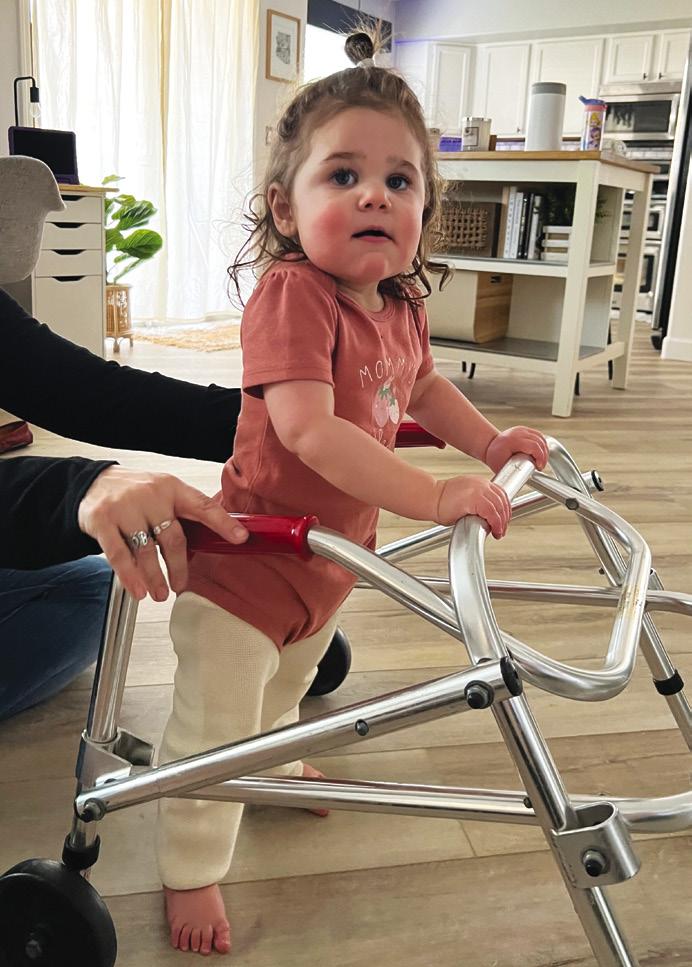


After noticing some developmental delays compared to their other three children, Chris said he and his wife began asking questions.
“We kept asking our pediatrician, but they were telling us she was fine,” said Chris. “Around 18 months it seemed like she started to regress.”
Eventually, the Disneys were referred to a neurologist, switched pediatricians, got some genetic testing done, and that’s when they got the positive result for a gene mutation indicating Rett Syndrome.
“You almost want to lie to yourself and say that’s not what it is,” said Chris. “It was a challenge. We didn’t know where to go and where to start.”
Rett Syndrome is a condition that doesn’t allow some cells in the brain to produce a protein needed for brain development. It involves symptoms of autism, cerebral palsy, Parkinson’s, epilepsy, and anxiety disorder.
“She’s nonverbal and doesn’t walk,” said Chris about his two-year-old daughter. “She’s miserable a lot. It’s like she’s trapped in her body. It’s a struggle because there’s nothing you can do and no answer right now.”
Between multiple therapy appointments
and the difficulty it poses to leave the house with Collyn, Chris says it’s completely changed the way they live their lives.
“We can’t really leave the house. She’ll be alright in the car seat for a little while, but once you get her out and try to sit her somewhere, it’s a challenge. You don’t know what she wants,” he said. “If one of our other kids has an activity, my wife and I have to trade off staying home with Collyn. We have a swing in her room, and that’s the biggest thing that will get her to calm down. Sometimes we spend hours in there with her on that swing like a prison trying to console her.”
While there is currently no cure for Rett Syndrome, the research and discoveries are promising because the exact cause is known.
Chris and his family remain hopeful that they will see a cure for Collyn in her lifetime. Until then, he said he just hopes for his daughter to be happy.
“Before it was ‘as long as they’re healthy’ now it’s ‘as long they’re happy and content’” said Chris. “If she has to deal with this, I’d just want her to be happy.
Picazzo’s is donating $1 for every oven-baked chocolate chip cookie dessert sold at any of the six Picazzo’s locations in Sedona, Scottsdale, Tempe, Paradise Valley, Arrowhead, and Gilbert.

















































Donations can also be made directly to Picazzo’s “Raising for Rett” campaign at rettgive.org/campaigns/supporting-rettsyndrome-research

Enrollment is Now Open for the 2023-2024 School Year! Serving all needs of the autism spectrum. Visit our website to learn more about our award winning, tuition-free programs. AUTISMCHARTER.ORG Early Learning Center: Grades K-3 1445 E Indian School Rd, Phoenix • 602-883-7500 Main Campus: Grades 4-12 4125 N 14Th St, Phoenix • 602-882-5544 West Valley Campus: Grades 1-5 11039 W Olive Ave, Peoria • 602-283-5994 Tucson Campus: Grades 9-12 1300 S Belvedere Ave, Tucson • 602-882-5544 Online Campus: Grades K-12 1430 E Indian School Rd, Phoenix • 602-346-0300
Sept• Oct • Nov FALL 2023 47 RaisingARIZONAKids.com
Photo courtesy of the Disney family
Is My Child DYSLEXIC?
By Mary Smith
RESEARCHERS ESTIMATE that 20% of the population struggles with literacy. Of students with specific learning disabilities (SLD), 70-80% have deficits in reading. Dyslexia is the most common cause of reading, writing, and spelling difficulties.

What is Dyslexia? Dyslexia is a languagebased learning disability characterized by unexpected difficulties in word recognition, poor spelling, and decoding abilities.
A Few Early Indicators of Dyslexia:
• Late talker
• Trouble learning letters, numbers, and colors
• Trouble rhyming
• Struggle to name familiar objects
• Mispronouncing words, like saying “pusgetti” for “spaghetti”
• Skipping or misreading common short words
• Substituting words, like “house” when the story says “home”
• Often confusing letters that look similar (like b, d, p, and q) or sound similar (like f and v, b and p, or d and t)
What Causes Dyslexia? The causes of dyslexia are genetic and neurobiological. It is common for parents to discover that they are dyslexic when their child is diagnosed, and if not the parent, a close relative. Dyslexic brains are wired to process language differently.
What Can Be Done to Treat Dyslexia?
• Structured Literacy is an effective approach to reading that teaches strategies to identify and decode words in an explicit and systematic way.
• Early identification and intervention are extremely important! Research shows that dyslexia is identifiable at age 5 ½, and if given the right kind of instruction, 95% of dyslexic learners will read proficiently at grade level by 1st grade.
• Speak up. If you suspect your child is
What Dyslexia is NOT:
• A vision problem
• Outgrown or cured
• A result of laziness or lack of motivation
• Seeing letters backward
• Found more often in males
• Dependent on intelligence
• Rare
In fact, dyslexia does not discriminate. It is found worldwide, in all cultures and socioeconomic groups, in males and females equally, and in individuals with average to above-average intelligence levels. And it is very common!
dyslexic, it is important to share your concerns with the school as soon as possible. Not all dyslexic learners will qualify for special education services, but that does not mean your child will not receive additional instruction and support through accommodations.
Here are a few key points to help navigate this journey and support your dyslexic learner:
• Educate yourself about dyslexia and special education. Know your educational rights, and work as a team with the school.
• Teach your child how to advocate for himself. There is no shame in asking questions or for accommodations.
• Embrace dyslexia! There is absolutely nothing wrong with being dyslexic; your child just learns differently!
• Help your child find and develop their strengths.. Dyslexic students often get discouraged about school because they feel unintelligent and less capable than they actually are.
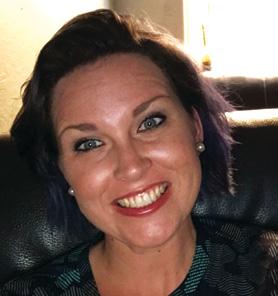
• Teach your child to use assistive technology, especially audiobooks which
can help dyslexic learners to become engaged, independent readers!
• Find community. Many dyslexics feel alone, and they are not. Dyslexia is common, and they need to know it!
HURONPHOTO
IDA Arizona is hosting a 1in5k Dyslexia Dash at Freestone Park in Gilbert on September 30th! Please join us; let’s raise awareness and build a community for the 1 in 5!
To learn more about dyslexia or register for the Dash, visit az.dyslexiaida.org
Mary Smith, Executive Assistant of the International Dyslexia Association Arizona Branch. IDA Arizona is a branch of the International Dyslexia Association, a nonprofit organization that, for over 70 years, has been the authoritative voice of current and reliable research and information on the complex issues of literacy and the science of reading. IDA works to educate families and professionals and affect practices and policy changes needed to deliver effective reading instruction—until everyone can read!
Special Needs: READING
48 FALL 2023 Sept • Oct • Nov RaisingARIZONAKids.com
We’re On A Mission!
Family Care Connections


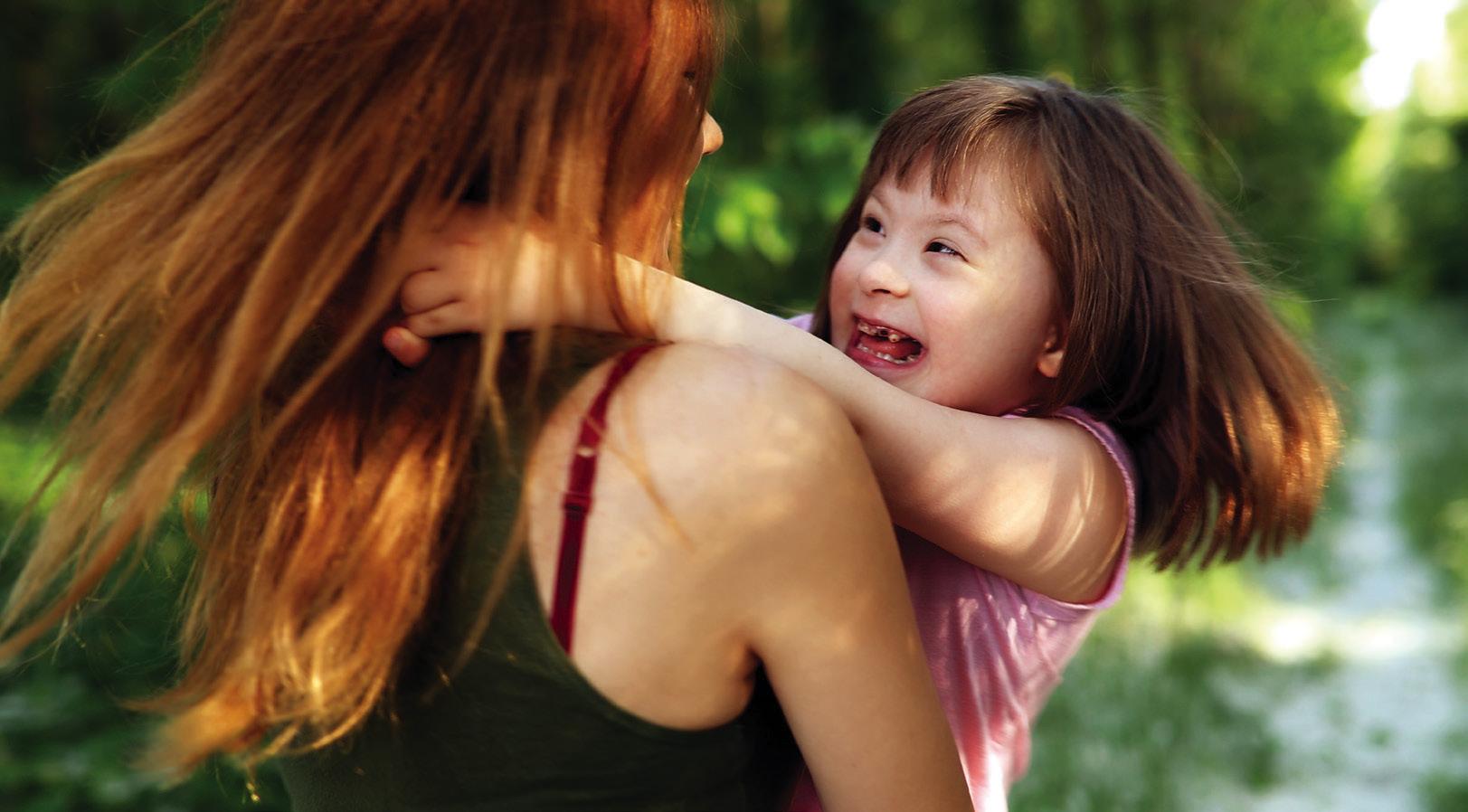
is on a mission to empower and improve the lives of people with special needs. We compassionately and cohesively coordinate and provide services such as respite, habilitation and attendant care. We also offer Day Programs, Group Homes and Employment Services. We are a well-rounded service agency that can help assist you through the complexity of DDD service all while advocating for your loved one’s needs. »We are funded through the Department of Developmental Disabilities but we also take Mercy Care and Private Pay. We service Phoenix and all of the West Valley area.
Are you in need of a provider?

We’d love to help! Our vision is to strive for a world that works for everybody and empowers those with special needs to live healthier and happier lives. Check us out at azfcc.org or call 623-776-9351 option 1.


We Are Now Hiring!
We are always looking for caring and responsible Care providers. Are you a person who loves to help others? Our services are provided one on one and done in the member’s home or out in the community.
Benefits »Competitive hourly rate • PAID trainings as new hire and when recertifying. • Hands on human service experience Group Insurance Benefits including medical, dental, vision 401K • Referral bonus program • FREE EOS gym membership Paid time off • Flexible schedules • Rewarding! Become part of our team!
Must be dependable and responsible • Must be 18 years of age or older; 21 years + for positions requiring a driver Reliable transportation | Compassionate and caring
GLENDALE
17505 N 79th Ave Suite 103
623-776-9351 select option 1 azfcc.org
Embracing the Three Levels of AUTISM SPECTRUM
By Diana Diaz-Harrison • Photos courtesy of Arizona Autism Charter Schools
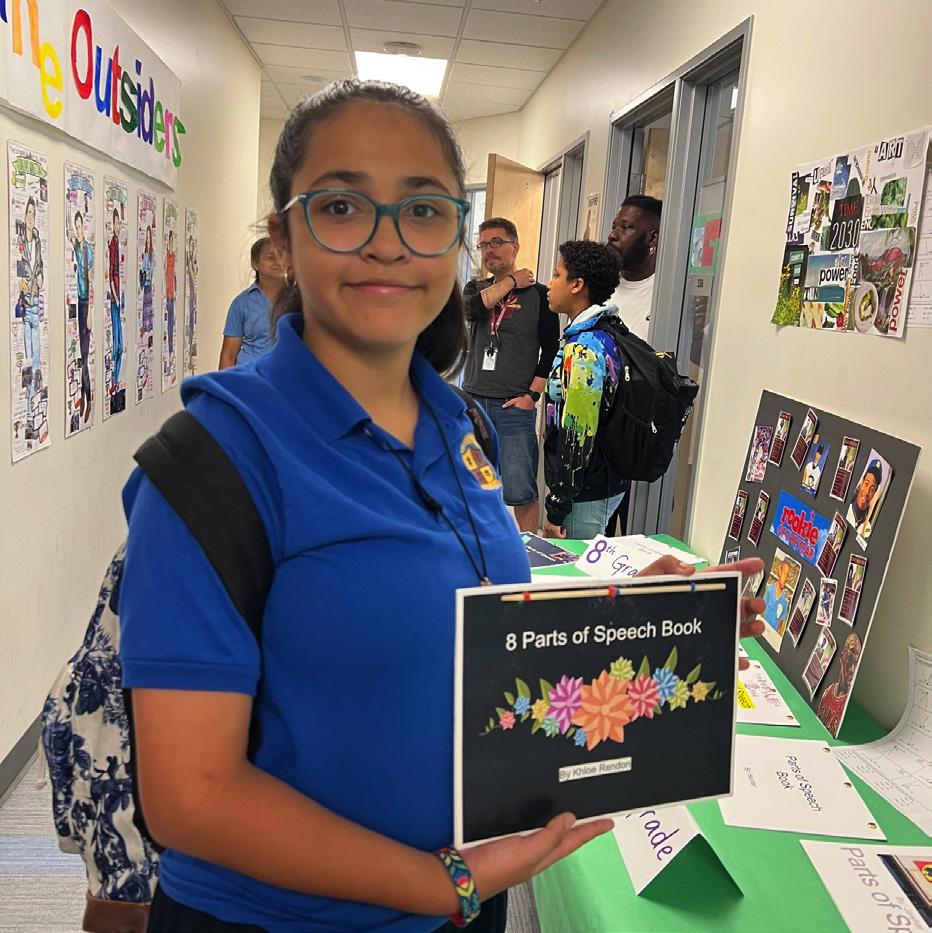
AS THE FOUNDER of Arizona Autism Charter Schools and an autism mom who adores and cherishes children with autism, I firmly believe in embracing the diverse strengths and needs of each individual on the spectrum. Autism Spectrum Disorder (ASD) includes a wide range of unique talents, perspectives and challenges. My goal is to shed light and hope as we explore the three levels of autism from a strength-based perspective, while acknowledging the levels of support typically needed by children at each level.
LEVEL 1: Requiring SupportUnveiling Remarkable Potential
Level 1 autism may present mild challenges in social communication and interactions, but it is also a realm of incredible potential. These children often have an intense fascination and can become experts in their chosen areas, impressing us with their encyclopedic knowledge. With the right support, they may go to college and be great contributors to the workforce.
LEVEL 2 : Requiring Substantial Support - Embracing Unique Perspectives
At Level 2 autism, individuals may face more pronounced challenges in communication and social interactions. These
children often have a profound appreciation for sensory experiences and hands-on projects and can do very well in structured, small group settings. They typically have more success demonstrating their knowledge through project-based learning rather than verbal communication.
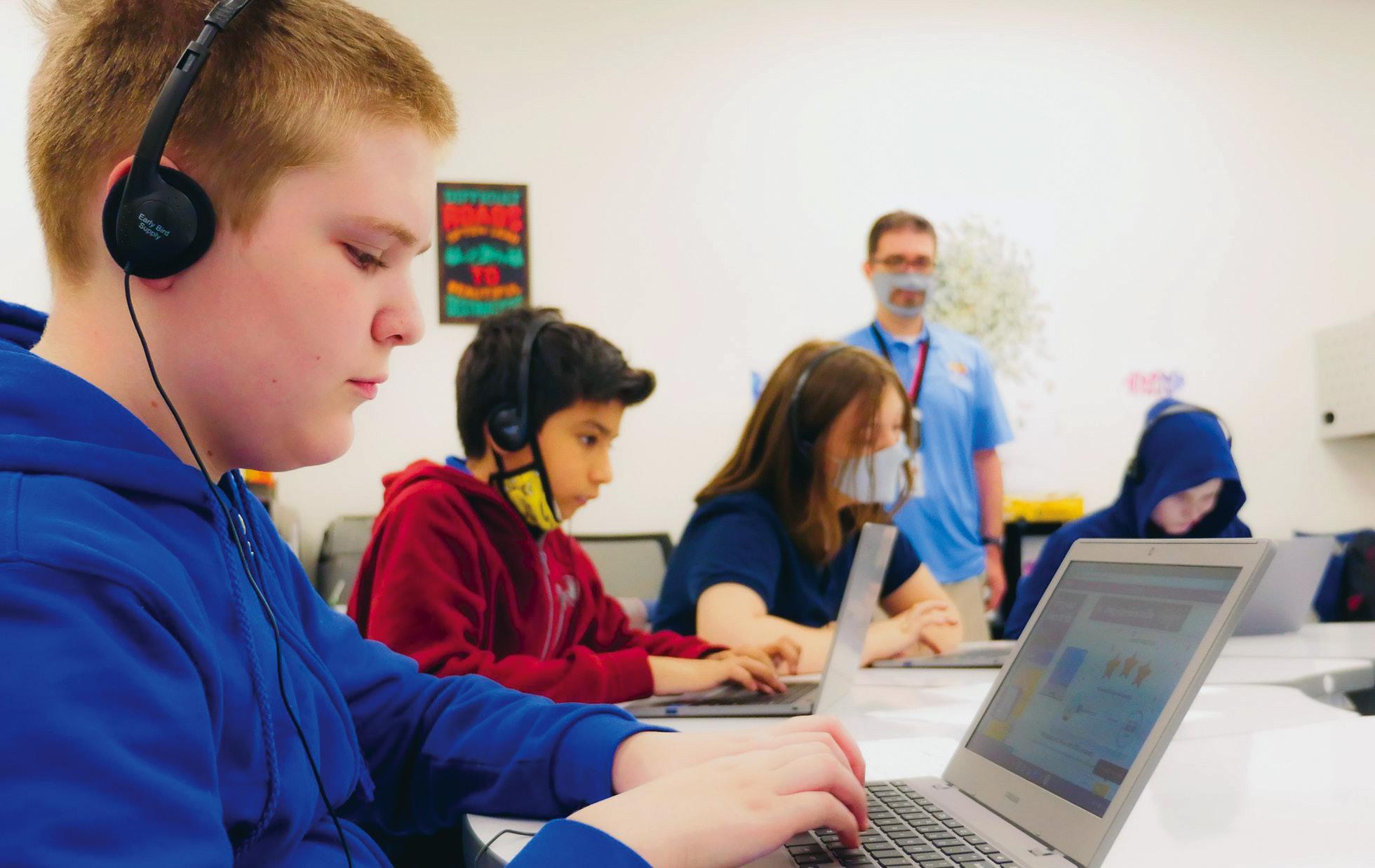
LEVEL 3: Requiring Very Substantial Support - Embracing Resilience and Perseverance
Level 3 autism represents the most severe end of the spectrum, but it is also a testament to incredible resilience. They may be nonverbal and have limited social interactions, but generally, they thrive with structured routines and enjoy patterns and repetitive tasks. Their ability to communicate using alternative methods, such as gestures and assistive communication devices, demonstrates their determination to express their needs and emotions.
My son Sammy has level 3 autism, and he is a happy productive member of our school community. He is a wonderful and helpful family member, and the greatest inspiration of my life.
TAILORED SUPPORT
Categorizing autism into levels is not about a pecking order of success, but rather
about recognizing the diverse strengths and challenges children with ASD may face. It allows parents and educators to tailor support accordingly. At our schools, we tailor supports by offering three programs; the Academic Program for children working at or near grade level and needing social/ behavioral supports, the Modified Academic Program for students needing differentiated curriculum and very small group instruction, and the Functional Academic Program offering a very structured clinical program and hands-on adaptive curriculum.
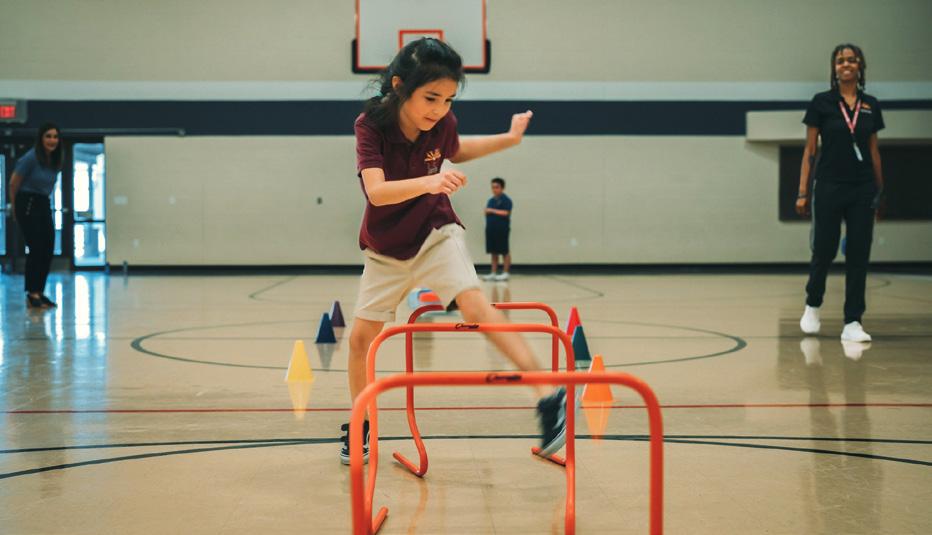
Understanding the different levels of autism empowers us as parents, caregivers, and educators to create an environment where children with autism can thrive.
For more information about Arizona Autism Charter Schools visitautismcharter.org
Diana Diaz-Harrison is the Founder and Executive Director of Arizona Autism Charter Schools, the first and only autism-focused charter network in Arizona and the southwestern U.S. She was inspired to start these specialized schools by her son Sammy.
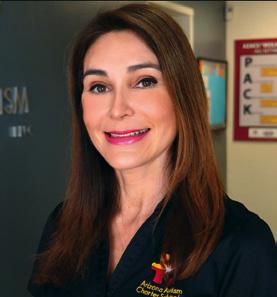
Special Needs: AUTISM
50 FALL 2023 Sept • Oct • Nov RaisingARIZONAKids.com



Sept• Oct • Nov FALL 2023 51 RaisingARIZONAKids.com
Does My Child Need SPEECH THERAPY? Signs to look for and what you can do to help
By Monique Seleen, answers by Hilary Hopper MS, CCC-SLP

THERE CAN BE several instances in which a child might qualify and benefit from speech services.
Hilary Hopper, Speech Pathologist, mom, and owner of Show and Tell Speech Therapy, provided some insight into commonly asked questions when it comes to speech disorders.

Hilary has been working in the speech world for over 10 years and has a special interest in helping children with Autism, Motor Speech Disorders such as Childhood Apraxia of Speech (CAS), delayed talkers, and selective eaters.
How will a parent know if their child needs speech therapy? Any time a parent is concerned, it’s always best to refer to a speech pathologist. If your child is not producing sounds, not using a lot of words, not talking by two years old, not combining words, or not pronouncing words correctly, speech therapy is a good idea.
What steps should a parent take if they think their child needs speech therapy?
Bring it up to your child’s pediatrician. You can also ask your insurance for recommendations. However, you do not need to have a referral to get your child evaluated by a speech pathologist.
If your child is under 3, the Arizona Early Intervention Program (AzEIP) is a good place to start.
What types of speech disorders do pediatric speech therapists help with?

Some of the most common speech disorders among children are:
• Speech sound disorders (producing sounds incorrectly such as the “r” sound)
• Language disorders (not using grammar correctly or not using sentences correctly)
• Autism disorders (not responding to name, not understanding words)
What are some reasons why some children have speech trouble? It’s never anything you did, and it’s not your fault. Sometimes we don’t know the reason. In other cases it can be genetic, due to hearing loss, or even a neurological issue.
What can parents do at home to help their child with speech development?
• Read the same few books every day so it becomes repetitive for the child.
• Model language within your day to day routine. Narrate what you’re doing using simple language.
• Follow your child’s lead, find what they’re interested in, join in and talk about it.
• Work on imitating skills, and have your child imitate words with actions (such as clapping).
Why is it important for parents to seek out professional help for their child’s speech needs? We don’t want a child to get further behind. The earlier we intervene the better their progress will be.
For more information on Show and Tell Speech Therapy or to book an appointment with Hilary, visit showandtellspeech.com
Hilary Hopper, MS, CCC-SLP is an Arizona native. She lives in Mesa with her husband, daughter, and two pets. She received her Bachelor’s Degree in Speech & Hearing Sciences from Arizona State University, and her Master’s Degree in Speech-Language Pathology from Western Kentucky University. As a mother, Hilary understands how busy parenthood is. Her goal at Show and Tell Speech Therapy is to teach you the strategies you need, while making it simple to integrate them into your daily routines.
Special Needs: SPEECH
52 FALL 2023 Sept • Oct • Nov RaisingARIZONAKids.com
The Community School preschool program at the Southwest Autism Research & Resource Center offers high-quality early childhood education for young learners ages 15 months-5 years old with and without autism—all in an inclusive classroom environment!

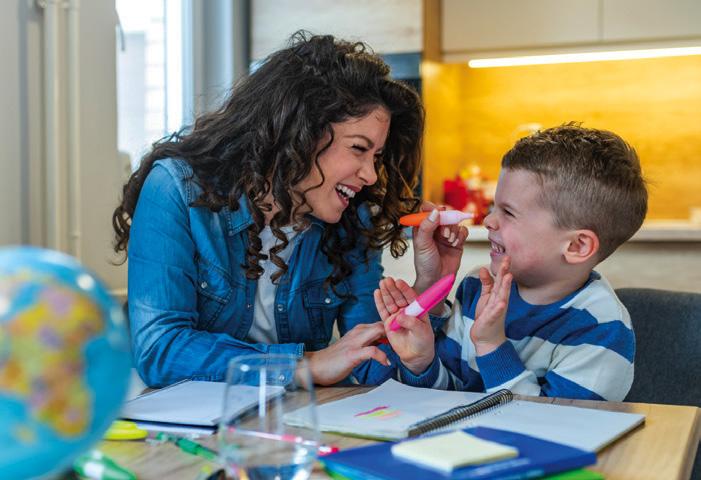
FEATURING
• Small class sizes
• 4:1 student-teacher ratios
• Individualized instruction
• Play-based model
• July-June school year
For information, please call 602.606.9806 or visit us online at autismcenter.org/communityschool
20 Years of Experience
Providing Compassionate ABA Therapy for Kids and Adults


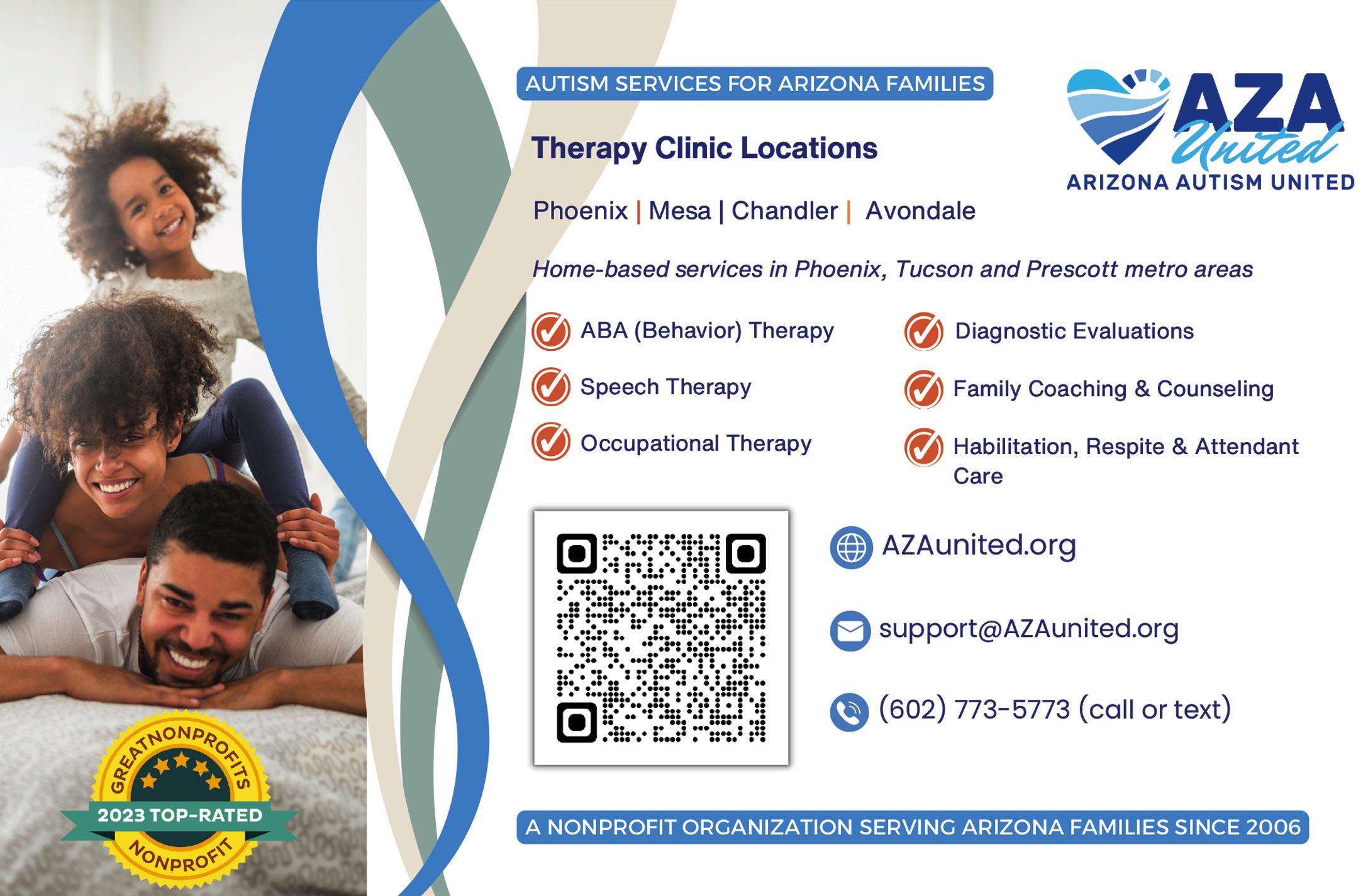
Parent Training and School Collaboration
One-to-One Care
Highly-Trained Board Certified Behavior Technicians
In-Home and Clinic Services
Locally-Owned
info@helpinghandsbehaviortherapy.com
520.484.4674 • 2244 E. Prince Rd., Tucson helpinghandsbehaviortherapy.com
NOW
ENROLLING!
Phoenix ● Tempe ● Scottsdale
LEARN MORE
Sept• Oct • Nov FALL 2023 53 RaisingARIZONAKids.com
KATARZYNA BIALASIEWICZ
Tips for Taking Your Child With Special Needs to a Party

 By Melanie Isaacs
By Melanie Isaacs
DO YOU KNOW that feeling you get when leaving for a party or event? It could be a big wedding, a work function, or a small family gathering.
For me, there is usually a combination of excitement and worry in my mind. What should I expect? Say? Wear? I would guess that most people have had this experience once or twice.
For kids with autism and related developmental disabilities, this feeling can be constant and exaggerated - especially with new things.
Seventy percent of families with autism are socially isolated. One of the main reasons is anxiety over not knowing what to expect when out and about. But this doesn’t have to be the case!
Experiences and events are truly the spice of life, so to help you be more prepared for a great event – including assisting your kiddos with anxiety and any special needs—here are some tips to help things go smoothly:
• Research online. Before going to a destination, find pictures online, search on the website, Google images, or read Yelp reviews to get a visual sneak peek at what you can expect.
• Call the party host beforehand to get details. Ask for any schedule you can foreshadow with your child. If your child has a specific trigger - ask about it. If your child is sensitive to loud noises, ask if there are any balloon-popping games, loud music, etc. Then you can properly prepare and know what to bring.
• Talk to your child about what to expect. For example, explain that they may or may not have cake, and that is ok. Always leave room for flexibility.
• Upon arrival, identify a quiet space to take a break. Share this location with the host so they are aware.
• Pack a treat or snack. If your child has a dietary restriction and the party is serving something that’s not available to them, they can enjoy their treat and not feel left out.
• Remember that knowledge is power. Speak to the venue, the teacher, or the host to let them know your child may be feeling overwhelmed and anxious because of x, y, or z. These details help the grown-ups around support your child and create a greater understanding and inclusive environment.
• If your child uses an assistive communication device - share the tool with the host. This provides great education for them and will help your kiddo feel more comfortable communicating at the party.
• Know that small steps are wins. If your kiddo has a hard time with groups, attending for even a short time is a win. Celebrate it! Then maybe next time they will stay longer.
Going out can be hard, but it is vital to our kid’s social well-being, family connectedness, and inclusion. Our whole community benefits when we are all included. I hope these tips can help your family. See you out there!
Melanie Isaacs studied zoology and marine biology. After working in the zoo and aquaria industry she saw the opportunity venues had to be more inclusive for guests with autism and related disabilities. Melanie founded Pal Experiences to achieve this next level of accessibility, partnering with venues to build communities where everyone gets to go. Learn more, and find free tools that support families with disabilities at palexperiences.org
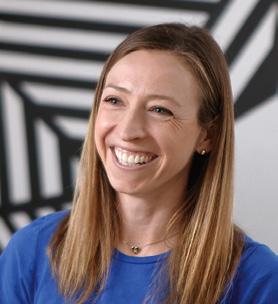
Special Needs: PARTY
SEVENTY
54 FALL 2023 Sept • Oct • Nov RaisingARIZONAKids.com
FOUR
Do you feel judged and alone because you have children with unexpected and extreme behaviors?
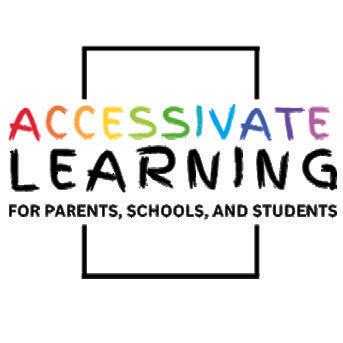

The Beyond Cranky Club is a FREE Support Group designed for parents and caregivers who have children with extra special behaviors, like verbal and physical aggression.
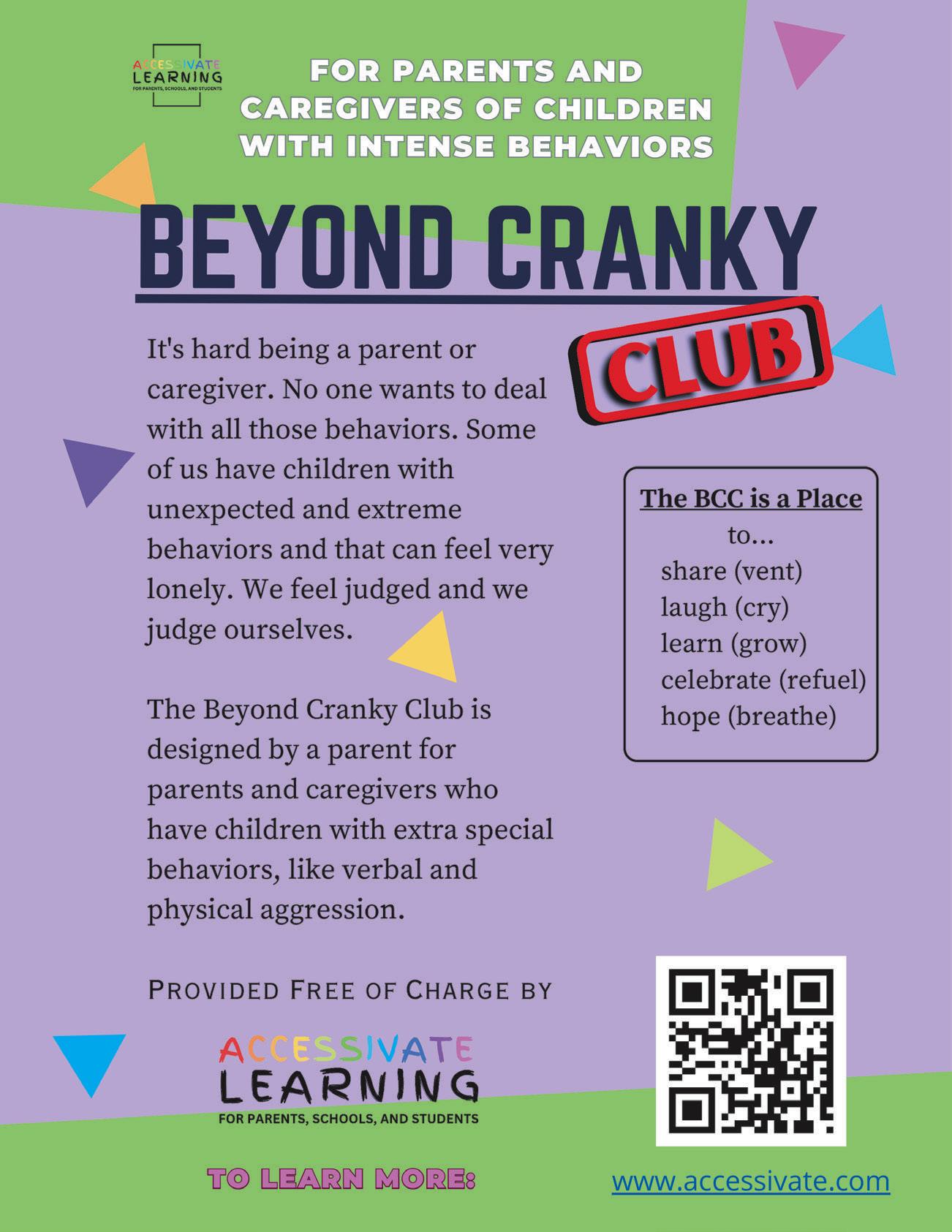


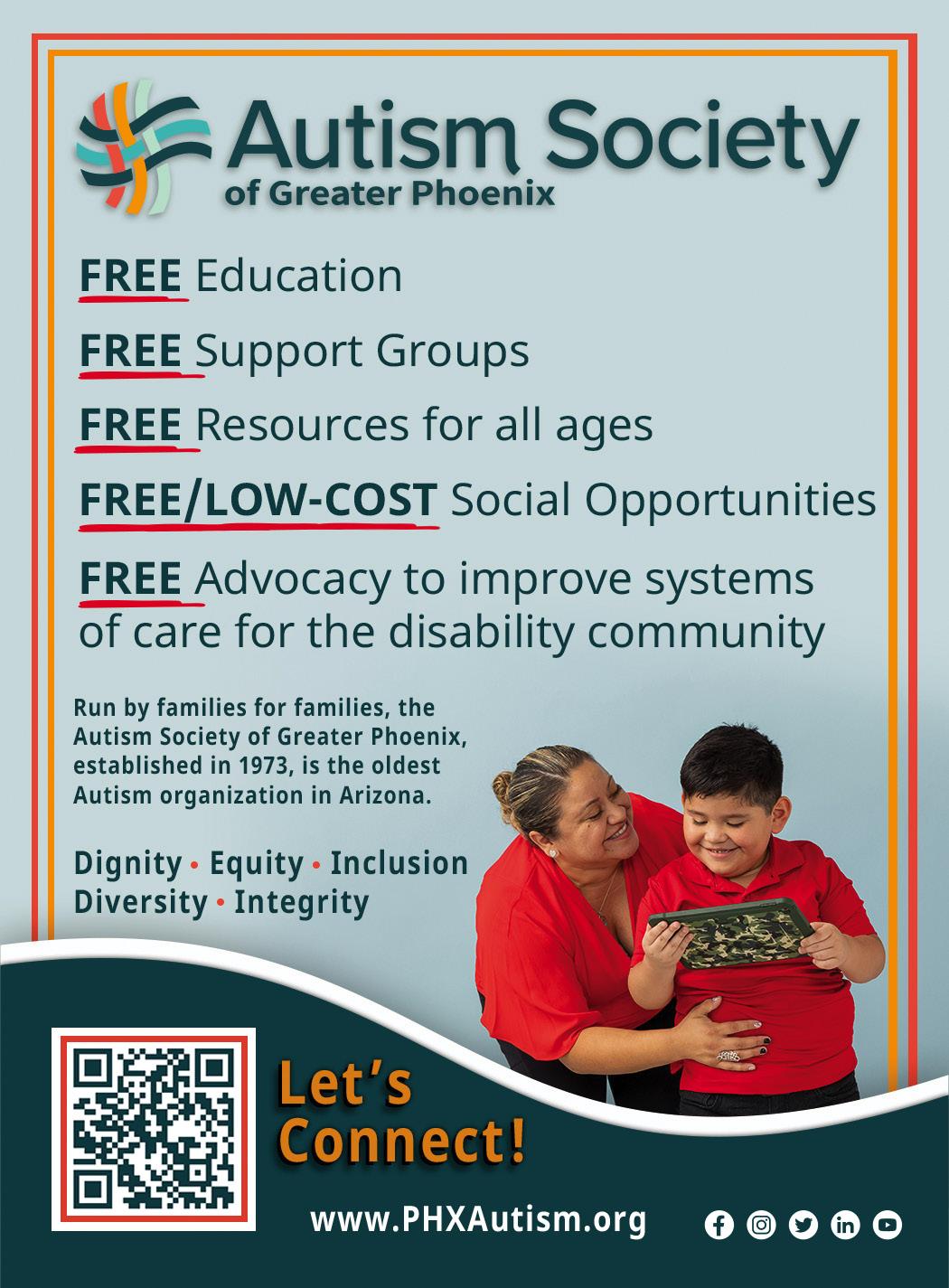

Active Parenting Class series for various ages and stages.
Parenting workshops specifically for men, dads, and dad-figures. Monthly Workshops Parenting topics that matter to you and your family.
Support Groups Get support from other parents just like you. Groups in English and Spanish. FEATURED PROGRAMS Free or Low Cost • Virtually and In-Person. (All Virtual Classes & Groups are Open to Families throughout Arizona!) 520.798.3304 • ParentAid.org 2580 E 22nd St., Tucson, AZ 85713 A Proud For-Impact 501(c)(3) Charity in Tucson, AZ and Qualified Charitable Organization through the State of Arizona. Community Parenting Classes & Support Groups
Intense
accessivate.com
Love Like a Dad
Parent
CRANKY CLUB For Parents & Caregivers of Children with
Behaviors
Sept• Oct • Nov FALL 2023 55 RaisingARIZONAKids.com
Dr. David Jourabchi treating a patient with special health care needs (right) and a patient is all smiles (left) after a successful visit. Location: Pacific Dental Services Foundation Dentists for Special Needs Clinic in Phoenix, which is supported in part by a $100,000 grant from Delta Dental of Arizona Foundation.
7 Tips for Making Dentist Visits Less Stressful
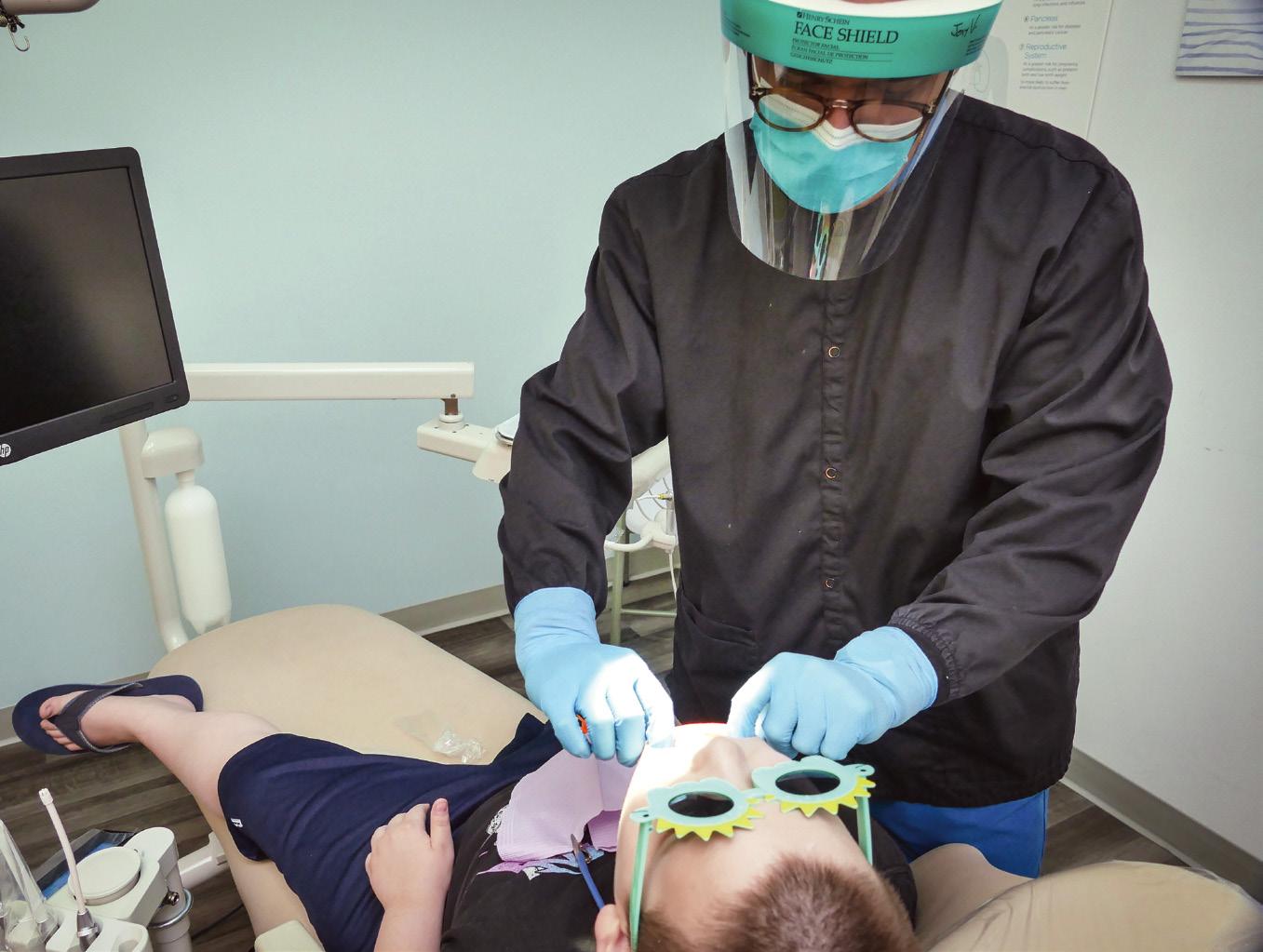 By Dr. Heather Schneider
By Dr. Heather Schneider
IF YOU HAVE to start World War III to get your child to brush their teeth, you are not alone! Many parents and caregivers have a difficult time getting their children to understand why it is so important to brush their teeth daily. This task can be even more difficult if you are raising a child with special health care needs. Because children with certain medical, intellectual and physical disabilities may be more susceptible to mouth problems, it’s important that they are comfortable when the inevitable trip to the dentist occurs. Here are 7 tips to make your child’s visits to the dentist less stressful:
1. Dental care starts at home. Make sure you are cleaning your child’s teeth daily. If your child resists the traditional way of tooth brushing, try to brush your child’s teeth with their head in your lap. This can soothe their nerves.
2. Make tooth-brushing time easier for your child. If your child can’t grip the toothbrush, cut a hole in a tennis ball and slide the toothbrush through. If that doesn’t work, try using a piece of Velcro to wrap around the child’s hand to hold the brush in place.
3. Practice healthy eating habits. A bunch of grapes or slices of an apple make much more desirable snacks than store-bought munchies.
4. Find a dentist who has experience working with children with special health care needs. Not all dentists have the training, experience or desire needed to care for people with extended health care needs. Look around for dentists who specialize in serving
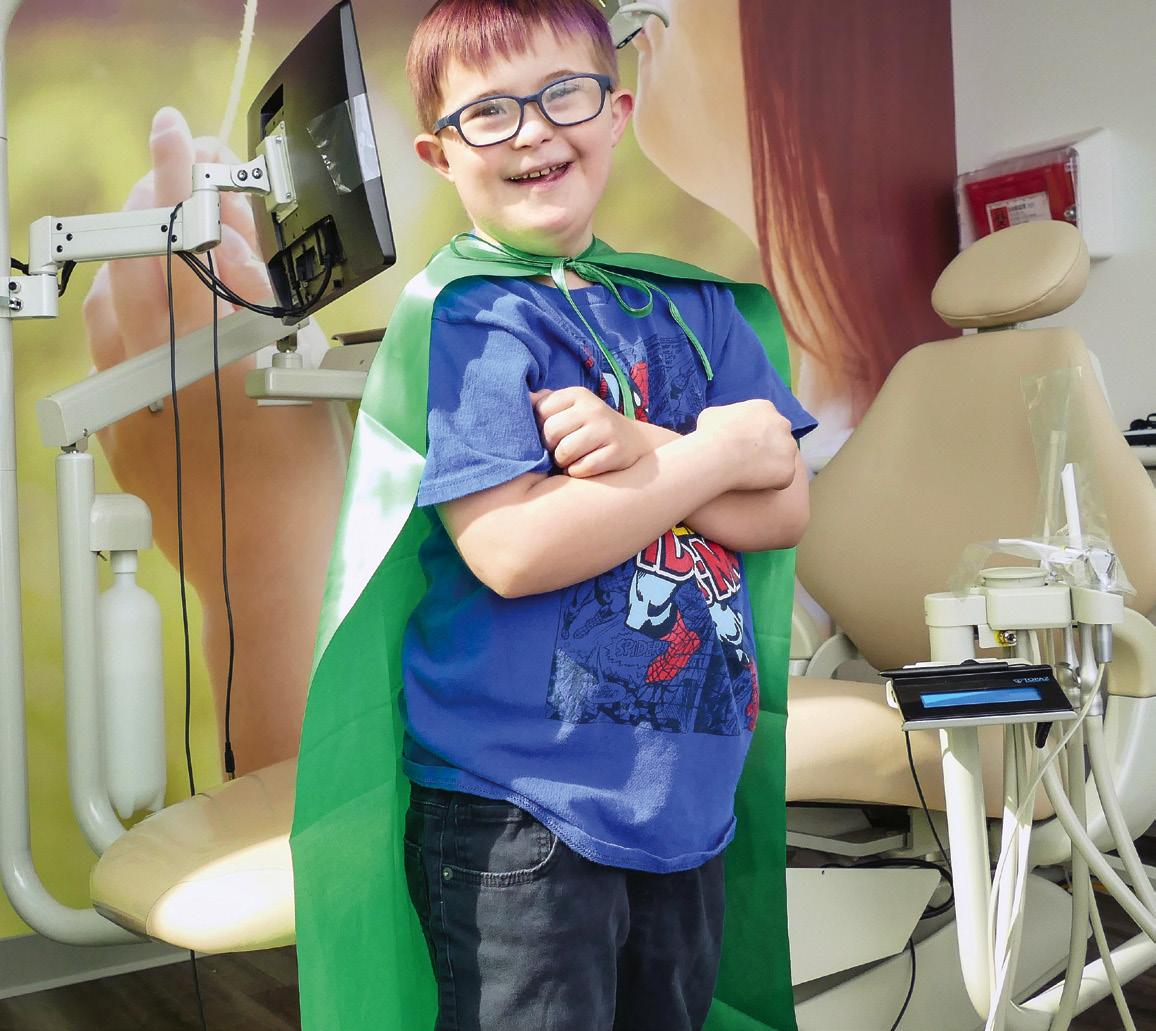
patients with special health care needs and ask other parents who have children with disabilities for a referral.
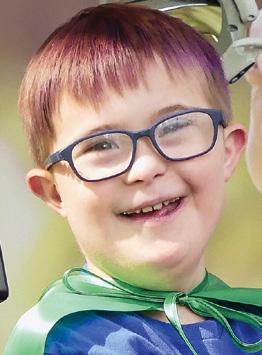
5. Talk to your dentist ahead of your child’s appointment to address concerns. Ask the dentist what to expect and how to prepare your child for meeting the dentist. Make sure to tell your dentist about any behaviors that may inhibit his work or about eating habits that may contribute to tooth decay.
6. Make your dentist a part of your child’s health team. Visiting a dentist should be held at the same priority level as visiting the medical doctor.
7. Help to make your child feel safe at the dentist. Avoid using words like “shot” and “drill” or phrases like “be brave.” This can add to your child’s anxiety.
COMING SOON: Delta Dental of Arizona will be offering extra benefits for members with special health care needs. Keep an eye on our website at deltadentalaz.com over the next few months for more details!
Dr. Heather Schneider is the dental director at Delta Dental of Arizona and has more than 20 years of experience in dental administration, dental education and clinical dentistry. For more oral health tips and information, visit deltadentalazblog.com

Special Needs: SPONSORED CONTENT
56 FALL 2023 Sept • Oct • Nov RaisingARIZONAKids.com

Get on the highway to health with coverage that rocks in the nation’s largest network of dentists. Find your plan at deltadentalaz.com/go. ONG LIVE SMILE POWER Arizona Dental Insurance Service, Inc. dba Delta Dental of Arizona. DDAZ-0515-rev0823
Hunkapi Farms’ Programs Support Children with Special Needs
By Terra Schaad, Founder of Hunkapi Programs
HUNKAPI FARMS, a 10-acre farm located in the heart of North Scottsdale, offers various equine-centered programs and services with one aim: To use the bond between horse and human as a catalyst for positive growth in the lives of children and adults with special needs.
Studies show equine-based programs are proven to be beneficial for those with disabilities, helping with mobility and cognitive or emotional skills.
Participants in Hunkapi Farms’ programs come from diverse backgrounds, abilities and ages from as young as three years of age through adulthood. The programs support individuals with a wide range of diagnoses such as autism spectrum disorder, attention deficit disorder, oppositional defiant disorder, emotional disorder, addiction disorder and post-traumatic stress disorder.
Children with special needs who are at least six years old can participate in summer and winter camps, therapeutic riding, and equine assisted therapy groups.
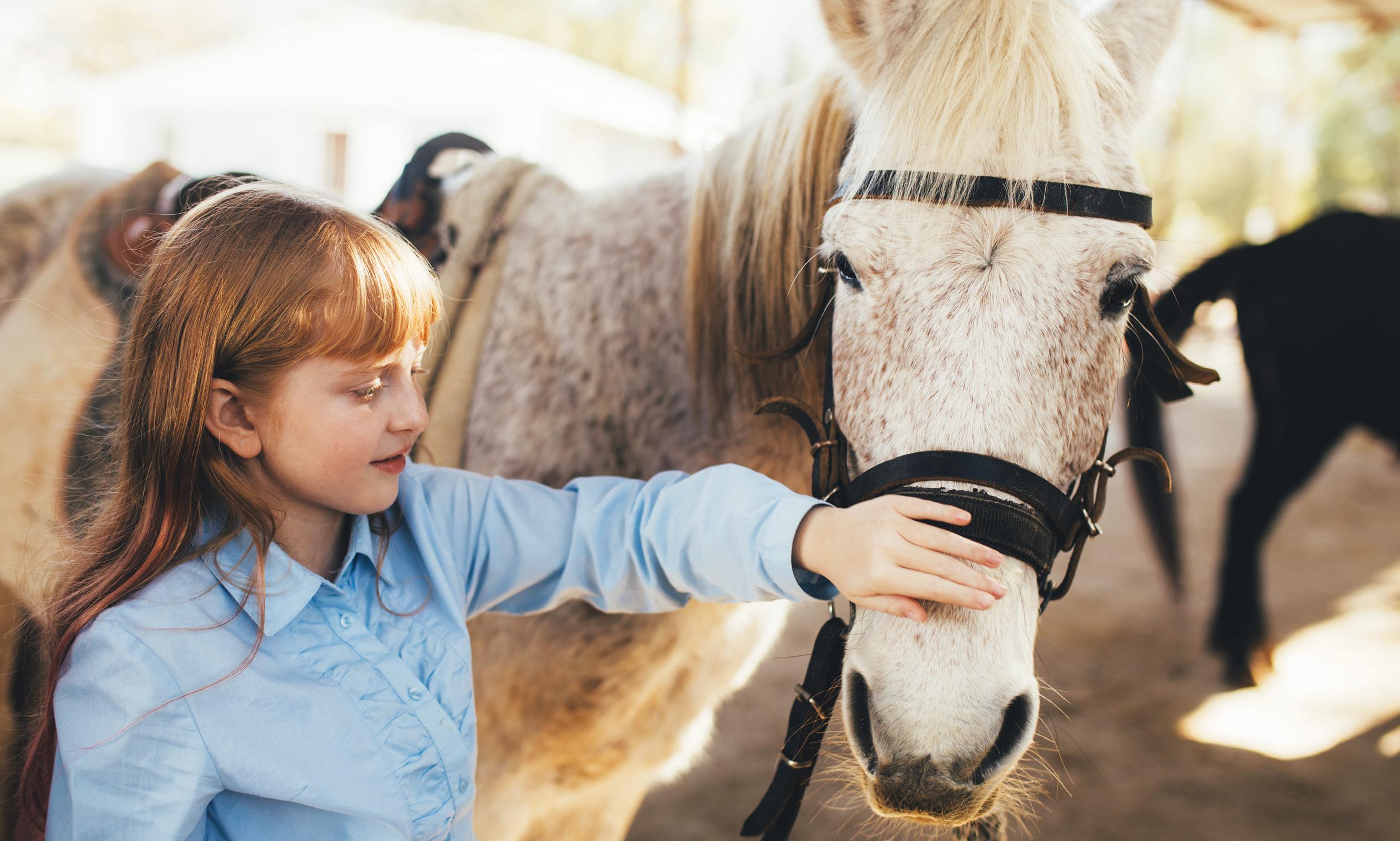
Here is a breakdown of the benefits for each type of program:
Summer and Winter Camps ($750, ESA Cards Accepted)
The summer and winter camps are one-week programs that provide participants with ample opportunities to build intensive life skills, communication, emotional regulation, teamwork, coping skills, accountability and support skills! Activities include daily farm care, horsemanship skills, tie dying, water activities, and other experiential life skills activities.
Therapeutic Riding ($70 per session)
During this program, the 4-legged healers work with riding instructors–both PATH (Professional Association of Therapeutic Horsemanship) certified and Hunkapi trained–to teach participants the art of horseback riding as a beneficial approach to improving health and well-being along with sensory and motor skills including coordination, muscle control, flexibility, posture and balance. The number of sessions recommended will depend on the goals and needs of the rider.
Equine Assisted Therapy (Custom Pricing)
The duration of the Equine Assisted Therapy program will also depend on the therapeutic goals and needs of the rider but the main focus of the program is to help individuals:
• Build healthy relationships and connect with others
• Regulate thoughts, emotions and behaviors
• Identify strengths
• Learn how to say what you mean and mean what you say
You can enroll your child in one of these programs by calling Hunkapi Farms at (480) 841-5737 or emailing love@hunkapi.org and discuss scheduling an intake session to see what your child’s needs are.
For more information visit hunkapi.org
Special Needs: RESOURCES
Terra Schaad is the Founder of Hunkapi Programs
58 FALL 2023 Sept • Oct • Nov RaisingARIZONAKids.com
POLINA LEBED
ryanhouse.org

Ryan House enriches the quality of life and creates cherished memories for children and their families, providing a much-needed break from 24/7 caregiving, as they navigate life-limiting or end-of-life

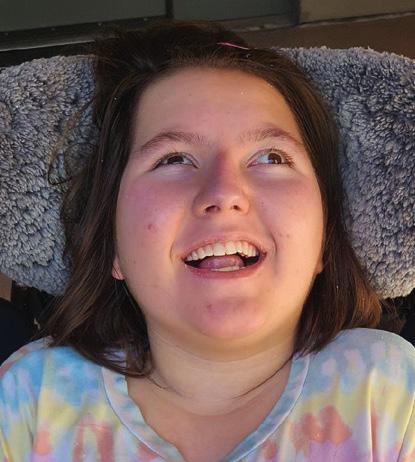


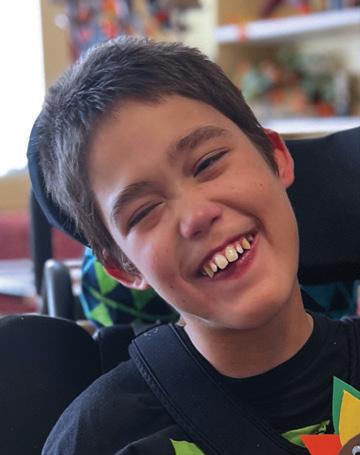

TRAIN LIKE ROYALTY TRAIN LIKE ROYALTY
WE HAVE SOMETHING FOR EVERYONE! WE HAVE SOMETHING FOR EVERYONE!
Our services are provided to families.
100 percent funded by donations. only pediatric respite alliative care facility.
Competitive Cheer • Open Gyms • Jump Classes
Competitive Cheer • Open Gyms • Jump Classes
Tumbling Classes • Tots Tumbling • Seasonal Camps
Tumbling Classes • Tots Tumbling • Seasonal Camps

Birthday Parties • Field Trips & More!
Birthday Parties • Field Trips & More!

Sept• Oct • Nov FALL 2023 59 RaisingARIZONAKids.com
Certified AUTISM CENTERS in Mesa
By Amanda Urrea
ARE YOU SEARCHING for accessible or sensory-friendly activities to enjoy with your family this fall? Look no further! Mesa’s Department of Arts and Culture, home to Mesa Arts Center, i.d.e.a. Museum and Arizona Museum of Natural History, provides inclusive and welcoming facilities and programs for all.
In 2019, Mesa Arts and Culture organizations became Certified Autism Centers™ as designated by the International Board of Credentialing and Continuing Education Standards. This designation signifies that staff members completed a specialized training and certification program equipping them with a deeper understanding of autism and sensory sensitivities.
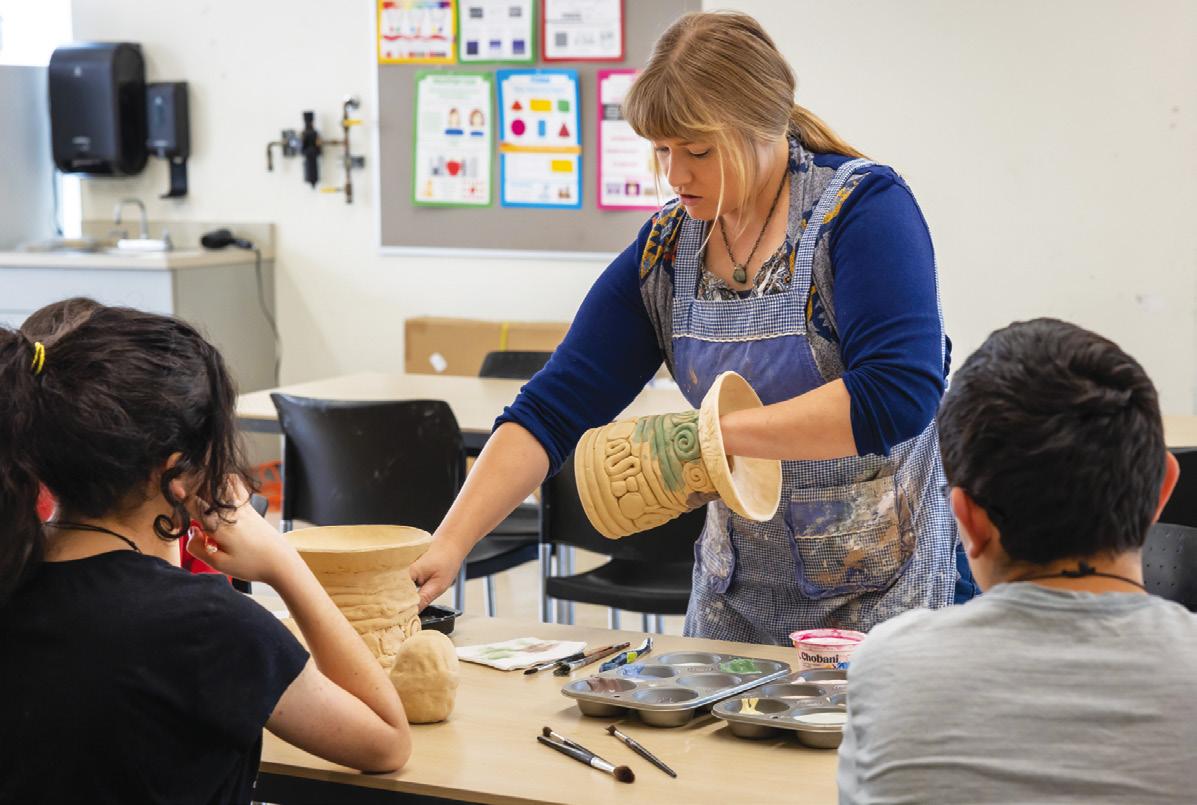

At Mesa Arts and Culture, each organization within the department goes above and beyond to ensure a comfortable and enjoyable experience for visitors of all abilities. From designated sensory rooms
and social stories to the Hidden Disabilities Sunflower program, they have thoughtfully implemented various measures to support guests with disabilities.
❶Arizona Museum of Natural History is committed to creating an inclusive experience for all visitors. They offer comprehensive sensory guides for each gallery, providing valuable information about lighting and noise levels to help families plan their visit accordingly. Additionally, noise-canceling headphones and light-sensitivity glasses are available upon request. The museum features quiet areas, tactile elements and the Exploration Station, which offers engaging hands-on activities. To further enhance accessibility, the museum offers free American Sign Language self-guided tours. Tablets are available at the front desk, or visitors can explore the museum on a virtual 360-degree tour from home. azmnh.org

Special Needs: RESOURCES
60 FALL 2023 Sept • Oct • Nov RaisingARIZONAKids.com
❷i.d.e.a. Museum is another remarkable destination within Mesa Arts and Culture that strives to cater to the needs of all visitors. The museum provides sensory guides throughout its gallery spaces, offering valuable information to enhance the experience. For added convenience, a limited number of sensory backpacks are available for checkout at the front desk, and guests may also request lap desks. Quiet spaces are thoughtfully incorporated throughout the museum for those who benefit from reduced noise. ideamuseum.org
❸Mesa Arts Center recently expanded its designated sensory spaces for festivals, allowing more guests to participate fully. This fall, there is an exciting addition to the Día de los Muertos Festival (Oct. 21–22, 2023), where the introduction of a Relaxed Hour on Sunday, Oct. 22, from 9-10 a.m., will provide a welcoming and inclusive environment for individuals and families with sensory sensitivities. During this dedicated hour, guests can enjoy reduced crowds, self-guided tours of the altars, reduced lighting and less amplified sound, a relaxing chill-out space, food allergy-friendly snacks, and hands-on art-making activities led by specialized artists experienced in working with individuals with additional needs. While it is a dedicated hour, guests are welcome to stay and continue to explore the festival using their own or provided (limited supply) fidgets, ear protection and other sensory resources. mesaartscenter.com
For more information about the offerings from each organization and to plan a visit that caters to your interests, or if there are specific accommodations you require that are not listed, you are encouraged to reach out to the organization. They are dedicated to supporting you and your family’s needs and continually improving the accessibility and inclusiveness of the facilities and programs. There, you will find valuable resources and details to ensure a memorable experience for your family.
Special Needs SOLUTIONS
By David Gordon
SPECIAL NEEDS SOLUTIONS is a 501(c) (3) charitable organization that designs and builds support and therapeutic equipment for children and adults with disabilities in the communities of Southern Arizona.
We help make it possible for young and old with special needs to participate as fully as possible in their lives by providing them with quality, affordable, custom made therapeutic equipment promoting their independence, cognitive development, and contact with the world around them.
Clients pay for only the cost of materials—a tiny fraction of the amount charged by commercial manufacturers of similar, generic equipment.
This is Special Needs Solutions’ fifth year as an independent non-profit. However, we have been part of the long-lived but discontinued Division of Developmental Disabilities program (the “Adaptation Station”), so we have been serving the community for a total of 34 years.
The ongoing financial burden already placed upon a family caring for a child or adult with disabilities is undeniable. Many of those with disabilities require specialized equipment for sitting, mobility, making their needs known, eating, and emotional regulation.
When commercially available, this equipment can be very expensive. For those who have limited means or are without insurance, and for those whose insurance will not pay for the needed equipment, cost is often an insurmountable barrier.
Because Special Needs Solutions design and fabrication are done by generous volunteers who are skilled in cabinetry, electronics, and sewing, we are able to provide the essential
supports for only the cost of the materials it takes to make them.
In addition, our volunteers are able to design and create custom adaptive equipment that’s not commercially available. In fact, almost everything made at Special Needs Solutions is designed to the specific physical and therapeutic needs of the individual.

We are the only entity in Arizona offering custom-made special needs equipment for just the cost of materials.
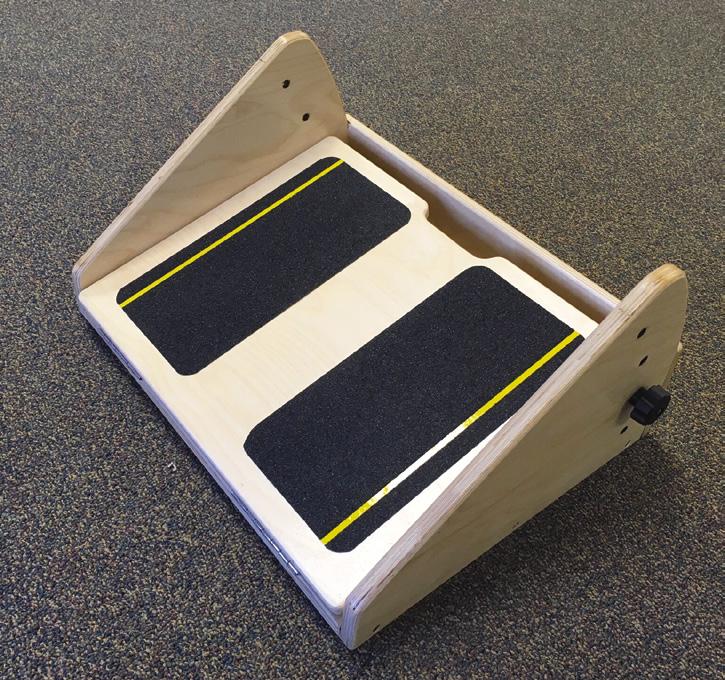
We offer assistance to individuals with any kind of disability, and from any social circumstance. Our work is done as a collaboration between those individuals, their families, and the occupational therapists, physical therapists, and teachers who work with them.
During a typical year, Special Needs Solutions adapts approximately 1,000 items and serves over 220 individuals with special needs (and many more through the use of our equipment in exceptional education school programs, community agencies, and clinics).
For more information visit snstucson.org
David spent most of his adult life globe-trotting to conduct training seminars in psychotherapy and writing and publishing several books. He then went on to teach second grade at Tucson Unified School District and eventually took over the Adaptation Station for the Division of Developmental Disabilities. When they shut down, David went on to start Special Needs Solutions. He says his time as the Executive Director of Special Needs Solutions has been, by far, the most fulfilling endeavor he has been a part of. To learn more visit snstucson.org
Sept• Oct • Nov FALL 2023 61 RaisingARIZONAKids.com
Amanda Urrea is the Public Relations Manager at Mesa Arts Center.
LILY’S PAD A Hyper Clean Play Place for Immunocompromised Children
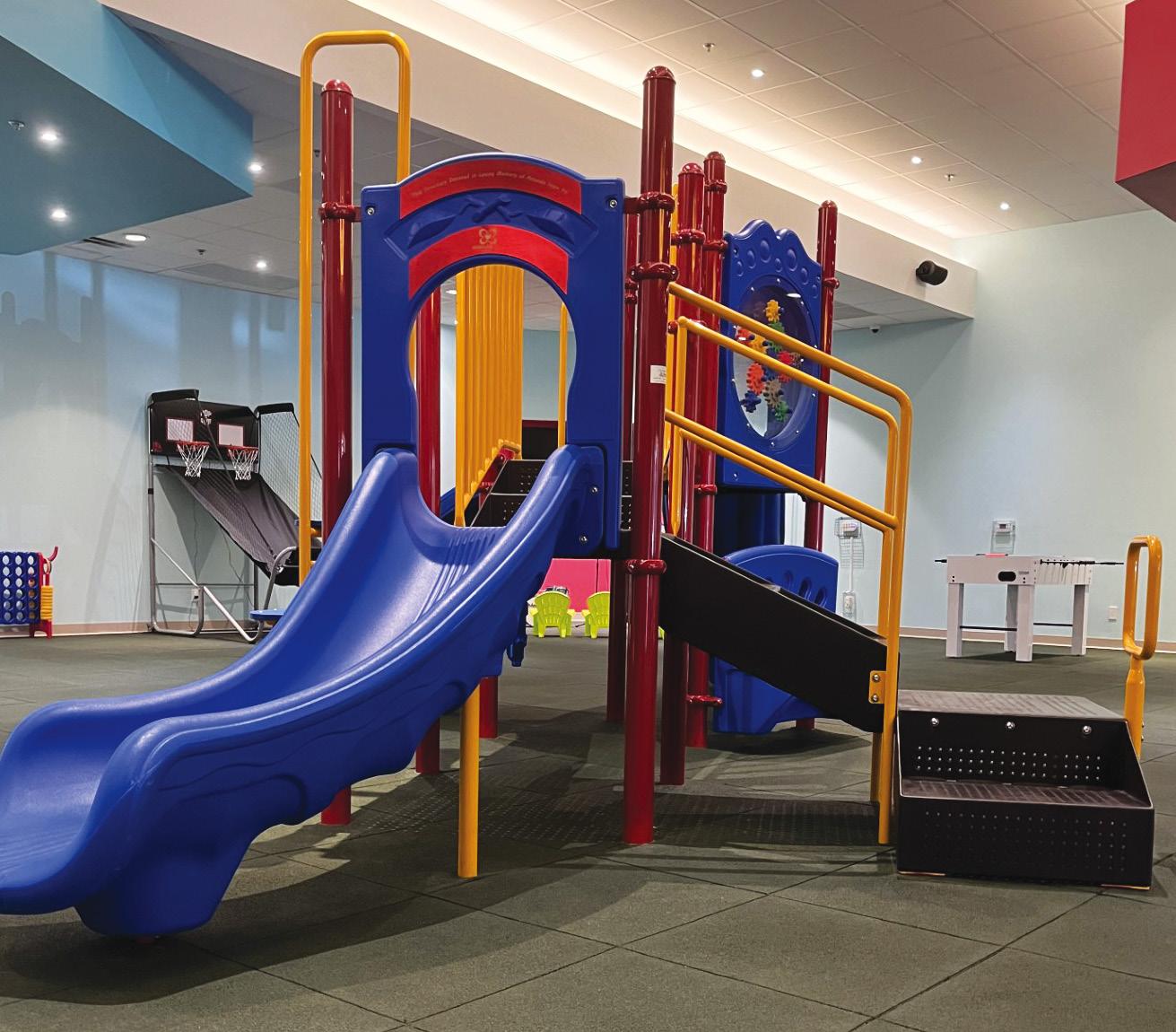 By Dawn Garza • Photo
Pad
By Dawn Garza • Photo
Pad
LILY’S PAD CAME to life in the mind of Brad Taylor, whose three-year-old daughter, Lily, was diagnosed with high-risk Acute Lymphoblastic Leukemia (ALL) in December of 2017. Lily spent just over a month living in Banner Children’s at Desert fighting to become stable enough to begin her outpatient treatment program.
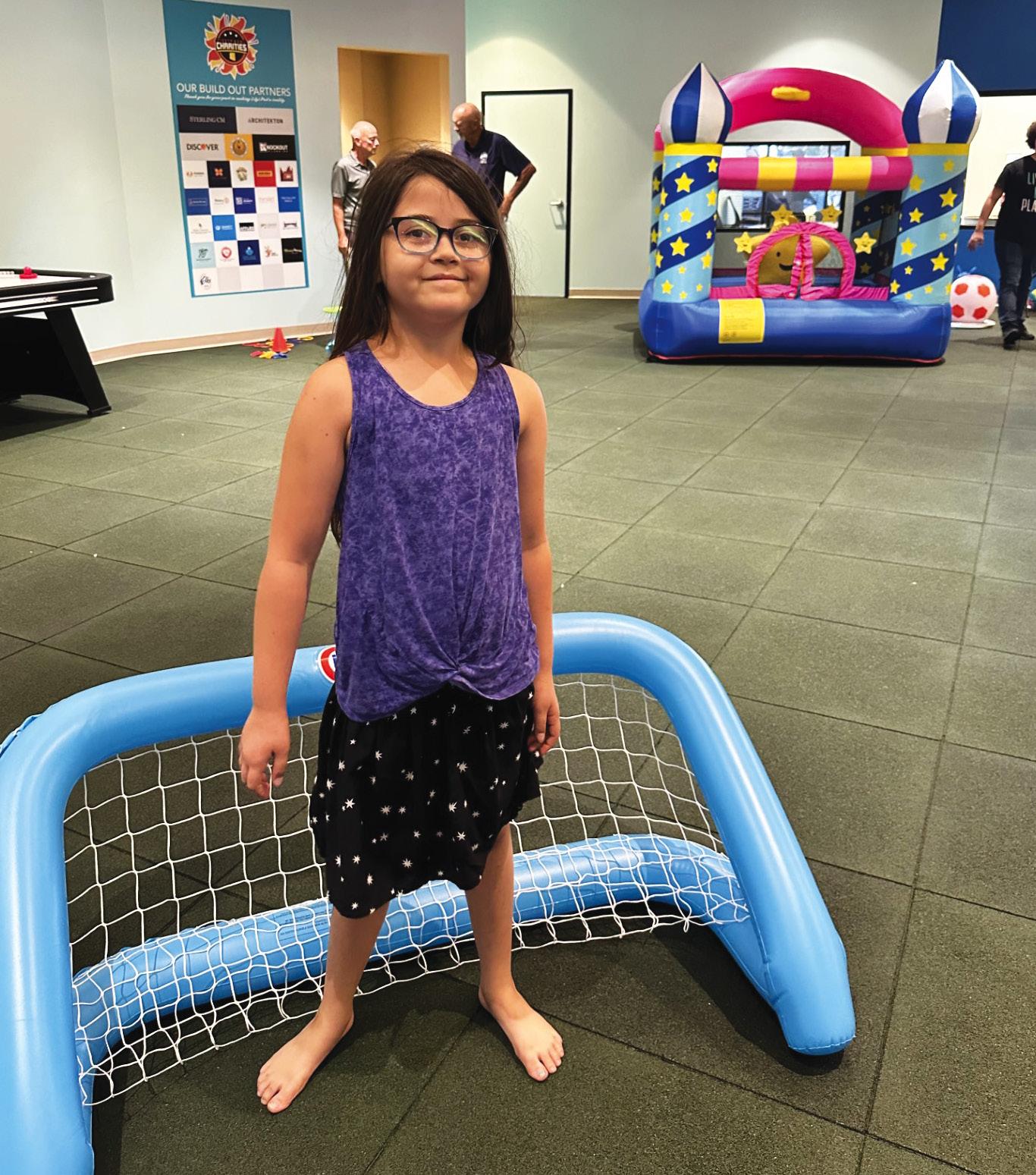
As Lily’s treatment progressed, the chemotherapy she received daily attacked not only the cancer she was fighting but also her immune system. This immunocompromised state forced Lily away from the activities and friends that she loved. It became obvious to Lily’s family that there was a missing piece in the treatment plan for these young patients battling an autoimmune state and with that as their driving force, the concept of Lily’s Pad was born.
At Lily’s Pad, kids are given a place to imagine and play, to form friendships
and to truly just get to be kids, all in an environment that keeps their fragile immune systems in mind. Special cleaning procedures for children who are immunocompromised:
• Monitored air quality system
• Play sessions limited to 12 kids
• Health screening for families when they arrive
• Shoes exchanged for safety socks
• Hand sanitizer stations throughout the facility
• High touch surfaces are disinfected, small toys are traded out with clean duplicates and any fabrics are laundered after each session
• Facility cleaning each night and a deep clean every week
Play structures/equipment
There is a structure with two slides and a
climbing wall, Pop-A-Shot basketball game, air hockey and foosball table. There are lots of balls, hula hoops, and scooters. There is a ride-around fire truck and police car that can be operated by the children or by remote control. One corner features a toddler area with books, building blocks and small toys. Another corner has a small bounce house and an arts and crafts area.
How to get your child qualified to play at Lily’s Pad
Parents must submit an interest form and have a medical professional give them a referral. Once the referral is received, families will receive access to the booking system. There is no cost – play is absolutely free thanks to the generosity of the community, grants and corporate sponsorships to operate the facility for the benefit of these children.
The future of Lily’s Pad
Lily’s Pad opened on August 1, 2023. As it continues, the number of play sessions offered each week will expand and there will be new fun experiences for the kids such as movie days or painting days. We plan to offer counseling such as Mom Mentoring or Sibling Support right in the facility. Currently, we have partnered with the Arizona College of Nursing who will be providing nursing students to oversee play sessions.
Lily’s Pad is located at 3320 S Priest Dr #4, Tempe, AZ 85282. For more information visit lilyspadaz.org
Special Needs: PLAY PLACES
Dawn Garza is the Executive Director of Lily’s Pad
62 FALL 2023 Sept • Oct • Nov RaisingARIZONAKids.com
courtesy of Lily’s
JORDAN’S CORNER Indoor Inclusive Play in Scottsdale
By Katie Lee, Marketing Partner for Jordan’s Corner
JORDAN’S CORNER is a premier indoor play place in North Scottsdale, designed to create a community where child-led play, inclusion, and fun are encouraged, and differences are respected.
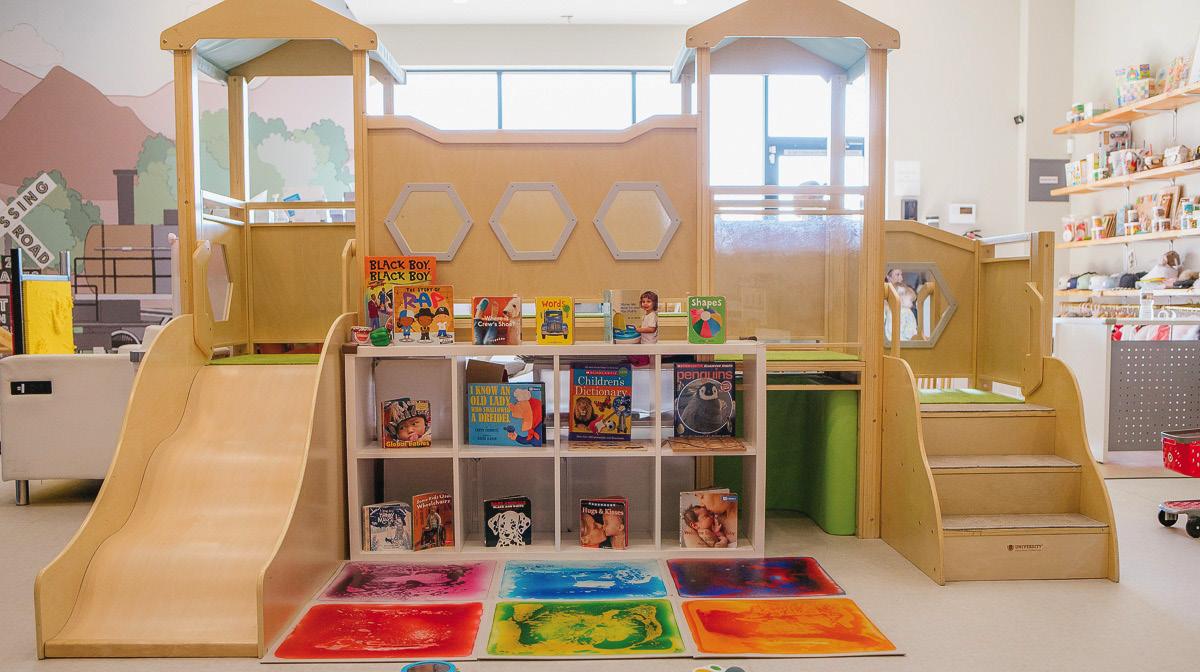
The indoor play space allows young children – from infancy to 6 years old – and their caregivers to engage in purposeful play where they can develop new skills, build relationships, and make meaningful memories.
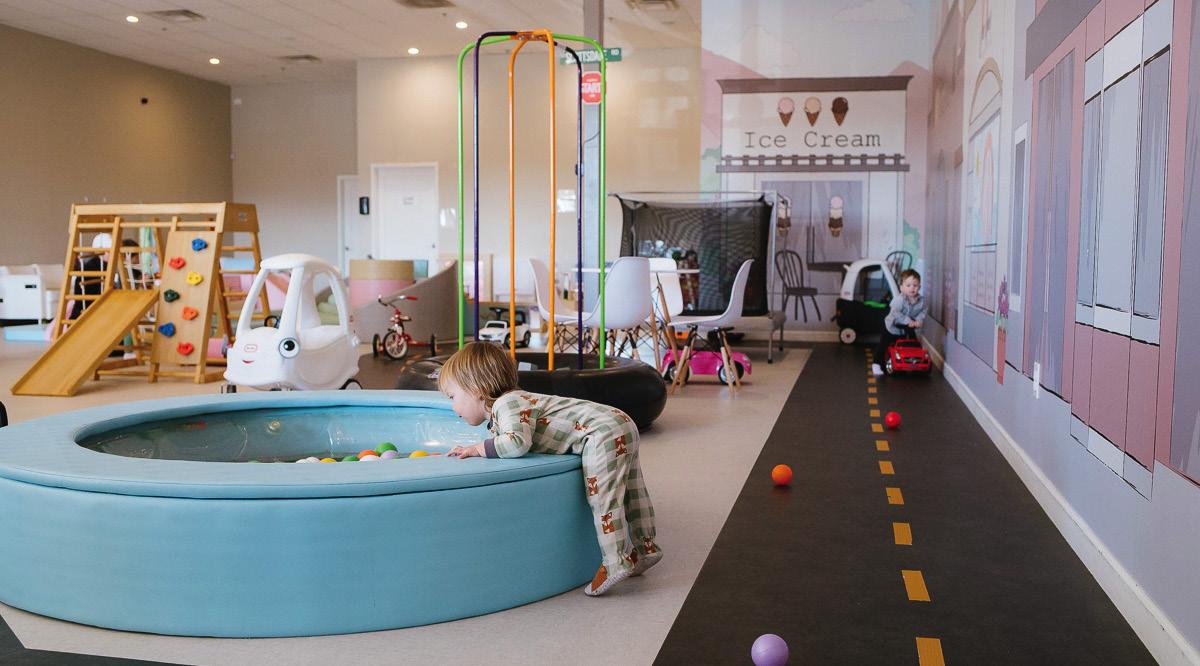
Their focus on inclusive play allows children with different needs and play styles, including those with cognitive and physical disabilities, the opportunity to play side-by-side in the same play space, with others.
Have kids with noise sensitivities? They have headphones. Is your child in wheels? Their play space is accessible and inclusive – each table is 23” in height to accommodate inclusive play. At the same time, it allows typical children to view the world through a different, more

diverse lens, developing awareness, respect, and understanding of people with all abilities.
Mrs. Sunshine is the Lead Educator at Jordan’s Corner, hosting “Music and Movement” on Mondays, a concert-style music experience on Wednesdays, and “Musical Storytime” on Fridays. Additionally, they regularly bring in various educators throughout the Valley including those from home school programs, therapy companies, as well as former educators.
Beyond the regular programming, Jordan’s Corner hosts many events including character meets, water days, dance parties, and more!
Join them on Halloween for Jordan’s Corner Spooktacular! Offering seven, one hour time slots all day from 9 a.m. – 5:30 p.m., kids can enjoy:
• Spooky Characters
• Photo backdrop with BOO marquee letters
• Trick or treat with neighbors
• Creepy creatures meet & greet (9 a.m. –12:30 p.m. slots)
• Spooky tunes with Sunshine (afternoon slots)
• Costume contest
• On site professional photos (additional cost)
• Photo booth
• Pumpkin patch
• Bounce house
• Spooky sensory play
• Ball pit with slides
• DIY take home slime craft (last two time slots)
Visit
Katie Lee is the Marketing Partner for Jordan’s Corner.
for
and
jordanscorneraz.com to sign up
their emails
to receive more information and be notified when tickets go on sale!
Sept• Oct • Nov FALL 2023 63 RaisingARIZONAKids.com
How to Throw a BIRTHDAY PARTY that Won’t BREAK the BANK
By Rachel Galvez
I REMEMBER THE DAYS when birthday parties consisted of colorful balloons, streamers, a simple cake, and the classics like musical chairs and tag with a few friends.
Times have changed and suddenly it feels necessary to have aesthetically pleasing décor with fancy balloon arrangements placed in front of gorgeous backdrops, impressive entertainment, and the unveiling of a cake worthy of Pinterest or Instagram feeds.
I experienced this pressure first-hand as we celebrated my youngest daughter’s birthday earlier this year. She’s now at the age where she notices the details, and I was tempted to splurge and make her birthday extra special.
It was a tough decision, but since our family is in the process of moving and we’ve been sticking to a tighter budget, my husband and I decided to host a simple, budget-friendly birthday party for her instead. Despite the decision to keep things simple, and to my mom guilt’s surprise, my daughter had the time of her life and said it was her favorite party yet!
Moral of the story, I’m here to remind you that not only is it possible to host an awesome celebration your kids will love, but it’s also possible not to break the bank.
Here are a few suggestions to consider:
Where to cut costs and save money
Pick the right venue: Consider having the party at your home or, if you don’t have an ideal space, at a loved one’s house. Hosting a party at your local park or neighborhood playground is another great free or budgetfriendly option to keep in mind.
Keep your guest list small: Consider limiting the guest list to no more than 10 by inviting your child’s closest friends and resisting the urge to invite their entire class. If you’re like me who has a big family, it’s okay not to invite every cousin, tía and tío.
Timing is key: Schedule the party between lunch and dinner where you can provide light snacks or finger foods and beverages instead of investing in a complete lunch or dinner for guests.
Other budget birthday 'hacks’
DIY invitations: Go the digital route by creating an electronic invite to text or email to guests or design your invitation online and print copies at home to hand deliver.
Inexpensive entertainment: Bring back classic games like musical chairs, pin the tail on the
donkey, or scavenger hunts!
Homemade desserts: Instead of ordering a pricey cake, consider baking and decorating your own cake, cupcakes, and other treats.
Effortless party favors: Have a craft station at your party, and let kids create their own artwork to take home with them, or set up a simple grab-and-go treat station with small paper bags, and allow guests to decorate them.

Keeping things simple will allow you to avoid unnecessary financial stress, have a more relaxed party-planning experience, and focus on being present and enjoying the celebration with your child and loved ones. And along the way, your child might just learn a valuable lesson that having fun doesn’t always mean spending money.
Rachel Galvez is the Marketing Partnerships Manager at Arizona Financial Credit Union. A wife and mom of two, Rachel is committed to empowering families with the information they need to make smart financial decisions now and set their children on the path to financial success in the future.
Birthday Parties: FINANCE
64 FALL 2023 Sept • Oct • Nov RaisingARIZONAKids.com
VICTORIA BEE


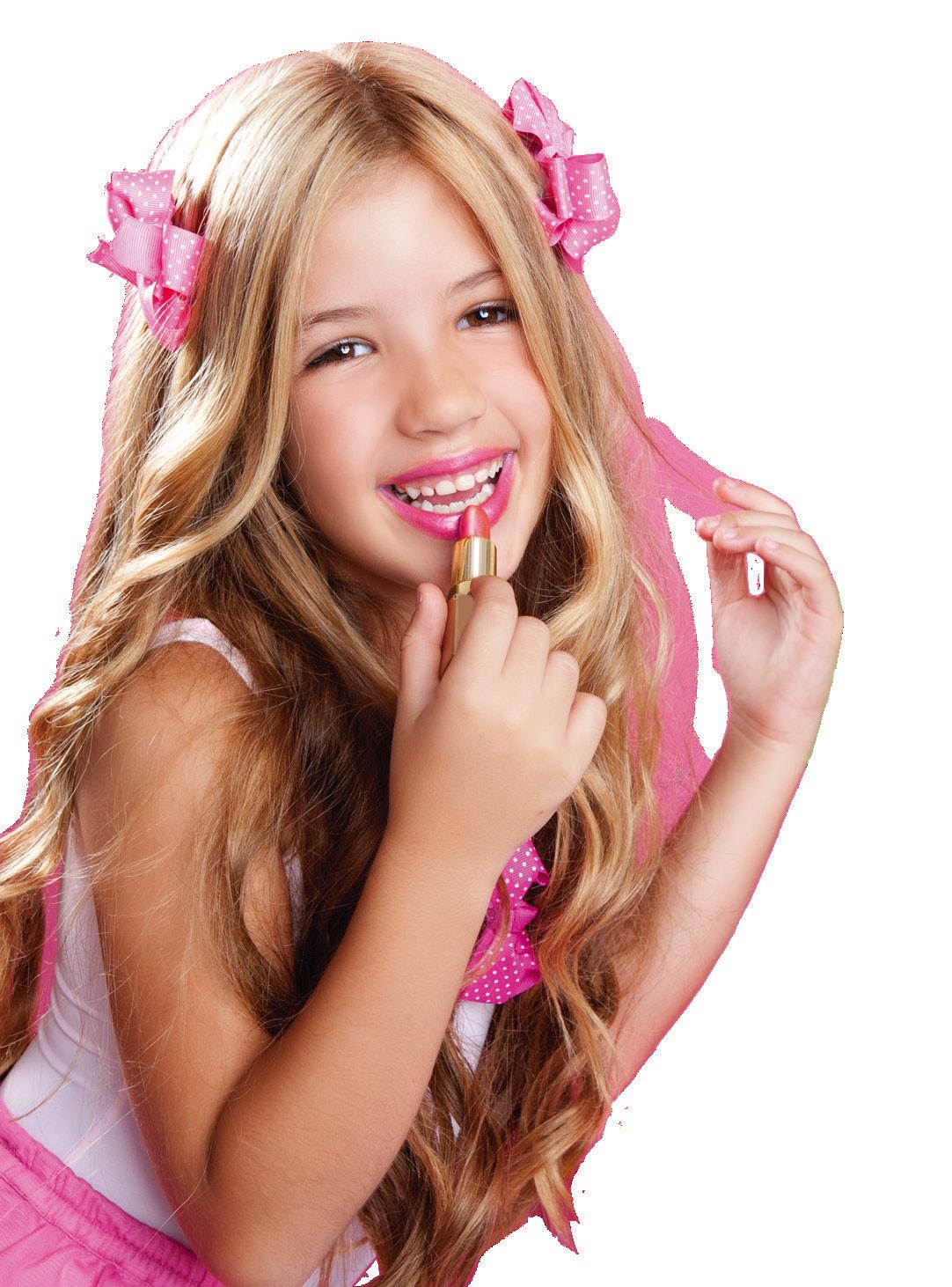



Spa Parties, Cheer/Sport Bonding Packages & Individual Pampering Experiences! Tucson’s only Spa-Themed Party Place, provides the ultimate pampering experience for kids ages 2-15 Various Themed Party Packages to choose from Plus, the SPARTY Extravaganza Mobile Spa Bus One of a kind “KIDS SPA” Pam’s Fizzy Factory Kids Spa 520.887.5430 ★ PamsFizzyFactory.com 4500 N Oracle Rd Suite 168, Tucson (Located in the Tucson Mall) with an animal-packed birthday party at the Arizona Humane Society, or ask how we can bring the party to you! Book today! azhumane.org/birthdayparties CALLING ALL PARTY ANIMALS Sept• Oct • Nov FALL 2023 65 RaisingARIZONAKids.com
Party Etiquette
By SueAnn Brown
WHETHER YOU’RE hosting a party or attending one, you may be wondering—do people really RSVP anymore? What about goodie bags, are those still a thing? Do I need to stay with my child at the party? Can I ask if siblings are invited?
We asked local Etiquette Expert, Sue Ann Brown, founder of “It’s All About Etiquette” and a consultant and leader in etiquette training services, some of these questions and more. Here’s everything you need to know about having good party manners in today’s day and age:
Should you RSVP? If you receive an invitation to a party, you should RSVP no later than three days from receiving the invite. This helps the host to plan for the party.
Should you provide a goody bag if you are hosting a party? The host is not expected to provide a favor, but giving out a goody bag is a nice gesture. It does not have to be expensive, and it’s a nice way to say to your guests, “Thank you for coming to my party.”
When should parents stay at the party and when should they leave? A parent should stay with their child if they are five and under as they may need more individual care and supervision. Also, they may experience separation anxiety. You can drop off your child if he/she is mature enough, trustworthy and socially comfortable around others. Do you know the host and some of the kids at the party? You may want to hang around at the party to make sure you both feel comfortable and then leave the party.
If someone asks for no gifts, should you still bring one?
If the invite says, “no gifts,” do not bring one, as it will make the other guests feel uncomfortable that they did not bring a gift.
What if you don’t want gifts but rather would like to ask for money instead? To ask your guests to give money depends on the occasion and how well you know the recipient. Giving money toward a charity, a wedding gift, or a graduation is acceptable.
Can you ask if a sibling can attend the birthday party? If your child’s name is not on the invitation, then I would assume they are not invited. It would depend on the location, the closeness of the family, and the activities taking place at the party.

Should thank you notes be sent or is a text or email acceptable? It depends on the get together. If this was a pizza party and was very casual with your friends, it is okay to text or email a thank you. If the party was more formal, a hand written note is necessary.
Other Tips and Advice.
• Be on time for the party, greet the host, and leave on time. Do not forget to thank the host and say good-bye.
• Once you RSVP you are committed to attend the party unless you have a family emergency or you are ill.
• Before the party, sit down with your child and tell him/her to be on their best behavior. No running in the house, no shoes on the furniture, don’t eat three pieces of cake, and use “please”, “thank you” and “you’re welcome”, and ask to help clean up.
SueAnn Brown is the founder of “It’s All About Etiquette” and a consultant and leader in etiquette training services nationally. As a certified Etiquette Instructor, she presents seminars to corporate executives, business organizations, private clubs, and individuals of all ages. Her goal is to enhance individuals, groups, and organizations by teaching proven continental and international etiquette training and techniques. For more information visit itsallaboutetiquette.com
Birthday Parties: ETIQUETTE
66 FALL 2023 Sept • Oct • Nov RaisingARIZONAKids.com
KATARZYNA BIALASIEWICZ
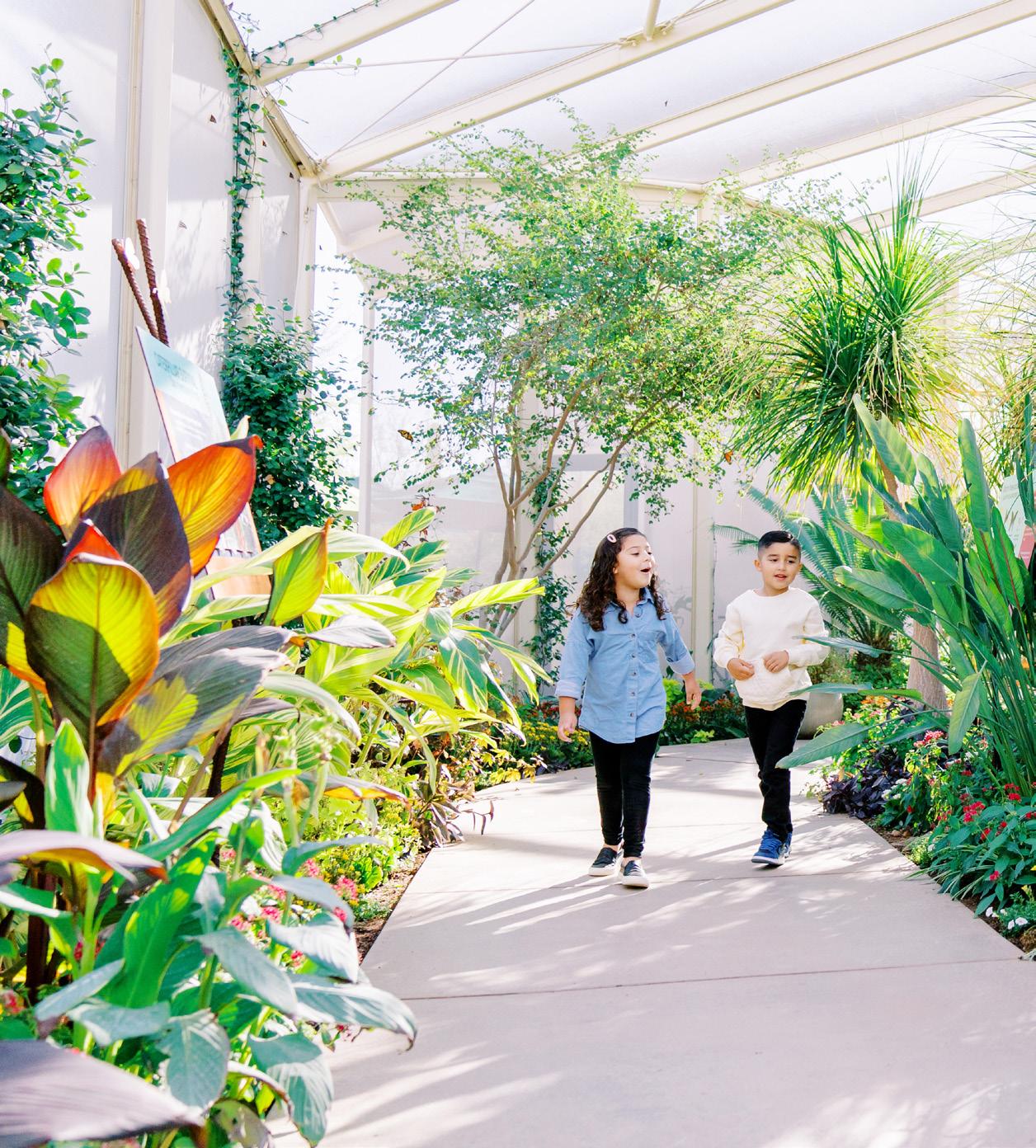




MAJESTIC MARIPOSAS Sept. 23 – Nov. 12 THERE’S MORE TO DESERT BOTANICAL GARDEN...discover Tickets at dbg.org DÍA DE MUERTOS Nov. 4–5
Out-of-the Box Birthday PARTY IDEAS
By Monique Seleen
WANTING TO DO something a little extra special for your child’s next birthday party? Maybe it’s a milestone birthday—like turning double digits or entering the teen years. Or perhaps your child has requested to do something unique that none of their friends have done before. Here are two locally-owned, familyrun businesses that are not only going to be Instagram-worthy, but will surely be a crowd pleaser too!


Birthday Parties: IDEAS
NATA ZHEKOVA 68 FALL 2023 Sept • Oct • Nov
AZ Sleepy Teepees
AZ Sleepy Teepees provides luxury glamping-style teepees to create the ultimate sleepover experience for both boys and girls.
Whether you’re planning a kids’ birthday party, a family movie night, princess tea party, or holiday celebration, there’s a sleepy teepee for just about any occasion!
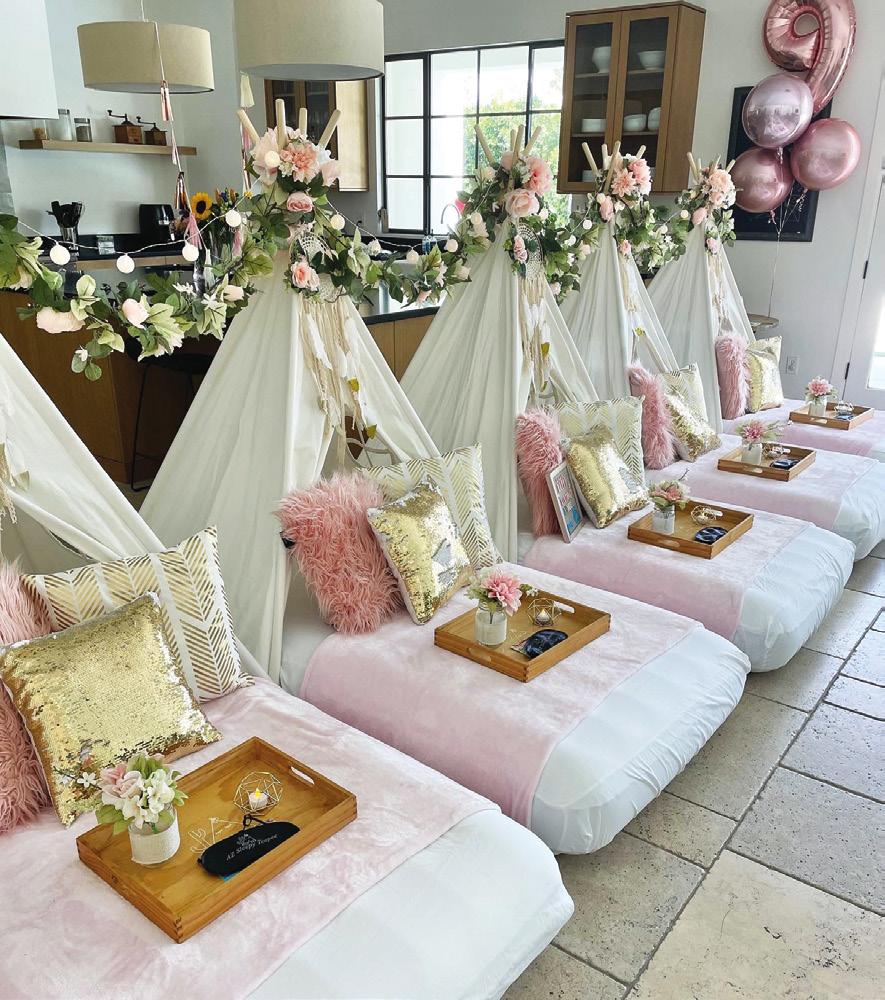
Choose from a variety of themes including unicorns, desert and cacti, boho, mermaids, wizards, safari jungle, Minecraft, Phoenix Suns, or even a holiday theme such as Hocus Pocus or Grinchmas.
The Maciag family from Scottsdale started the business in January 2018 when they were planning their daughter’s 10th birthday.
“We’ve grown like crazy ever since and because of our growth, we started coaching other sleepover businesses around the world from our Sleepy Teepee Academy,” said Dana Maciag, owner of Sleepy Teepees.
The AZ Sleepy Teepee team will deliver, set up, and come back the next day to take it all down—all you have to do is book it and they’ll take care of the rest.
It’s suggested to book at least a month in advance to ensure the theme you’d like is available and secure the date of your event.
AZ Sleepy Teepee also has a variety of add-ons to make your event extra special. Request balloon arches, table décor, and backdrops to add some pops of color and pizzazz to your party. Select the slumber spa add-on for a relaxing pampering experience. Or choose a DIY craft kit to be added on to your package and the kids will get to make their own pillowcase— with all supplies included.
A party of 4 teepees starts at $525. For more information or to book your event, visit azsleepyteepee.com
Rendezvous Gaming
Rendezvous Gaming is a high-tech video game truck that comes right to your driveway or event location!
With 7 gaming stations, up to 28 people can play at one time! The truck features the most popular new and classic video games, LED and neon lighting, great sound systems, and a full climate control setting.

No more crowded party places or transporting kids to a packed venue…you’ll have your own private party that comes right to you!
Emily Swank of Tempe started Rendezvous Gaming after looking for group video game activities that her kids could participate in.
“Two of my children are autistic and had no interest in playing sports or really any extracurricular activities,” said Swank. “We understood that not all kids enjoy sports but wanted them to still participate in some sort of activity where they could interact with other children and work on teamwork and social skills.”
Swank decided to take matters into her own hands and create a gaming league for autistic children. Since then, Rendezvous Gaming has grown into a booming business offering birthday parties and special events all over the Valley in addition to its gaming leagues.
“I had parents reaching out and asking if we could do birthday parties and other events,” said Emily. “That’s when we bought our own truck and dove into this business head first. It is honestly the most fun and rewarding business to be involved in.”
Rendezvous Gaming offers gaming coaches who work with the kids during the event so that parents can sit back and relax while someone else runs the show.
“We’ve had so many parents tell us it’s the easiest birthday party they’ve ever thrown because the kids stay on the truck and the parents can actually hang out and talk,” said Swank.

Gaming prices start at $275 with the option to add on different customizations such as goodie bags and a snack bar.
For more information or to book your event with Rendezvous Gaming, visit rendezvousgaming.com
Sept• Oct • Nov FALL 2023 69
FALL SOUPS
Recipes from Scarlett Bendixen
There’s nothing like a warm bowl of soup on a cool day. Welcome in the fall season with these classic soup recipes from Made It Ate It Loved It, and get ready for an easy, delicious dinner!
30 Minute Chicken Noodle Soup Recipe


Ingredients
• 3 Tablespoons olive oil
• 1 cup carrots, peeled and thinly slice (about 2 carrots)
• 1 cup celery, thinly sliced (about 2 stalks)
• 1 medium yellow onion, diced
• 2 Tablespoons minced garlic
• 64 ounces chicken broth
• 2 bay leaves
Instructions
• 1/2 teaspoon dried thyme
• 1/2 teaspoon dried oregano
• 1 teaspoon pepper
• 12 ounces wide egg noodles
• 2 cups shredded rotisserie chicken
• 2 Tablespoons fresh parsley finely chopped
• 2 Tablespoons lemon juice
• 2 teaspoons salt
1. In a large stock pot over medium heat, add the olive oil.
2. Add the carrots, celery, and onion. Cook for about 5 minutes until they start to soften.
3. Add the minced garlic and saute for a minute or two.
4. Add the chicken broth and bring to a boil.
5. Add the spices and boil for 5 minutes.
6. Then add the egg noodles, and boil for 10 minutes. If you like your soup to have more liquid, you can add some water.
7. Then add the chicken, parsley, lemon juice, and salt, and boil for 2 minutes.
8. Serve immediately with a buttery roll!
Chicken Enchilada Soup

Ingredients
• 2 chicken breasts
• 15 oz can black beans, drained
• 14.5 oz can Rotel
• 4 oz can jalapenos
• 16 oz package of frozen corn
• 2 medium onions, diced
• 1 bell pepper, de-seeded and diced
• 10 oz green enchilada sauce
• 3 T butter
• 3 T flour
• 1/2 cup chicken broth
• 1/2 cup milk
• 1 cup Monterrey jack cheese
Instructions
1. In a crockpot, add the chicken breasts, black beans, Rotel, jalapenos, frozen corn, diced onions, diced bell pepper.
2. In a saucepan, make a rue. You do this by adding the butter and then, while it is melting, whisk in the flour. Bring to a gentle boil. Then remove from heat.
3. Slowly mix in the chicken broth, and then the milk. While you are adding the liquid, whisk it so it is smooth. Then put the pan back on the stovetop, and heat until the mixture begins to thicken.
4. In a bowl, add the enchilada sauce. Then after the mixture thickens, slowly add it to the enchilada sauce while whisking.
5. Pour the mixture into the crockpot over all of the other ingredients.
6. Cook on low for 6-8 hours.
7. When you are about ready to eat, remove chicken breasts and shred. Return shredded chicken to the soup, and sprinkle with Monterrey cheese. Cover until the cheese melts, and serve!
Fall Fun: RECIPES
70 FALL 2023 Sept • Oct • Nov RaisingARIZONAKids.com
Thursday - Sunday
by
Crockpot Potato Soup Recipe

Ingredients
• 3 (14.5 oz) cans of chicken broth
• 1 (14.5 oz) can of cream of potato soup
• 1 medium onion, chopped
• 1/2 teaspoon pepper
Garnish
• bacon
• green onion, thinly sliced
Instructions
• 1 cup monterey jack cheese, shredded
• 1/2 teaspoon kosher salt
• 1 cup cheddar cheese, shredded
• 1 (8 oz) cream cheese
• cheese
• sour cream
1. Place everything (except cream cheese) in crockpot on low for 6 hours.
2. Grab the blender, and using a measuring cup fill the blender full of soup. Blend up until smooth.
3. Pour back into crockpot with remaining soup.
4. Mix well, and then add the cream cheese.
5. Let cook for another hour so the cream cheese can melt. Meanwhile, cook up some bacon, cut up some green onion, and shred some cheese.
6. Once the cream cheese is all melted, place in a bowl and garnish.
Scarlett Bendixen is a Gilbert mom of four and the food blogger and author behind the popular site, Made It Ate It Loved It. madeitateitlovedit.com

CARNIVAL RIDE WRISTBANDS: $17 IN ADVANCE, $20 ON-SITE
ENTERTAINMENT, ACTIVITIES & EXHIBITORS
FRIDAY, 6 - 10 PM
SATURDAY, 11 AM - 6 PM
LIBRARY GHOST TOUR
FRIDAY, 7 - 9 PM
(INSIDE SAM GARCIA LIBRARY)
PARADE
SATURDAY, 9 AM
TIME HONORED TRADITION ALONG CENTRAL AND WESTERN AVENUES
WILD WEST SHOWS & CONTESTS


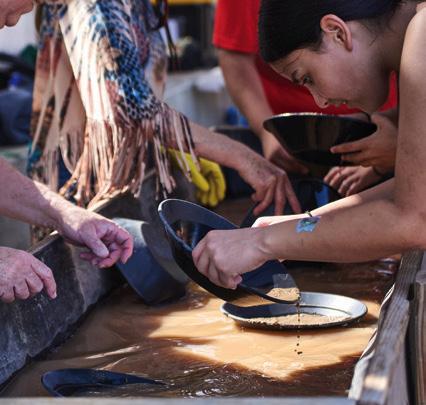

SATURDAY, 11 AM - 6 PM
FOOD & BEVERAGES
FRIDAY, 6 - 10 PM
SATURDAY, 9 AM - 6 PM
FOOD TRUCKS ON-SITE AND VISIT WESTERN AVE RESTAURANTS

DURING BUSINESS HOURS
All event information and carnival ticket sales at AvondaleAZ.gov/BillyMooreDays
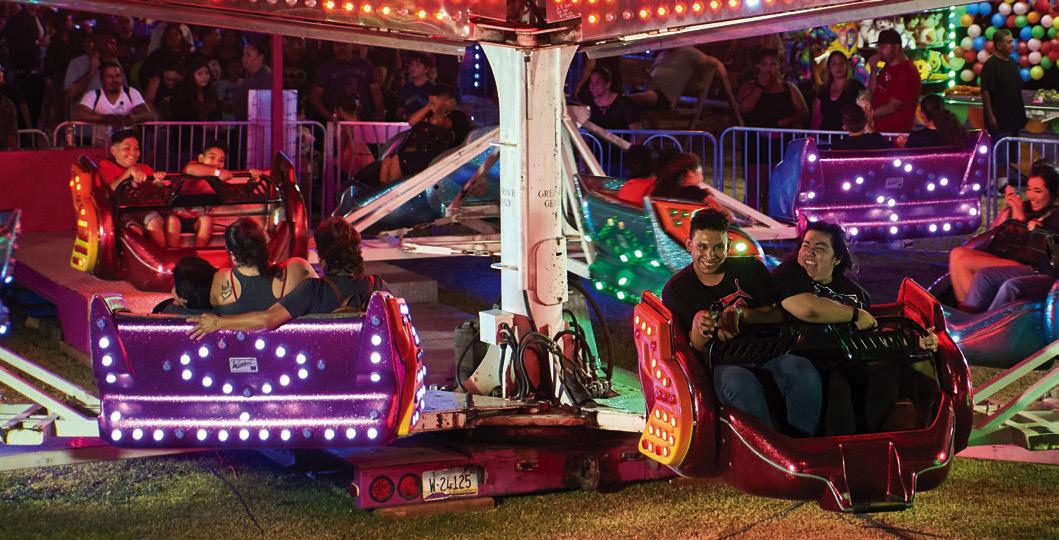
CARNIVAL
6 - 10 PM; FRI, 6 - 11 PM; SAT, 11 AM - 11 PM; SUN, 12 - 7 PM
THU,
22
OCTOBER 19-
Presented
BMD23_RAK_HalfVad.indd 1 8/2/23 2:22 PM Sept• Oct • Nov FALL 2023 71 RaisingARIZONAKids.com
&
Pumpkin Patches Fall Fun in Arizona
Make the most of the fall season and visit these pumpkin patches and fun fall and Halloween-themed events happening all across Arizona.
FLAGSTAFF
Viola’s Pumpkin Patch at Viola’s Flower Garden (Oct 1 - 31). has a little bit of everything! Bring the family to enjoy a straw-bale maze, pumpkin decorating, old fashioned games, and lots of photos ops! Open daily all October. $4 per person. Children 3 and younger are free. flagstaffpumpkinpatch.com
GILBERT
The Pumpkin Patch at Mother Nature’s Farm (Sept. 23 - Oct. 31). Includes a hayride, spider web crawl, feeding the farm animals and Alexander’s Adventure Maze. Bring a picnic lunch; there are picnic tables, grassy fields and big shade trees. mothernaturesfarm.com
GLENDALE
AVONDALE
Billy Moore Days (Oct. 19 - 22). Avondale celebrates its history and heritage during this multi-day festival that features favorite elements including the Billy Moore Days Carnival, Parade, Western Stunt Shows, Live Music, and hands on activities, crafts, face painters, and more! avondaleaz.gov

Creepin Candy Crawl (Oct. 31). Kick off your night of trick or treating as exhibitors and city departments line the park to pass out candy and goodies to all the kids. Family-friendly activities including crafts and entertainment. avondaleaz.gov
CHANDLER
Screamin’ Green Hauntoween
(Sept. 24 - Oct. 31). Get Ready for Spooky Family Fun! Screamin' Green Hauntoween is back and more colorful than ever! This event is chalk full of spooky happenings: a themed scavenger hunt, monster-ific crafts, slime classes, and more! Plus a trick-or-treating event in the attraction daily! All this colorful fun is in addition to the 18 hands-on attractions! There is so much to "BOO" you'll never want to leave! Kids are welcome to wear costumes. crayolaexperience.com
DEWEY
Mortimer Farms Pumpkin Fest & Corn Maze (Sept. 29 - Oct. 31). Something for everyone! Get lost in a giant corn maze, find the perfect pumpkin in the pumpkin patch, enjoy farm-inspired rides, games, activities, and farm-to-table food. Plus, each Friday, Saturday, Sunday, and Columbus Day, guests will enjoy an extensive list of shows, entertainment, Grain Train rides, Barrel Train rides, hayrides, and vendors. And when the sun sets, enjoy all the activities at the farm plus fire dancers, karaoke, barn dances, and navigating through the corn maze in the dark, and entertainment! mortimerfarmsaz.com
Ghosts and Goodies (Oct. TBA). Get ready ghouls and girls for a chilling day of spooky activities! Well-dressed pirates and pixies, wizards and warlocks of all kinds can indulge in costume contests, fill up treat bags with candy and goodies from participating Westgate restaurants and retailers and enjoy games, prizes & entertainment. The little goblins won’t be the only ones going home with bags full of delicious treats, adult trick-or-treaters will be gifted several discount cards from participating Westgate businesses! This event is free to attend with convenient parking. Plus, attendees will receive free treat bags for the ultimate candy crawl around the district. visitglendale.com
PHOENIX
Dia de los Muertos Festival (Oct 29). The Dia de Los Muertos Phx Festival will take place starting at 2 p.m. at the Steele Indian School Park (on 3rd Street and Indian School Rd) in Phoenix, AZ. The Artists Mercado features some of Arizona's best local artists. There will also be food booths, kids arts activities and of course, and the traditional Candlelight Procesión. Bring a picture (no originals) or memento to place on the Community Altar. diadelosmuertosphx.com
PRESCOTT
Boo at the Zoo (Oct. 31). Boo at the Zoo is a fun family event held every October 31st. This year, gates will open for Boo at 5:00 pm for families with children 6 and under and at 6 p.m. for all ages. Last admission will be at 8:30 p.m. Come in costume and trick-or-treat at different stations around the Sanctuary with your favorite animals. Bring a flashlight and see all the nocturnal residents and don't forget to visit the new Boo Zone! heritageparkzoo.org
Fall Fun: THINGS to DO
72 FALL 2023 Sept • Oct • Nov RaisingARIZONAKids.com
Billy Moore Days in Avondale.

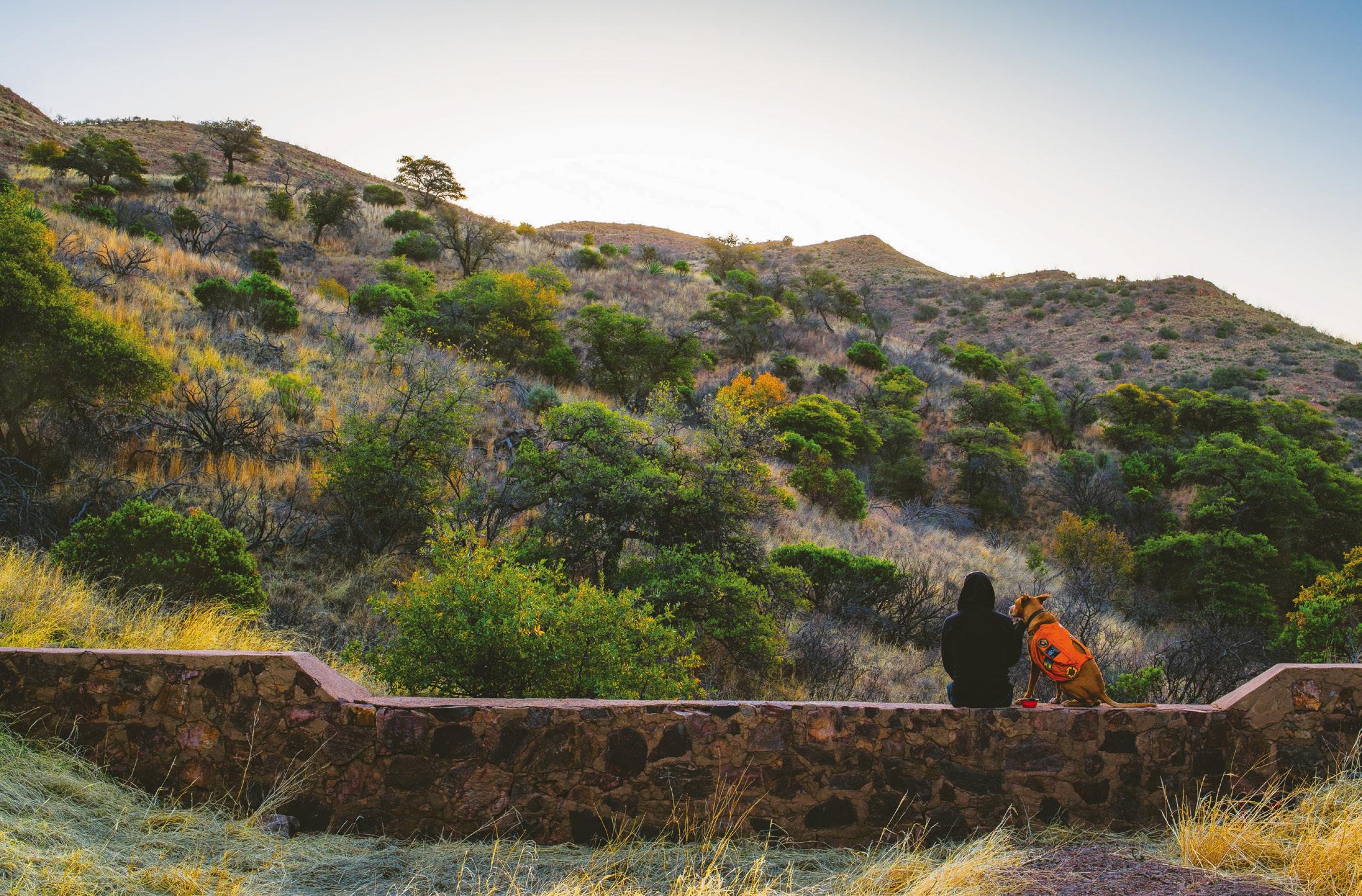
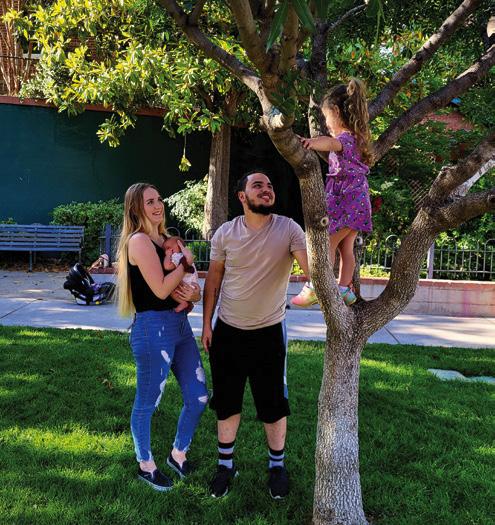


• Mine Tours/City Tours • Jeep & Golf Cart Tours • Ghost Walks/Haunted Tours • Biking/Hiking/Camping • Shopping • Hotels & Lodging • Big Selection of Dining Experiences • Museums & Galleries • Unique Historic Attractions • Events Every Month! Fun for the WHOLE Family! Photos of Bisbee are courtesy of JPop Photon Photography, Chuck Feil and David Day. www.discoverbisbee.com City of Bisbee Visitor Center 478 N. Dart Road, Bisbee, AZ 85603 DISCOVER BISBEE CREATIVITY | FRIENDLINESS | STYLE Sept• Oct • Nov FALL 2023 73 RaisingARIZONAKids.com
MESA
Día de los Muertos Festival (Oct. 21-22).
Mesa Arts Center is pleased to celebrate Día de los Muertos with an annual event created in collaboration with the community. Día de los Muertos is a celebration of Latin American art and culture related to the Mexican holiday, Day of the Dead. The annual free event offers a variety of features, performances and more in celebration of the memories of the deceased. mesaartscenter.com
Vertuccio Farms Corn Maze & Fall Festival (Sept. 29-Oct. 29). This features a five-acre corn maze, mini golf, pumpkin patch, inflatables, petting zoo, mini zip line, barrel train ride, giant jump pad (requires socks), giant tube roll, mini hay maze, spiderweb climb, duck races, train ride, animal area, pumpkin bowling and more. vertucciofarms.com
QUEEN CREEK
Pumpkin and Chili Party at Schnepf Farms (Oct. 5-Oct.29). Pick out the perfect pumpkin and enjoy a chili dinner, rides, corn maze, mini golf, petting zoo, tractor play yard, deer feeding, Carousel Museum, giant yard games, corn hole games line dancing, face painting and more. pumpkinandchiliparty.com
Trunk or Treat (Oct 21). Join in the fun at the Town Center to celebrate Halloween in a festival atmosphere! The whole family can enjoy carnival games, escape rooms, haunted houses, and more while children trick-or-treat by going trunk to trunk on "Trunk or Treat Street" collecting their Halloween goodies! queencreekaz.gov
SCOTTSDALE
Glass Pumpkin Patch (Oct. 20 - 22). This festive event will showcase over 1,000 whimsical, vibrantly colored glass pumpkins handmade by Gregory Tomb, an acclaimed local glass artist known for his unique, intricate designs. These one-of-a-kind works of art will be available for purchase, with proceeds benefiting the Holland Center, a 501(c)(3) nonprofit organization committed to enhancing arts, education and community in the Desert Foothills region. Free to attend. 10 a.m. to 5 p.m. glasspumpkinpatchfundraiser.com
Halloween Spook-Track-ula (Oct. 6 - 31). This family-friendly event is perfect for kids of all ages. We’ll creep it real with the event’s feature, a spooky train ride created with younger children in mind… a bit spooky, but not too frightening. The event will feature limited capacity of 750 people per one and a half hour time blocks at 6 p.m. and 8 p.m. nightly. The park will only be accessible to those who have purchased tickets during a specific time block. Visitors will have an opportunity to ride the train and carousel as many times as they’d like during their time block. 6 to 9:30 p.m. $15, Free ages 2 and younger. Tickets must be purchased online. therailroadpark.com
Spooktacular Hot Air Balloon Festival (Oct. 27 - 29). Over 20 Hot Air Balloons on display and passing out over 4,000 pounds of candy to Trick-or-Treaters, live music, food and beverage, a FREE Kids Zone with over 30 inflatable slides and attractions, costume contest, vendor market, tethered balloon rides, fireworks, and much more. Please note that balloons will begin coming down before the event time is over. There will be no refunds issued if you arrive after balloons are deflated. Arrive early to ensure maximum happiness! 5-9:30 p.m. azspooktacular.com
SHOW LOW & SURROUNDING AREAS
The Willis Farm (Sept 23-Oct 31). Come pick your own pumpkin at this 4th generation local farm! Families can also partake in movie nights, family dances, hayrides, corn mazes, kid zones, train tickets, games, and laser tag. Please check the weather before arriving. thewillisfarm-ranch.com
TEMPE
Halloween Stroll Downtown Tempe (Oct. 29). Ghosts, goblins, and princesses of all ages come to 6th Street Park in Downtown Tempe for some not-so-spooky Halloween fun! Play Halloween-themed games including, make spooky crafts, or enter our Kids-Only Costume Contest! Did we also mention that there is trickor-treating with over 25 downtown merchants?! See you at the Downtown Tempe Halloween Stroll in October 2023. downtowntempe.com
TUCSON & SURROUNDING AREAS
Marana Fall Festival (Oct. 23). Join your friends and neighbors as the community celebrates its agrarian roots at the Marana Heritage River Park. This event promises a good time down on the farm with music, animals, farmer's market, live music, rock climbing, Halloween costume contest, hay rides, barn dance, food trucks, rodeo demonstrations and more. There is a steak cookout for a fee. maranaaz.gov
Tucson Fall Festival (Nov. 1 - 5). Enjoy delicious food, exhilarating rides, daily concerts and plenty of entertainment for the whole family. More details to come. pimacountyfair.com

WILLCOX
Fall Pumpkin Celebration at Apple
Annie’s Orchard (weekends Sept. 23Oct. 29). Fall time at the farm means pumpkins, hayrides, corn maze, sunflowers and fall weather! Bring the whole family for a fun-filled day in the country. Our 12.5-acre, 600,000-stalk corn maze opens every day with three levels of difficulty. The hayride will take you on a ride through the farm to the pumpkin patch where you will find the biggest selection of pumpkins growing on the vine in Arizona! Visit the sunflower field with flowers taller than you, and check out the variety of vegetables to be picked in the fields including fall favorites like broccoli and winter squash. appleannies.com
Fall Fun: THINGS to DO
Spooktacular Hot Air Balloon Festival in Scottsdale.
74 FALL 2023 Sept • Oct • Nov RaisingARIZONAKids.com



Sept• Oct • Nov FALL 2023 75 RaisingARIZONAKids.com
Fall Traditions to Start with Your Family
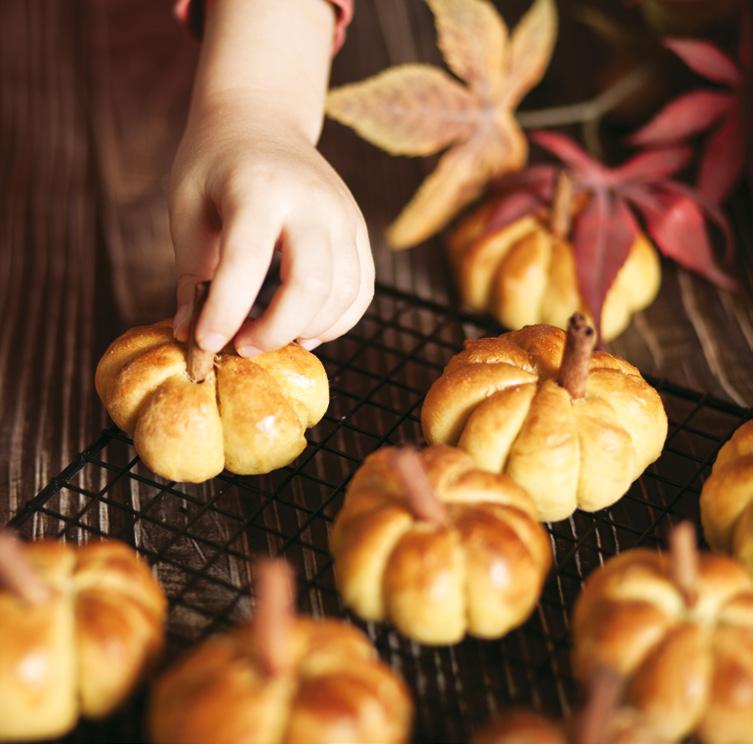

 By Monique Seleen
By Monique Seleen
AROUND THE END of September, I can feel a change in the air. The mornings and evenings start getting a little cooler, and my excitement for all the holiday fun starts to kick in. Now that my son is getting to the age where he can start to participate in more activities with us, I want to start creating memorable traditions that we can look forward to doing together every year. Here are some fun fall traditions that I have done in the past and a few new ones I hope to add to the mix this year:
1. Paint pumpkins. Last year my husband and I did this as a little at-home date night activity and it was so much fun! We got some inspiration from Pinterest and created our own little masterpieces (I made Sully from Monster’s Inc. and my husband did a Harry Potter pumpkin!). This year I think we’ll try letting our son get messy and in on the action with us!
2. Make a fall treat. There are so many great pumpkin recipes out there; I haven’t settled on just one. But I definitely want to make something with all the yummy pumpkin spice flavors.
3. Volunteer. Fall always feels like the perfect time to give back to your community. Growing up, my parents used to take my brothers and me to soup kitchens, homeless shelters, and assisted living homes to volunteer, and while I didn’t always understand it at the time, volunteering your time (especially as a family) can be so rewarding.
4. Have a pumpkin-themed meal. I started this tradition last year as soon as Trader Joes rolled out all their pumpkin foods. We made a whole day out of it—starting with pumpkin cinnamon rolls for breakfast, then pumpkin soup and salad (with pumpkin seeds) for lunch, followed by pumpkin raviolis for dinner. Home make some of it with your kids, or have fun browsing the aisles at the grocery store picking out your feast!
5. Watch a Halloween movie. Who doesn’t love a good movie night? Our neighborhood will often host a movie in the park in the fall, and it’s one of our favorite traditions. Whether you make it a backyard movie or a cozy night in, choose from some classic family-friendly films such as Hocus Pocus, It’s the Great Pumpkin, Charlie Brown, or Halloweentown!
6. Make a fall craft. While I haven’t done this yet, I can’t wait to start thinking of fun fallthemed crafts to do with my son. Check out Pinterest for ideas for all different ages.
7. Go to a pumpkin patch. This one is like a right-of-passage to fall. Pick out your pumpkins, enjoy fall-themed festivities, and take all the Instagram-worthy photos. Check out our listing for Pumpkin Patches throughout the state.

8. See the leaves change. If you don’t live up north, put it on your list to plan a day trip, or stay overnight to go see the leaves change! Flagstaff is known for its beautiful fall foliage from September through October.

9. Boo a neighbor. This is a great activity to get the whole family involved. Head to the Dollar Store or Target’s dollar section for some budget-friendly items to make your boo basket, and have fun surprising one of your neighbors!
10. Have a bonfire and make s’mores. Let the kids stay up past bedtime one night and enjoy a backyard bonfire, roasting marshmallows and making s'mores together. It’ll surely be a memory you won’t forget!

Fall Fun: THINGS -TO-DO
10
76 FALL 2023 Sept • Oct • Nov RaisingARIZONAKids.com
PHOTOS FROM ISTOCK


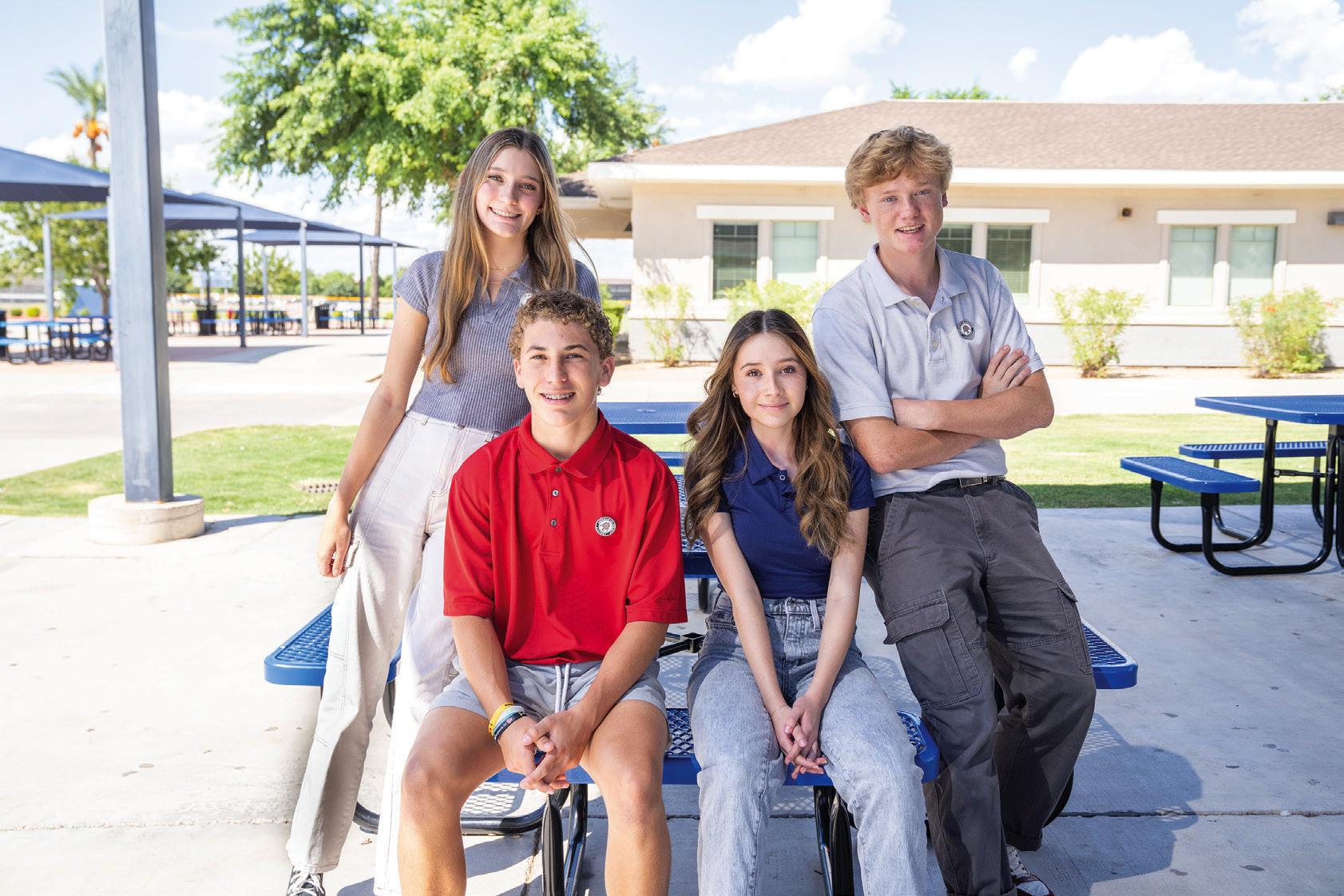
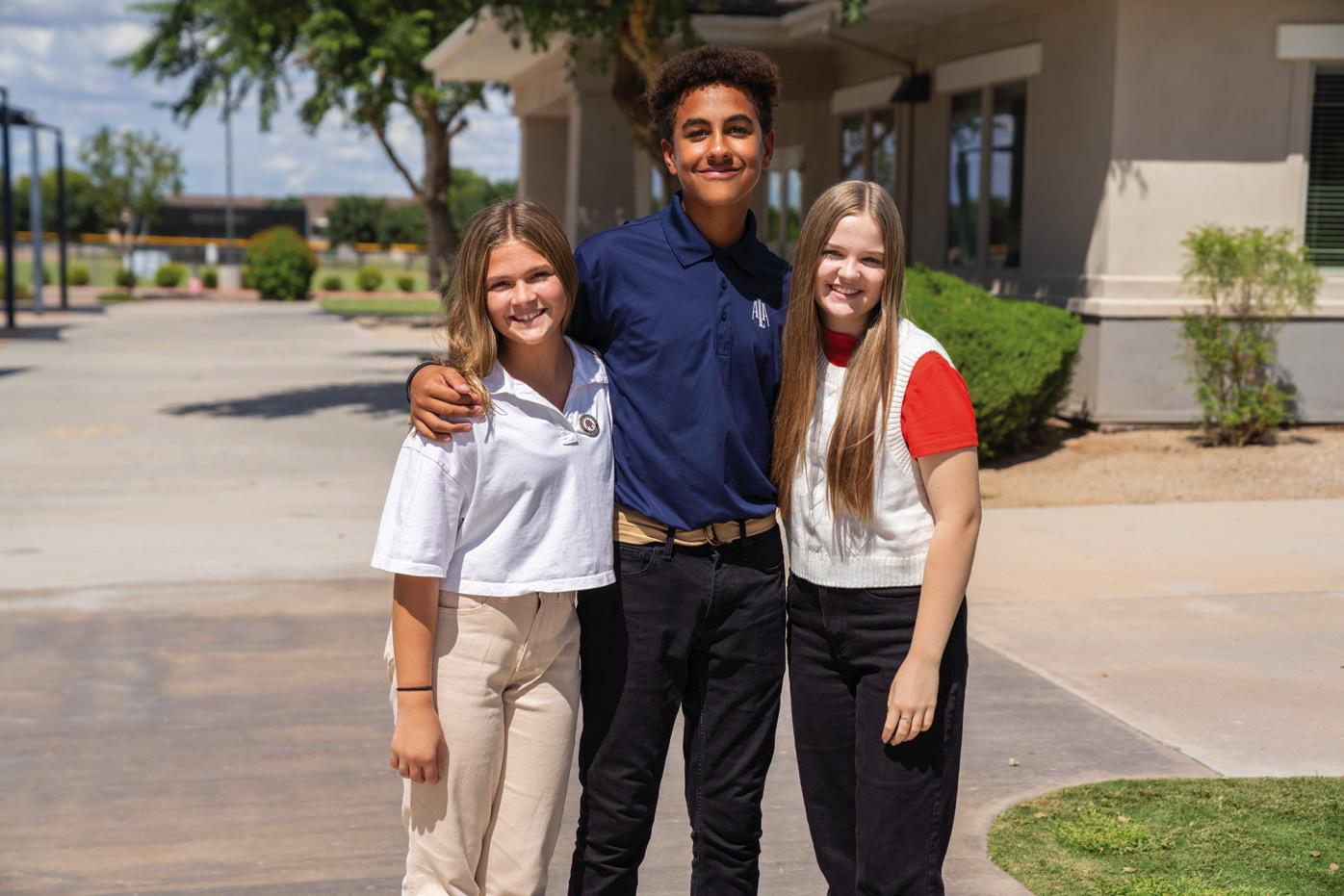
EXPERIENCE THE ALA DIFFERENCE. SPACE IS LIMITED. SECURE YOUR SPOT TODAY! Anthem South Pre-K-12 Gilbert K-6 Gilbert North K-12 Gilbert South Pre-K-6 Ironwood K-12 Mesa Pre-K-6 Queen Creek K-12 San Tan Valley K-6 Signal Butte Pre-K-6 Virtual K-12 Applied Tech. Pre-K & 7-12 West Foothills Pre-K-12

























 By Rosalind Prather
By Rosalind Prather

















 Trent Reed of Show Low with his youngest son, Hawkins days after his birth in February 2023.
Photo by Katelyn McKenzie Photography.
Trent Reed of Show Low with his youngest son, Hawkins days after his birth in February 2023.
Photo by Katelyn McKenzie Photography.













 By Michael Aurit, JD, MDR
By Michael Aurit, JD, MDR











 By Monique Seleen
By Monique Seleen

















 By Dr. Darcey Winterland
By Dr. Darcey Winterland

































 By Monique Seleen
By Monique Seleen





















 By Monique Seleen
By Monique Seleen























































 By Melanie Isaacs
By Melanie Isaacs








 By Dr. Heather Schneider
By Dr. Heather Schneider



















 By Dawn Garza • Photo
Pad
By Dawn Garza • Photo
Pad













































 By Monique Seleen
By Monique Seleen






